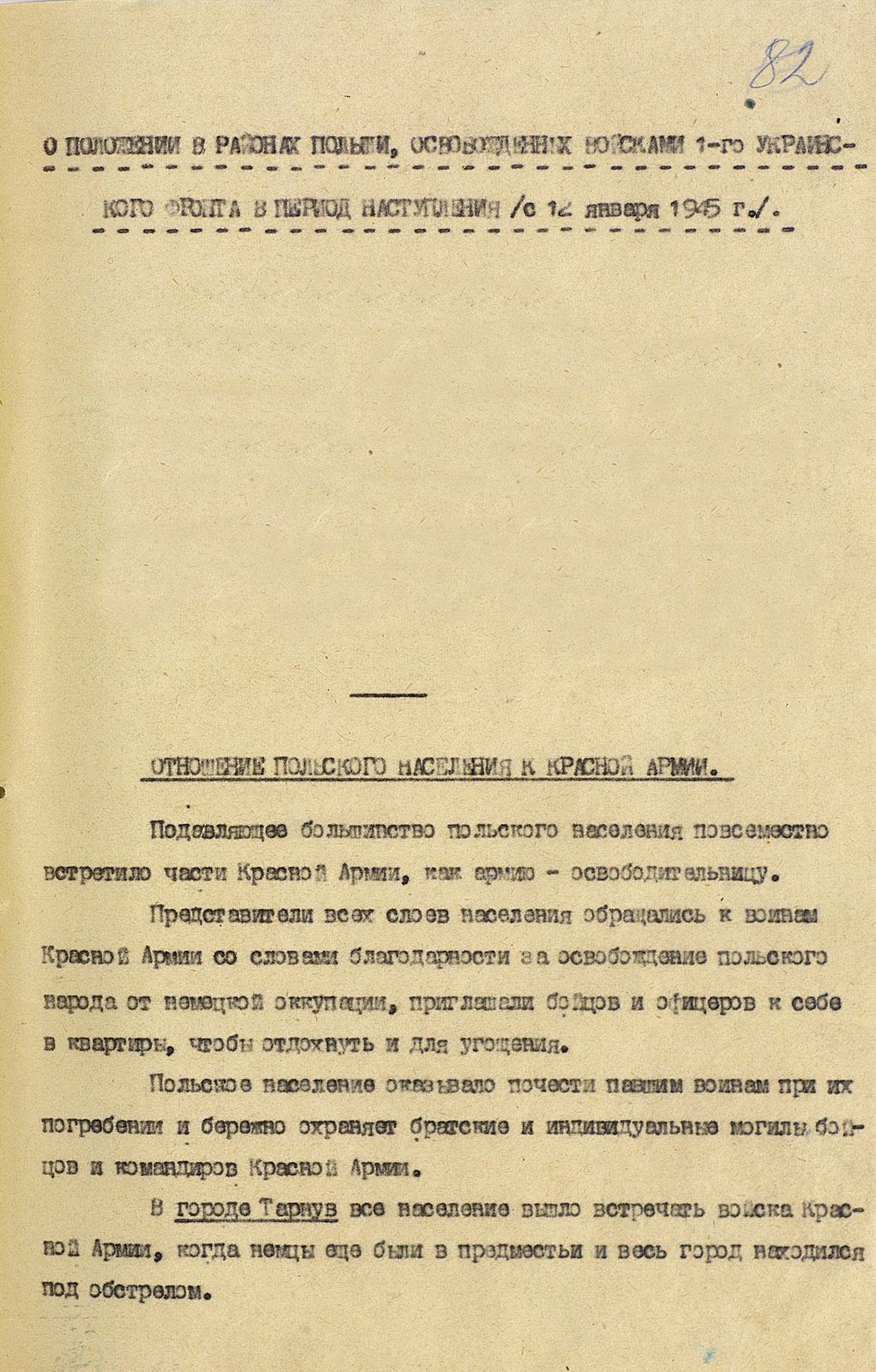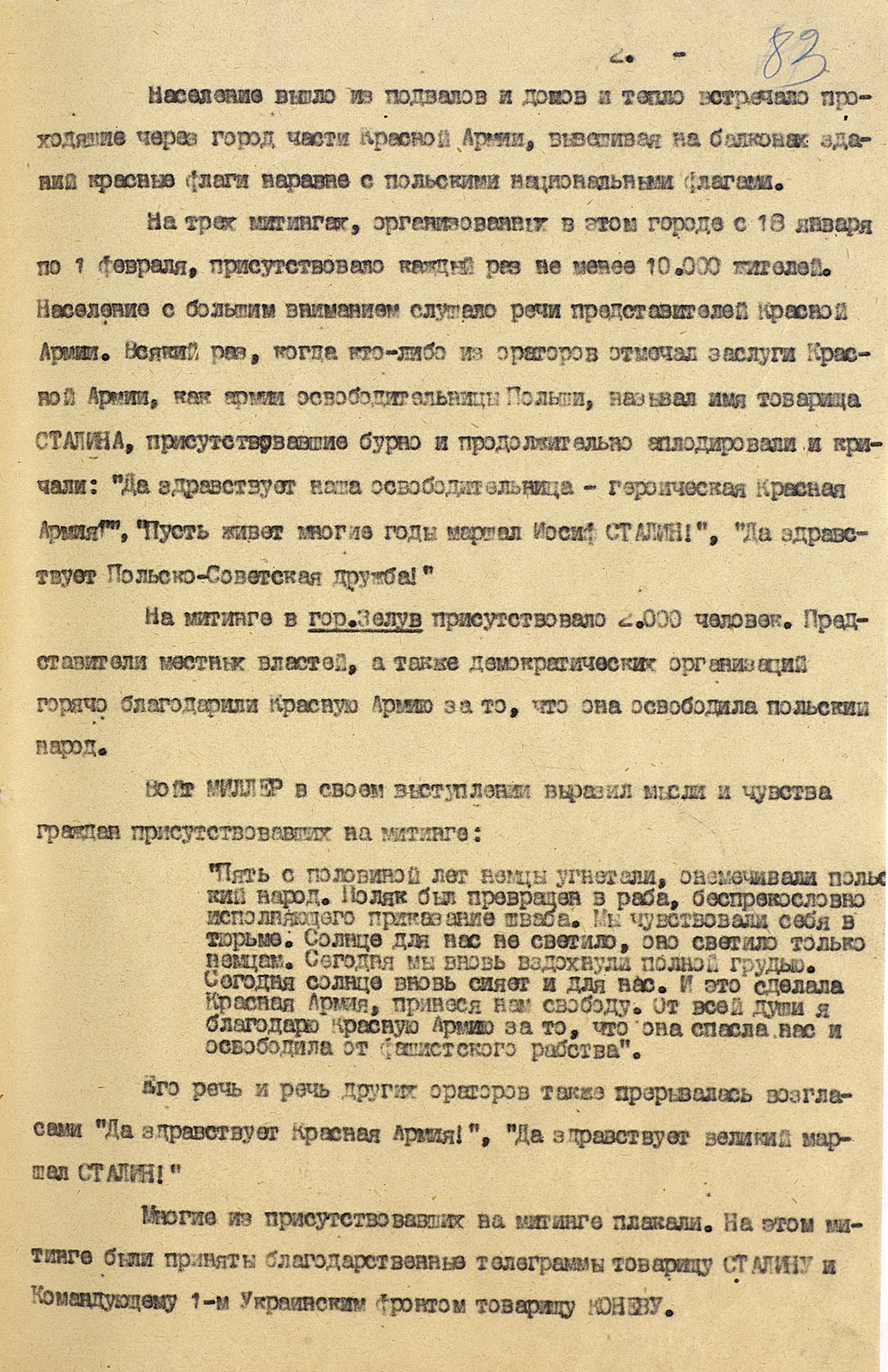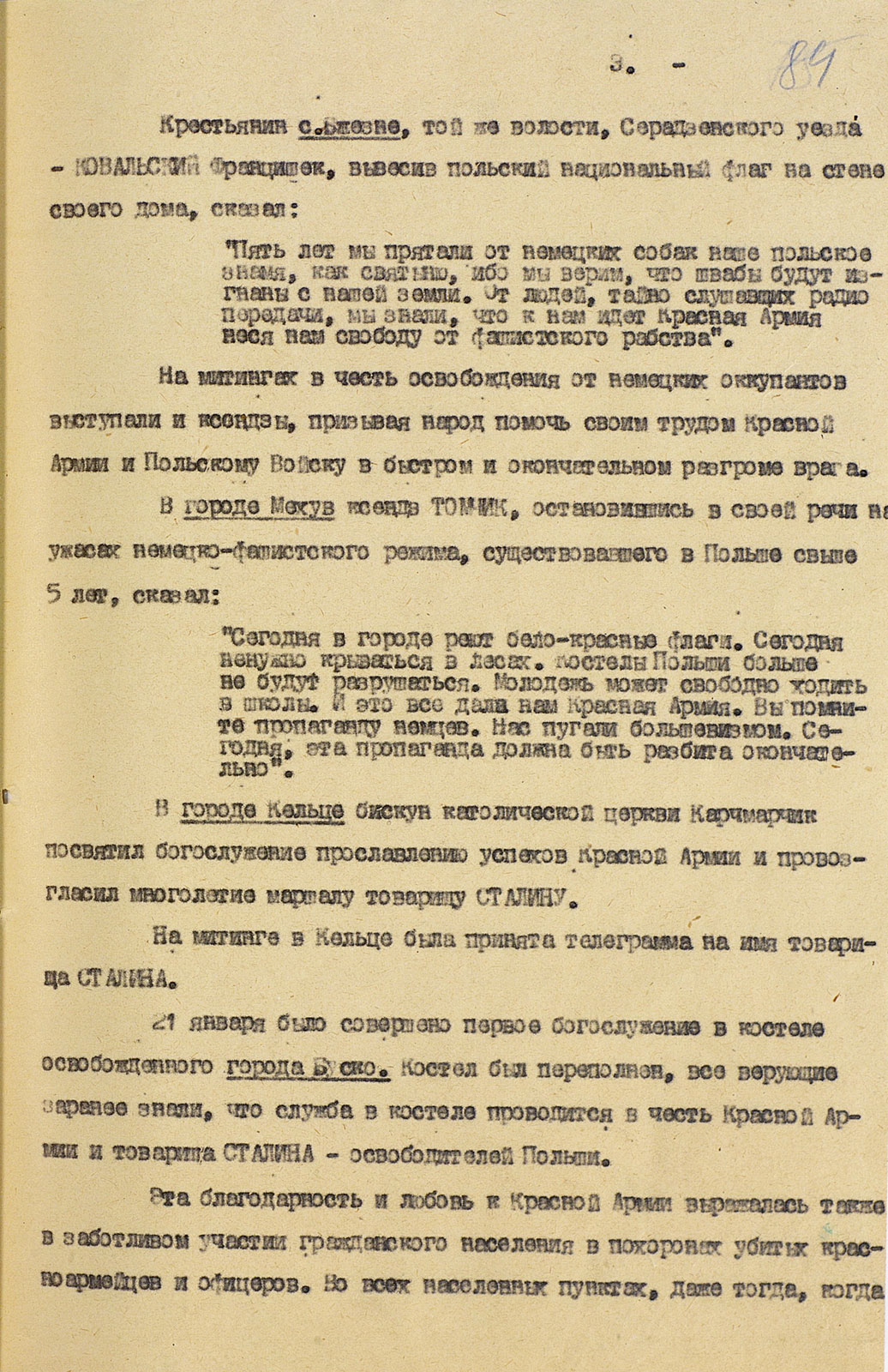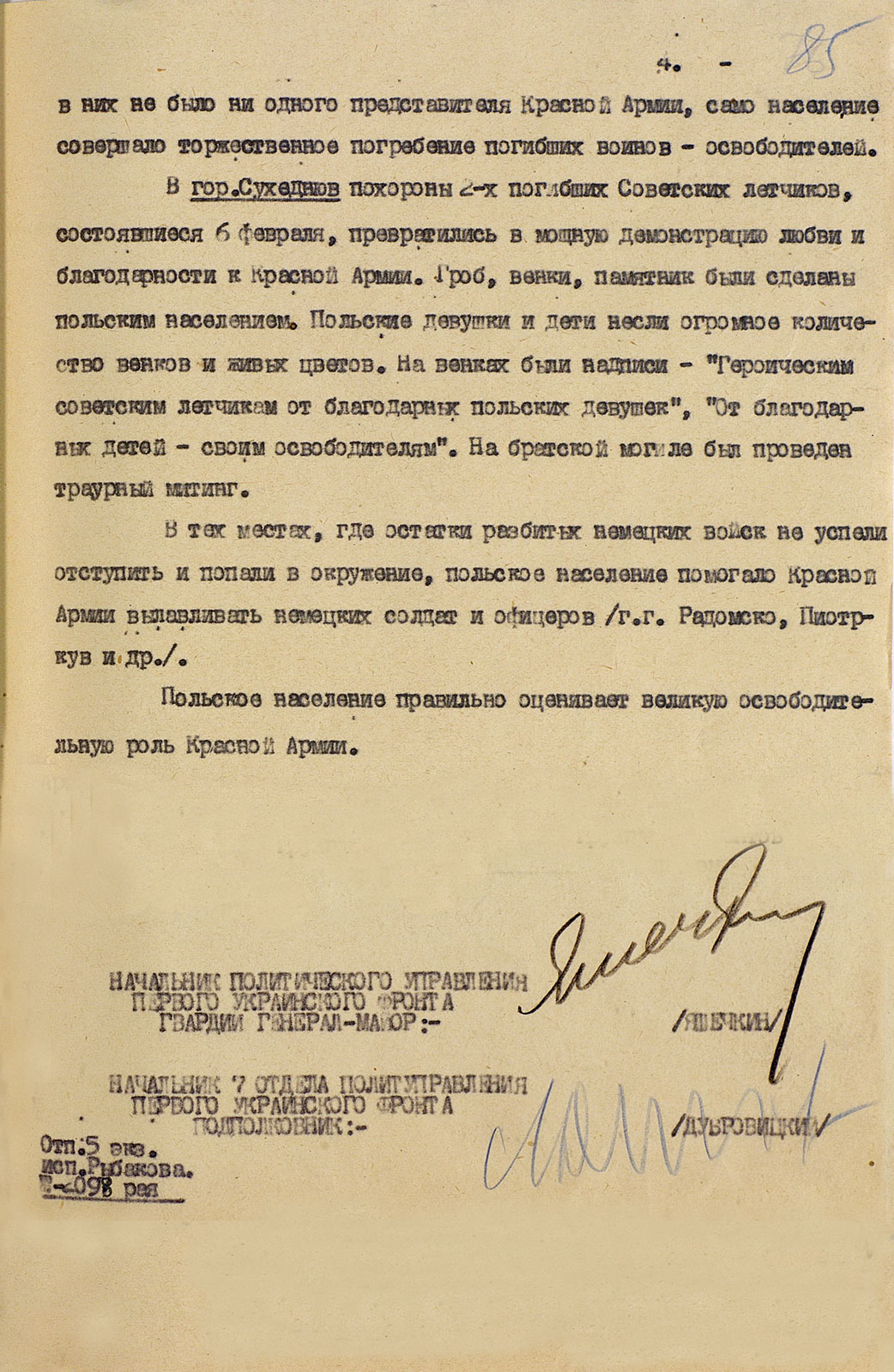The Liberation of Poland. The price of victory
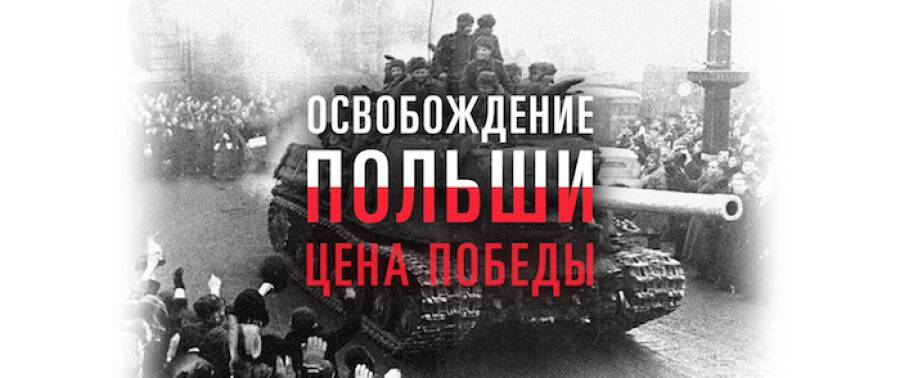
In the summer of 1944 the troops of the 1st Belorussian front in the area of Brest came to the border of the Soviet Union. The liberation of Poland from Nazi occupation. About how it happened, and which witnessed the soldiers and commanders of the Red Army during the liberation of Poland – in a new unique historical project of the official website of the Ministry of defense of Russia.
The declassified documents are shown numerous facts positive attitude of the Polish population and the clergy to the Red Army, about the participation of poles in the graves of Soviet soldiers killed during the liberation of Poland, about their promises to immortalise the exploits of the Red Army memorials and monuments, testament to the care which they will pass on through the generations.
Memoranda and reports of political management bodies of the Red Army have been cases of mass destruction, robbery and torture of the Polish population by the Nazis, the destruction of the invaders of settlements, industrial facilities and cultural heritage.
Documented evidence of the caring attitude of the command of units and formations of the Red Army to the transport infrastructure of Poland.
The numbers of references of bodies manning talk about the loss of just one of the 1st Ukrainian front for one month of active fighting for the liberation of Poland.
In the reference operational management of the headquarters of the 1st Belorussian front were the Red Army soldiers of the Warsaw uprising.
In the report of the commander of the troops of the 1st Belorussian front marshal of the Soviet Union Georgy Zhukov to the chief of Joseph Stalin witnessed the attitude of the inhabitants of the Polish cities Soviet troops, condition of the liberated cities and industrial facilities in the Western part of Poland.
Combat report of headquarters of the 1st Belarusian front on the exit to the border, 18 July 1944
«The troops of the 1st Byelorussian front during 18.07.44 on the right wing part of the forces went on the offensive, pulling artillery and replenishing their stocks. Overcoming the increased resistance of the enemy and reflecting portions of the counterattack, the advancing progressed from 10 to 25 km, fully mastered the forests of Belovezhskaya Pushcha and formations of the cavalry mechanised group reached the state border of the USSR North-West of Brest»
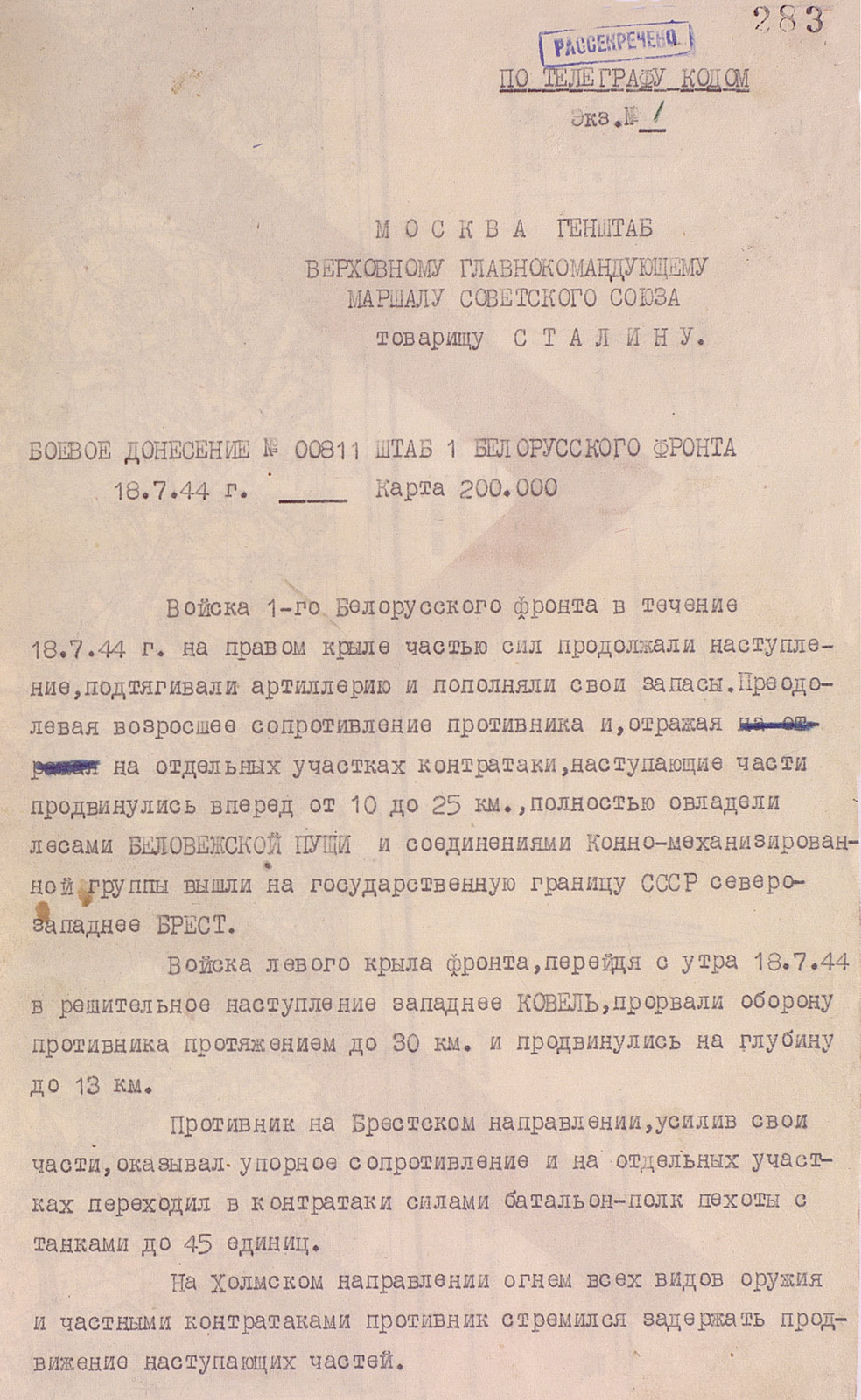
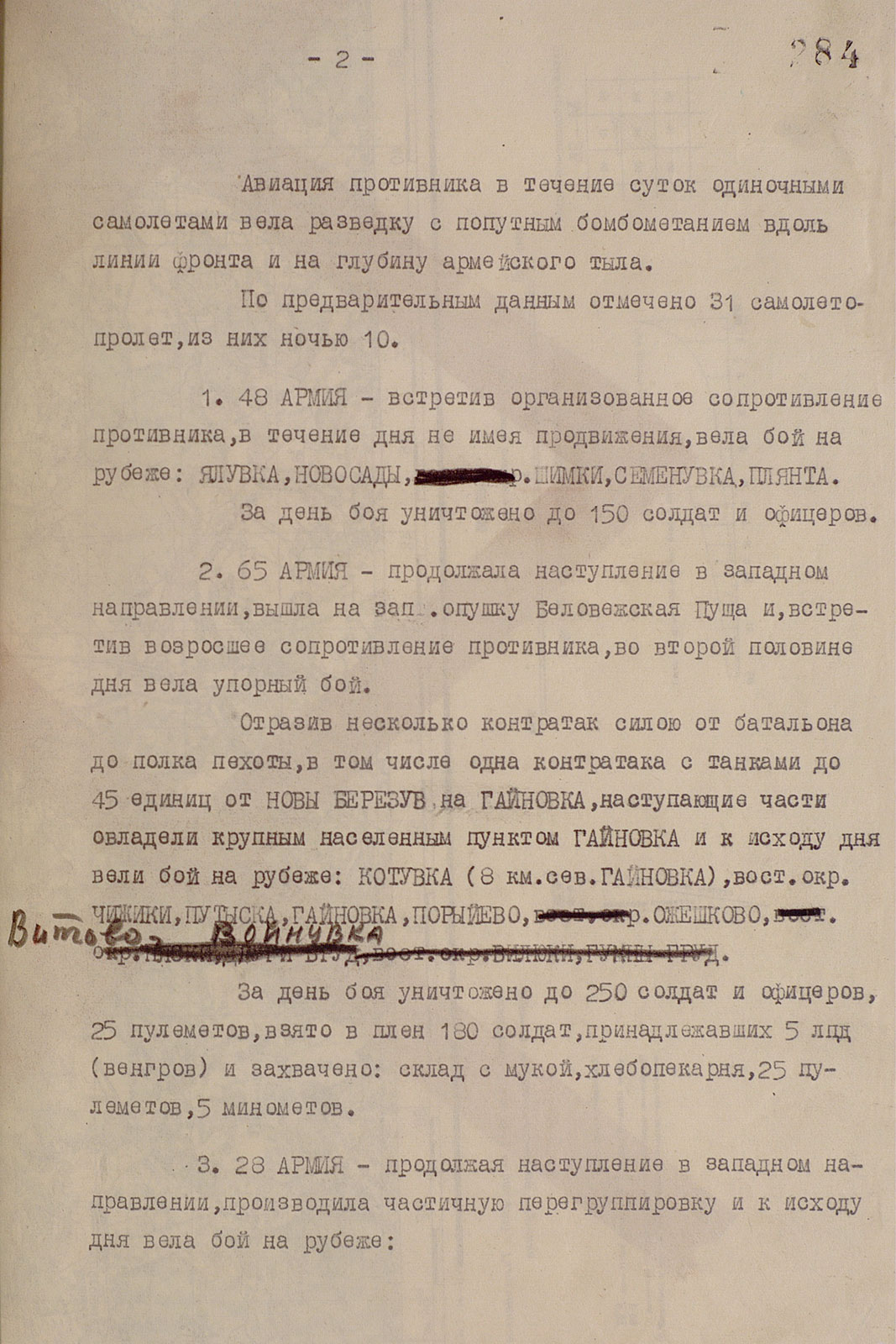
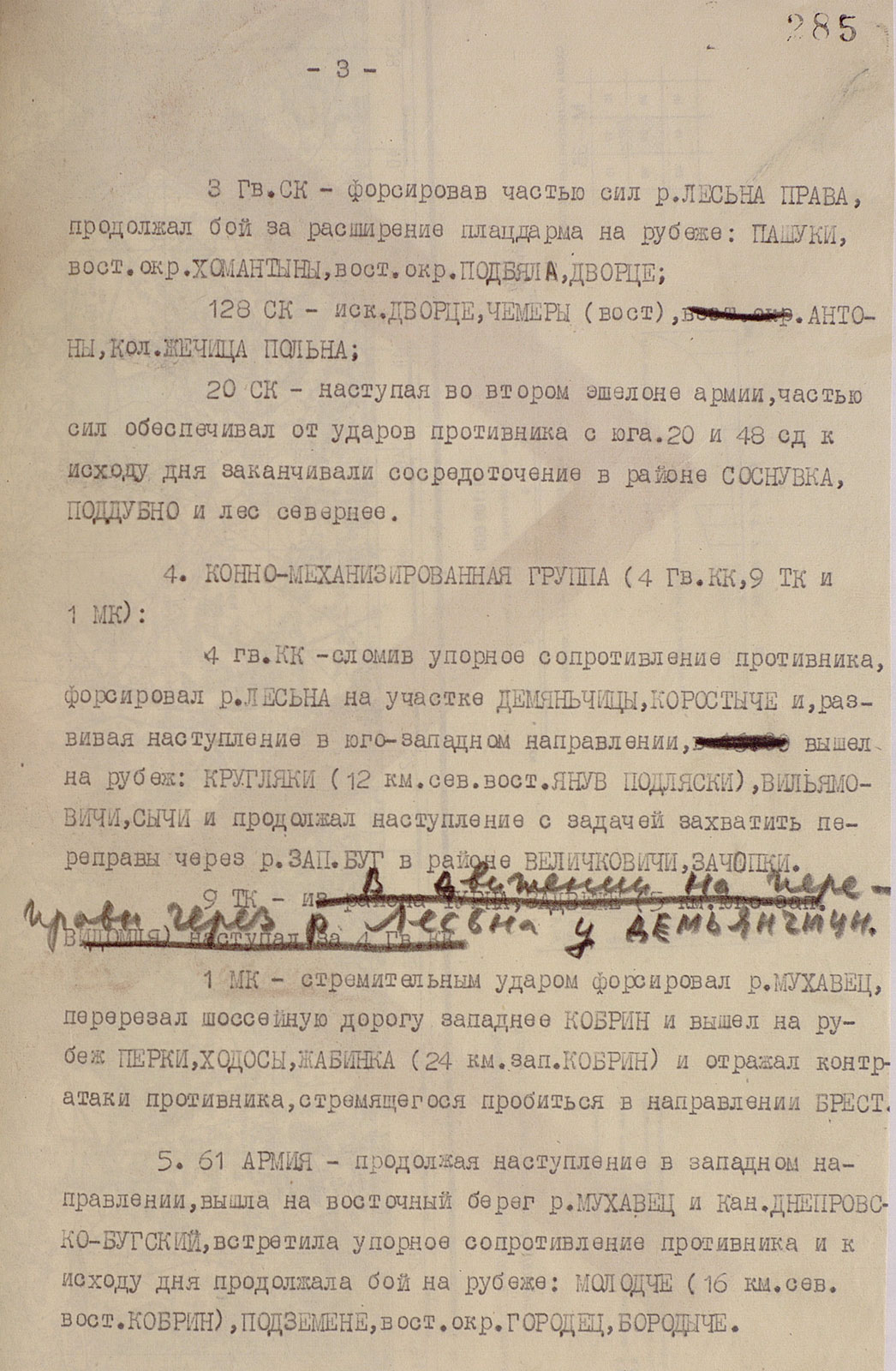
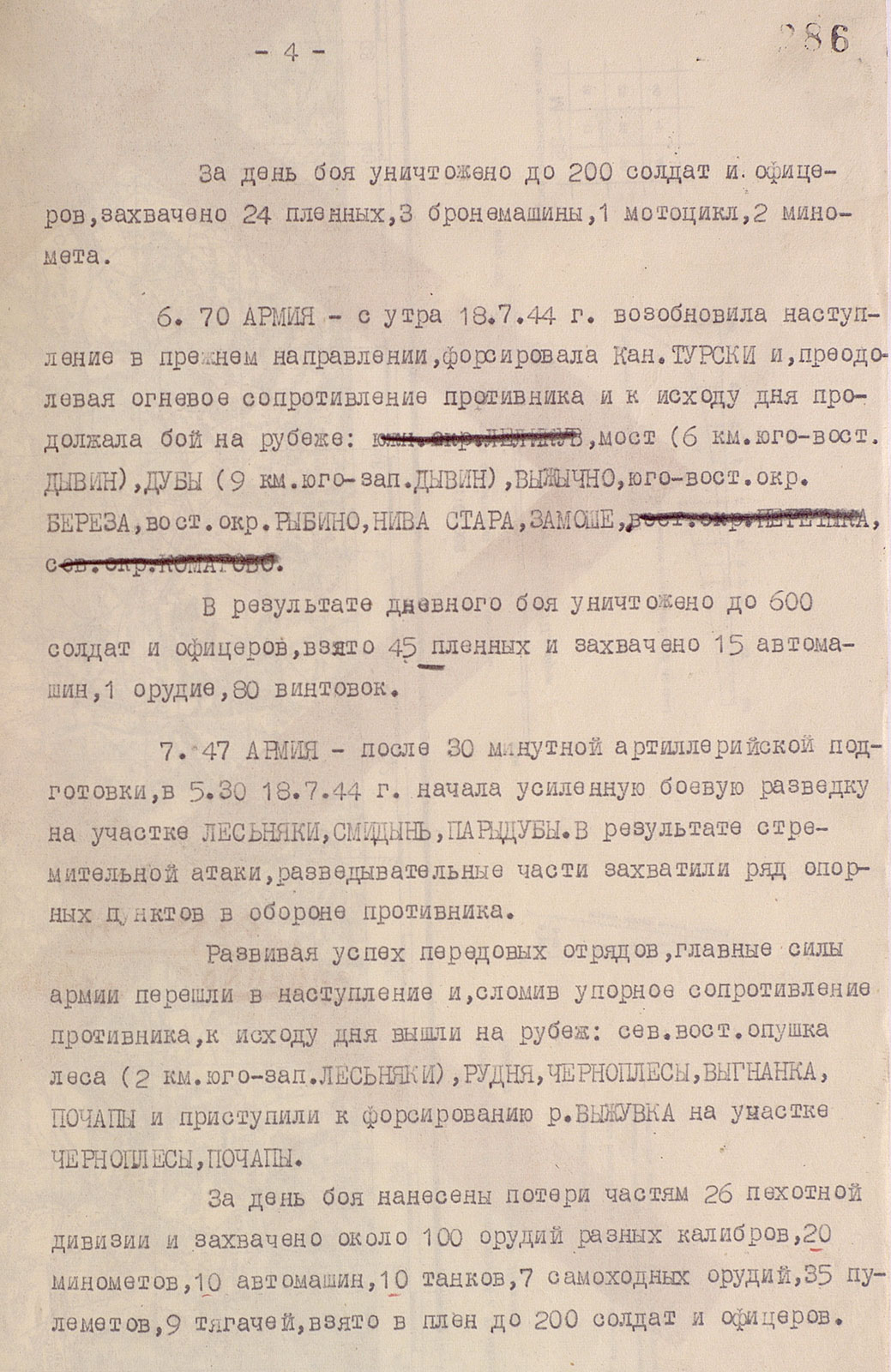
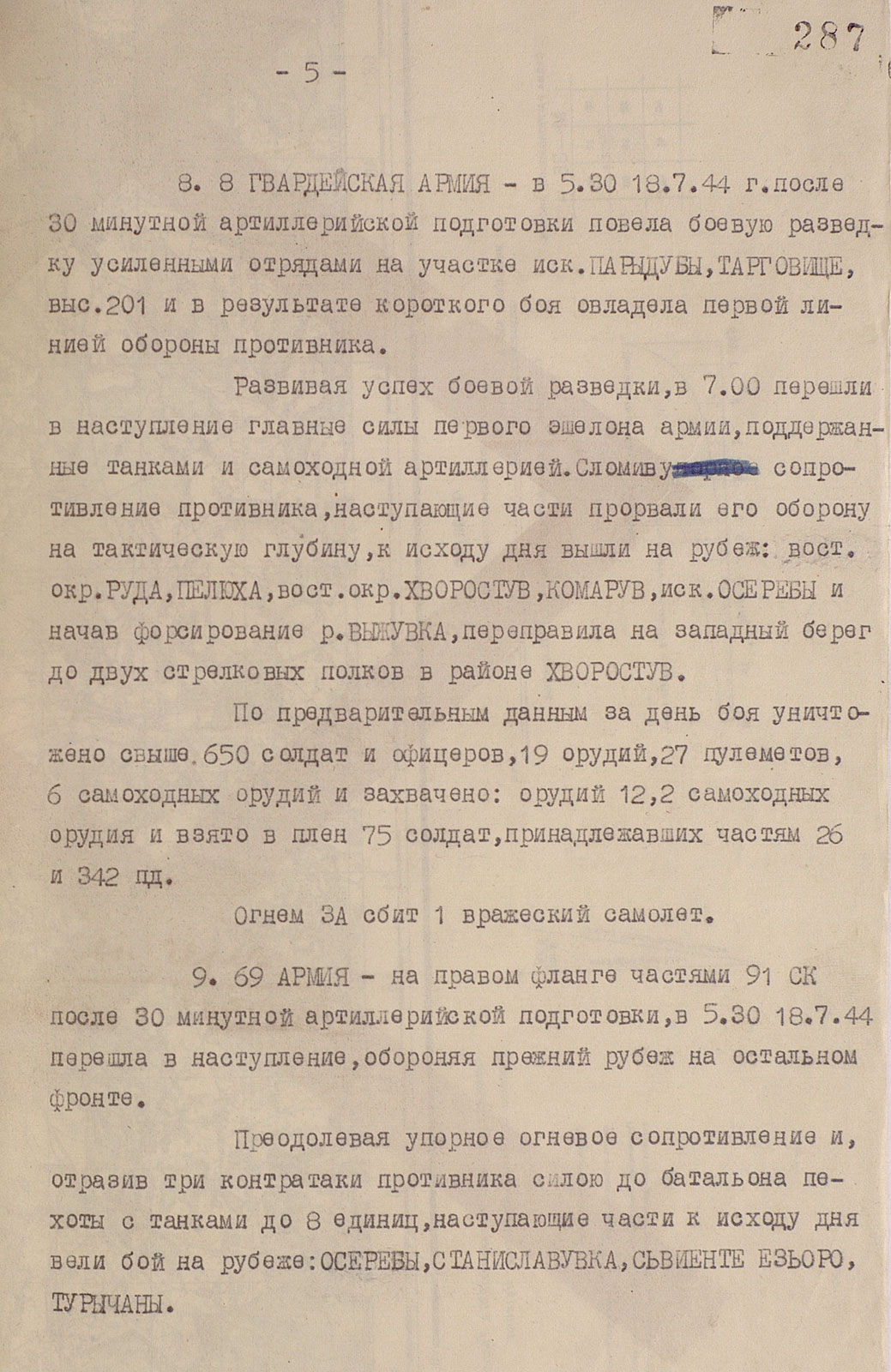
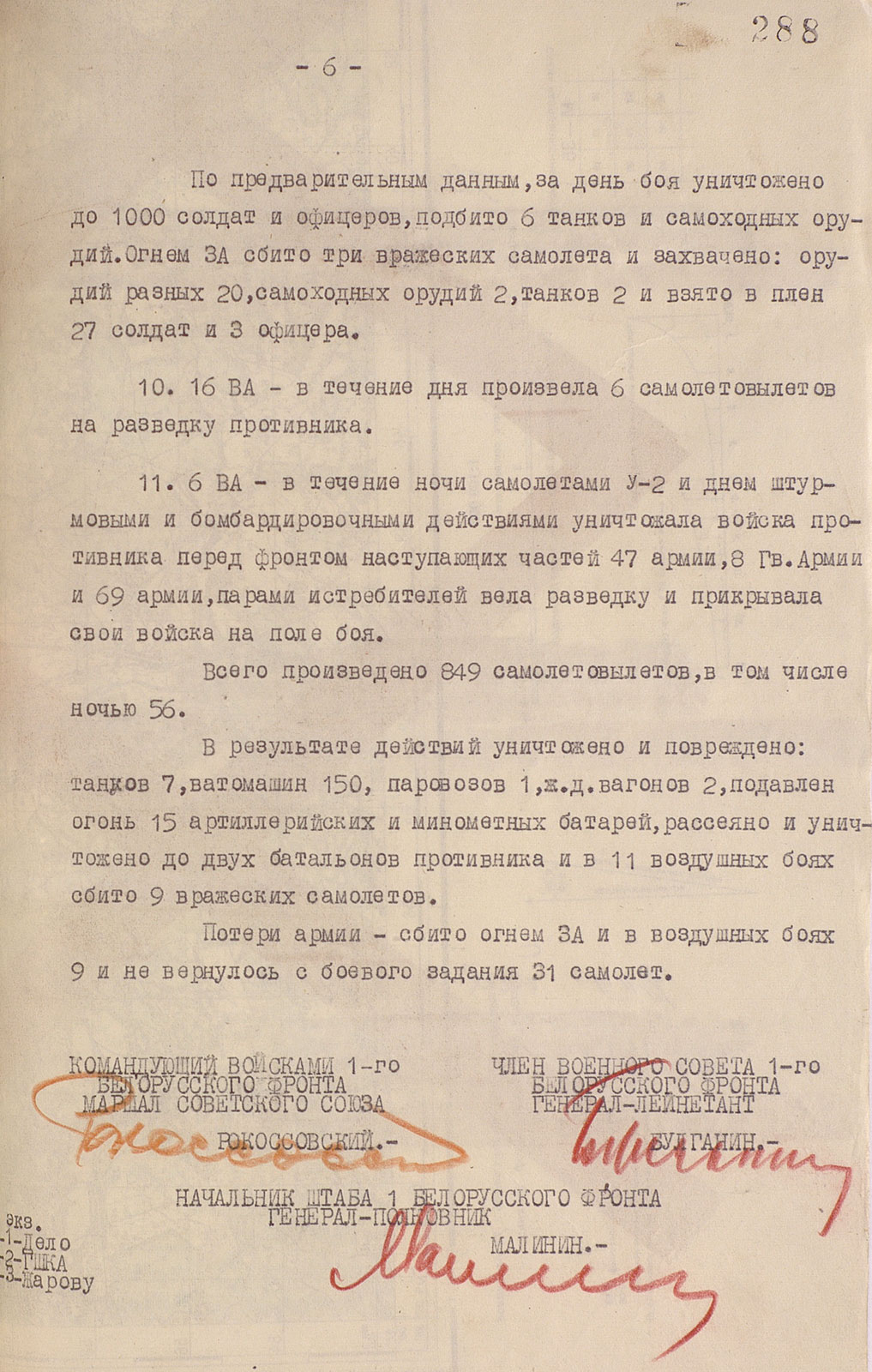
Combat report of headquarters of the 1st Belarusian front on the operational situation on the Brest and the Holm direction, 20 July 1944
«Troops of the 1st Belorussian front in the first half of the day 20.07.44 continued the attack on Brest and Chomsky directions. On the Brest direction of the advancing part, overcoming resistance to fire and reflecting portions of the counterattacks of the enemy, moved to () km Chomsky direction – the troops of the front, successfully developing the offensive, came to the river. Bug – the State border of the USSR, on the front of Zabuzhzhya, Korytnica and sections of the advance units crossed the river».
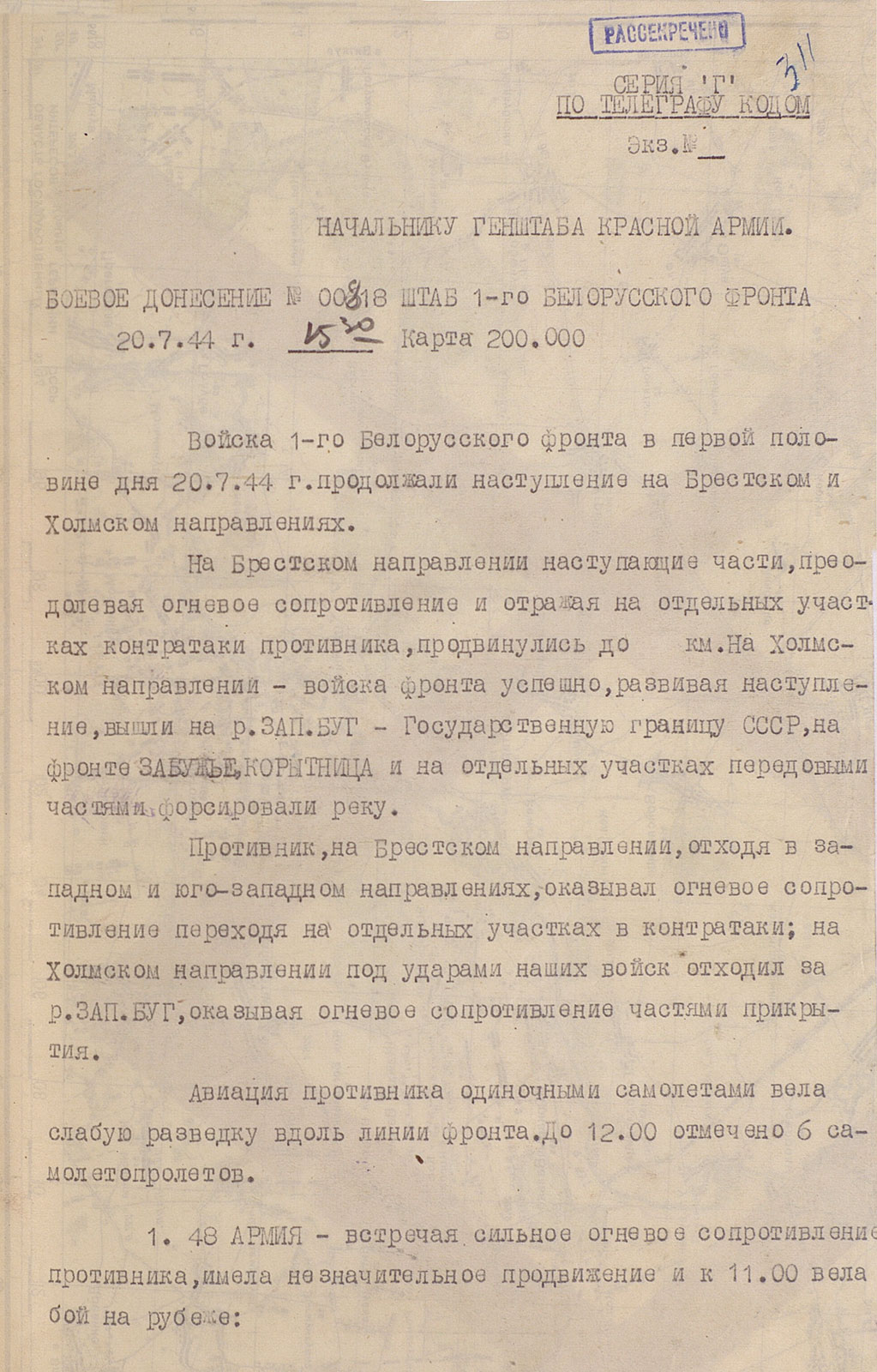
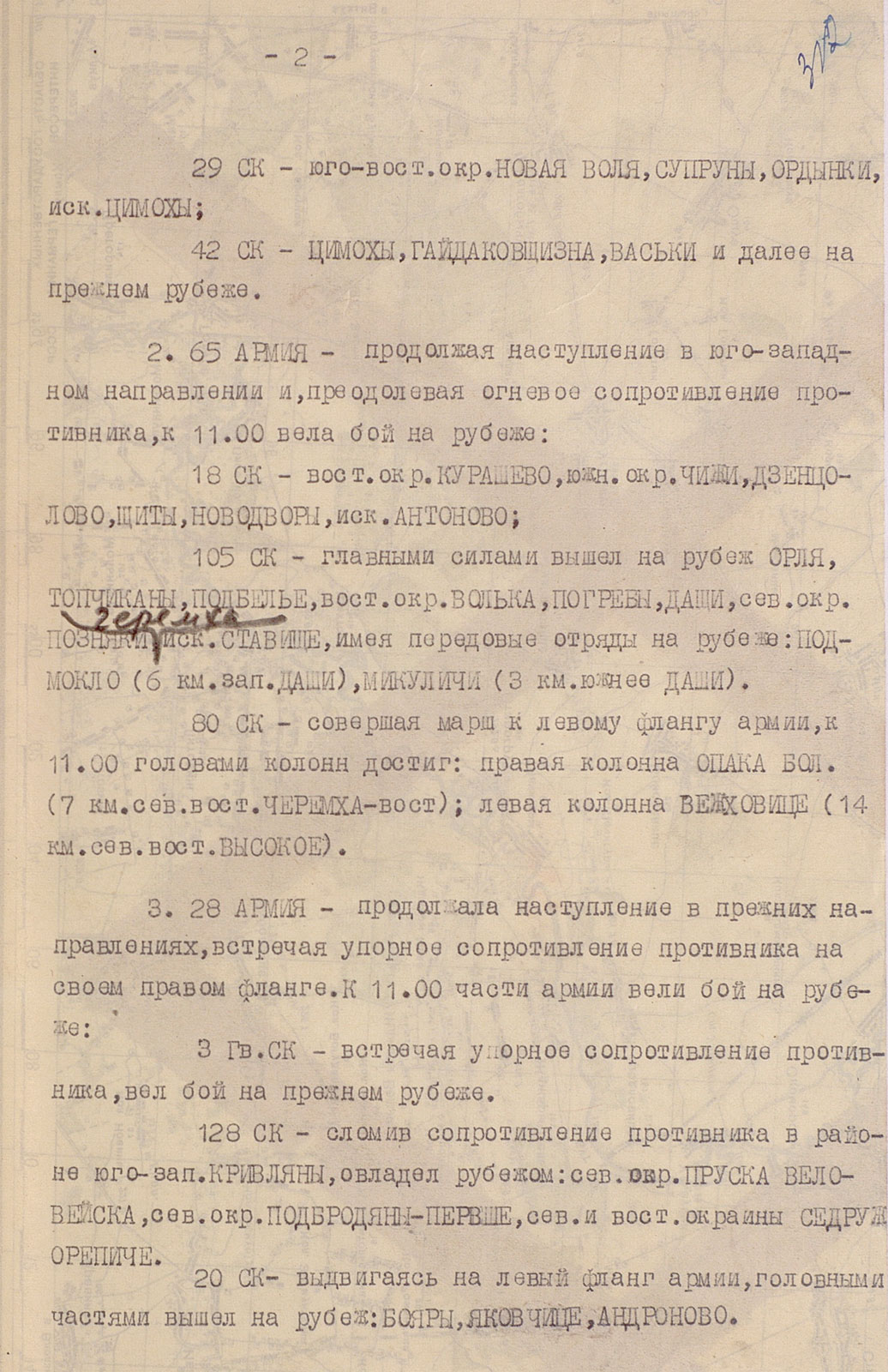
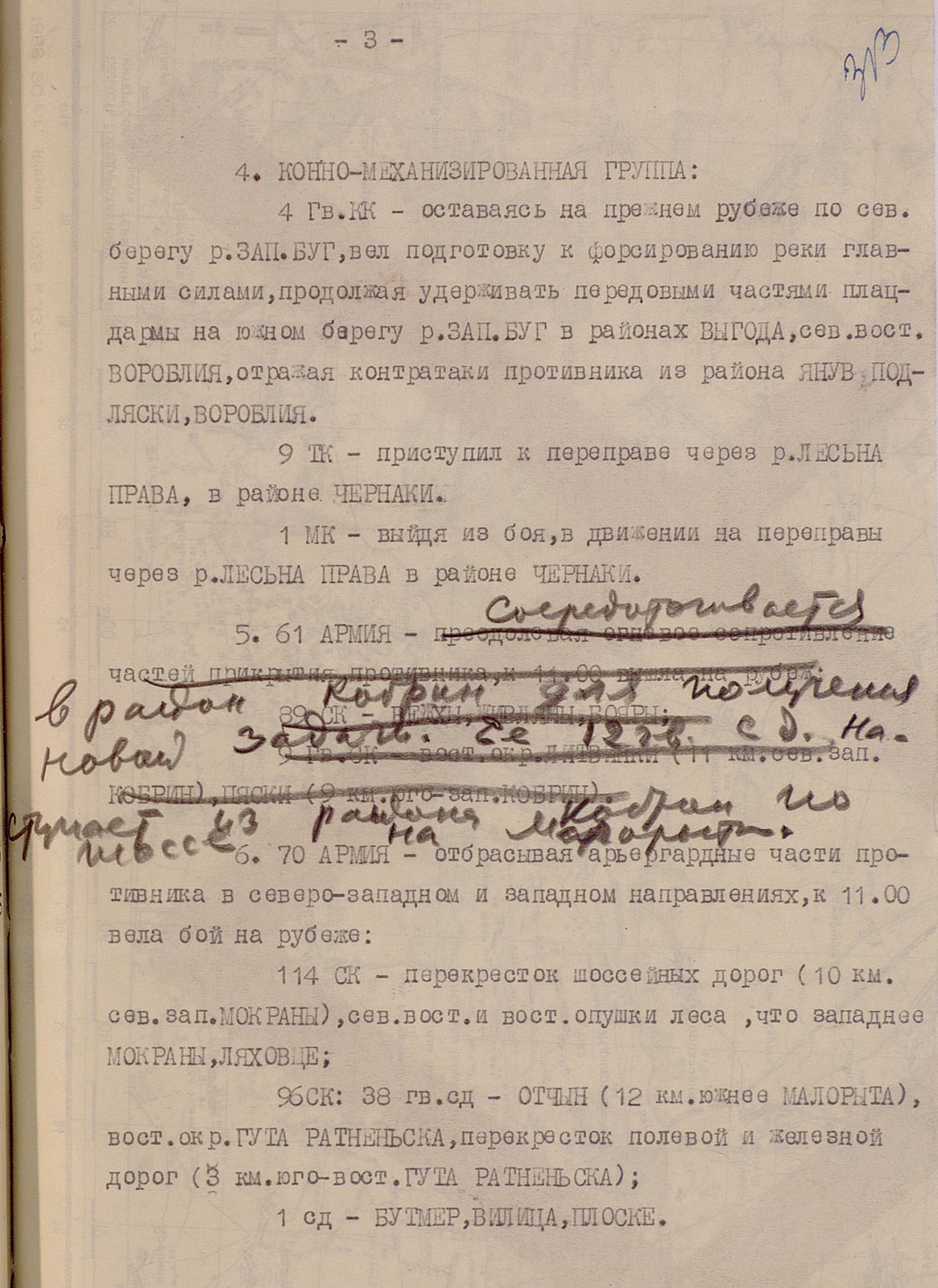
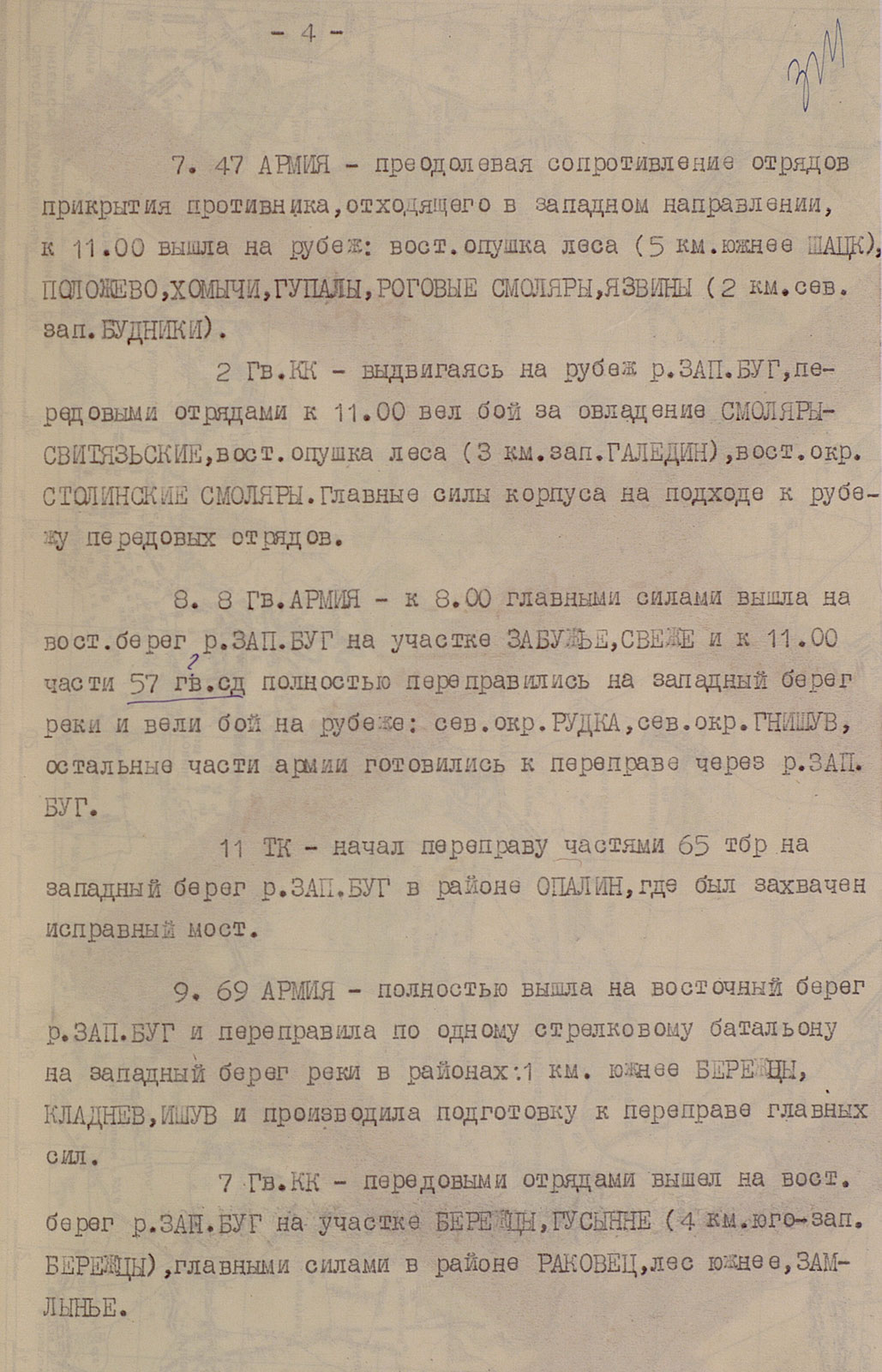
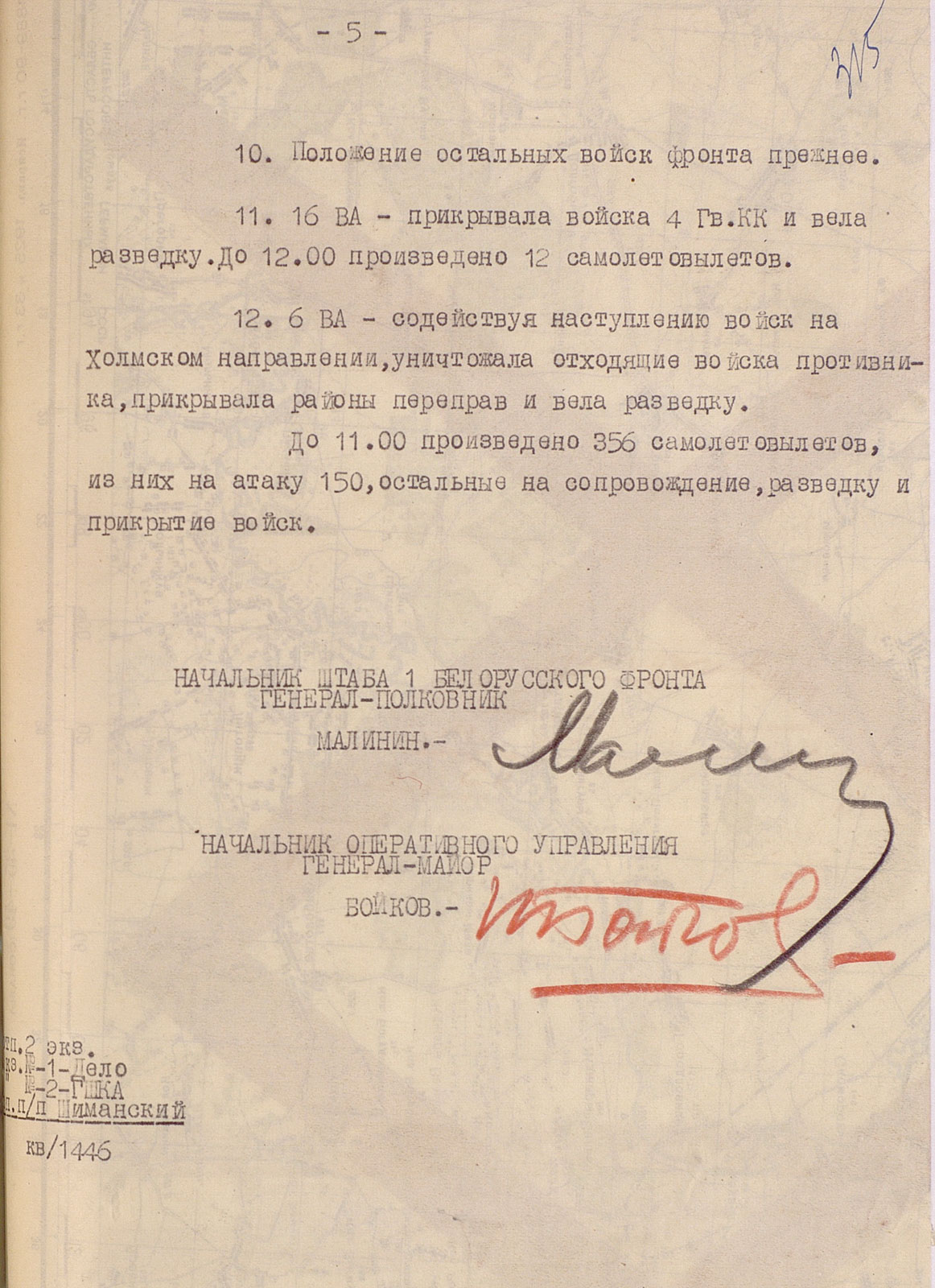
Telegram of the Union of Polish patriots the command of the first division named after T. Kosciuszko, 17 November 1943
Telegram of the Union of Polish patriots, signed by Wanda Wasilewska from 17.11.1943 years (the original Polish language and translation).
«...His heroic combat exploits you built a bridge, connecting us with the brotherly people, with which we want to live in harmony and friendship in the coming great years of construction after the final joint victory over the enemy».
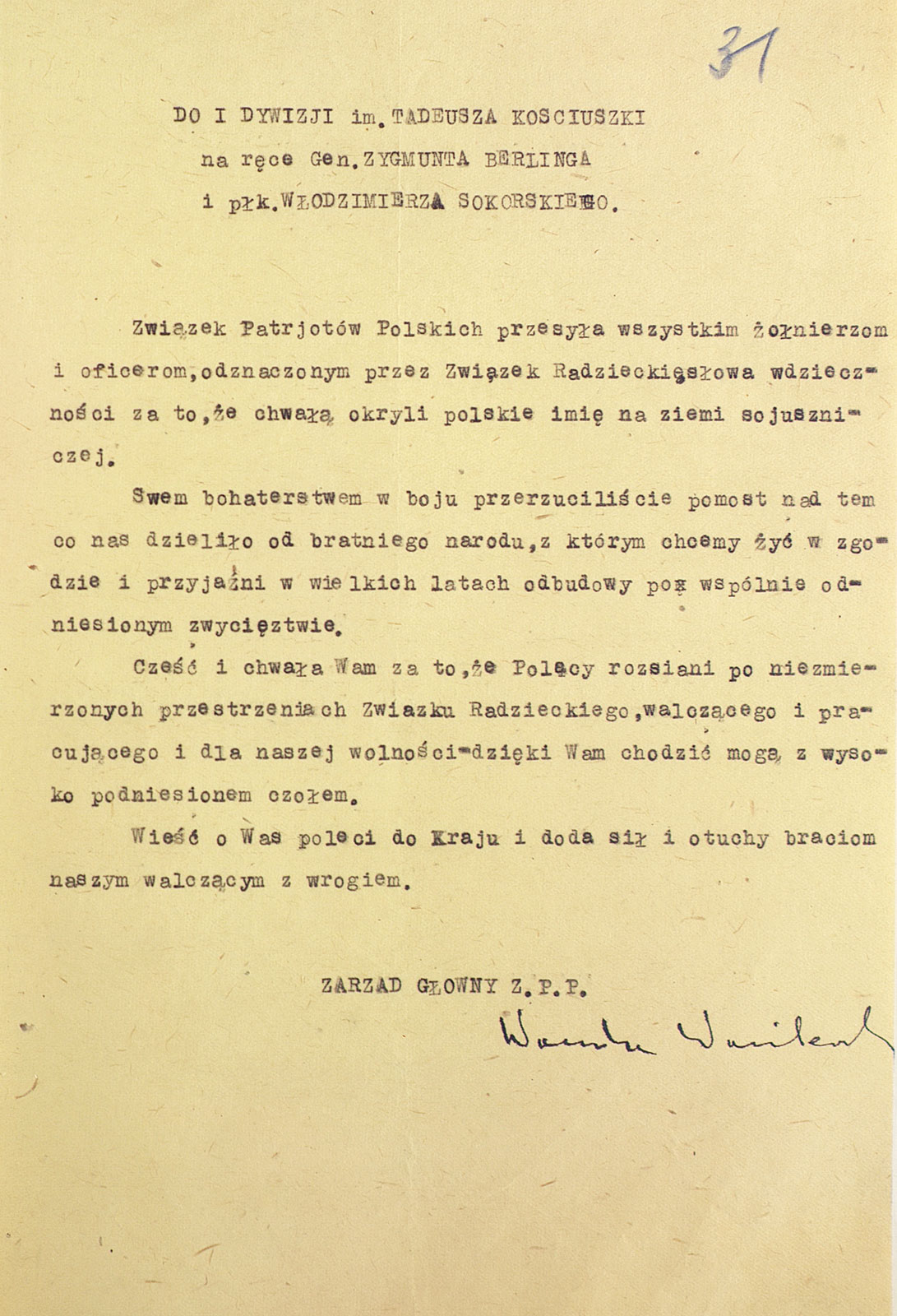
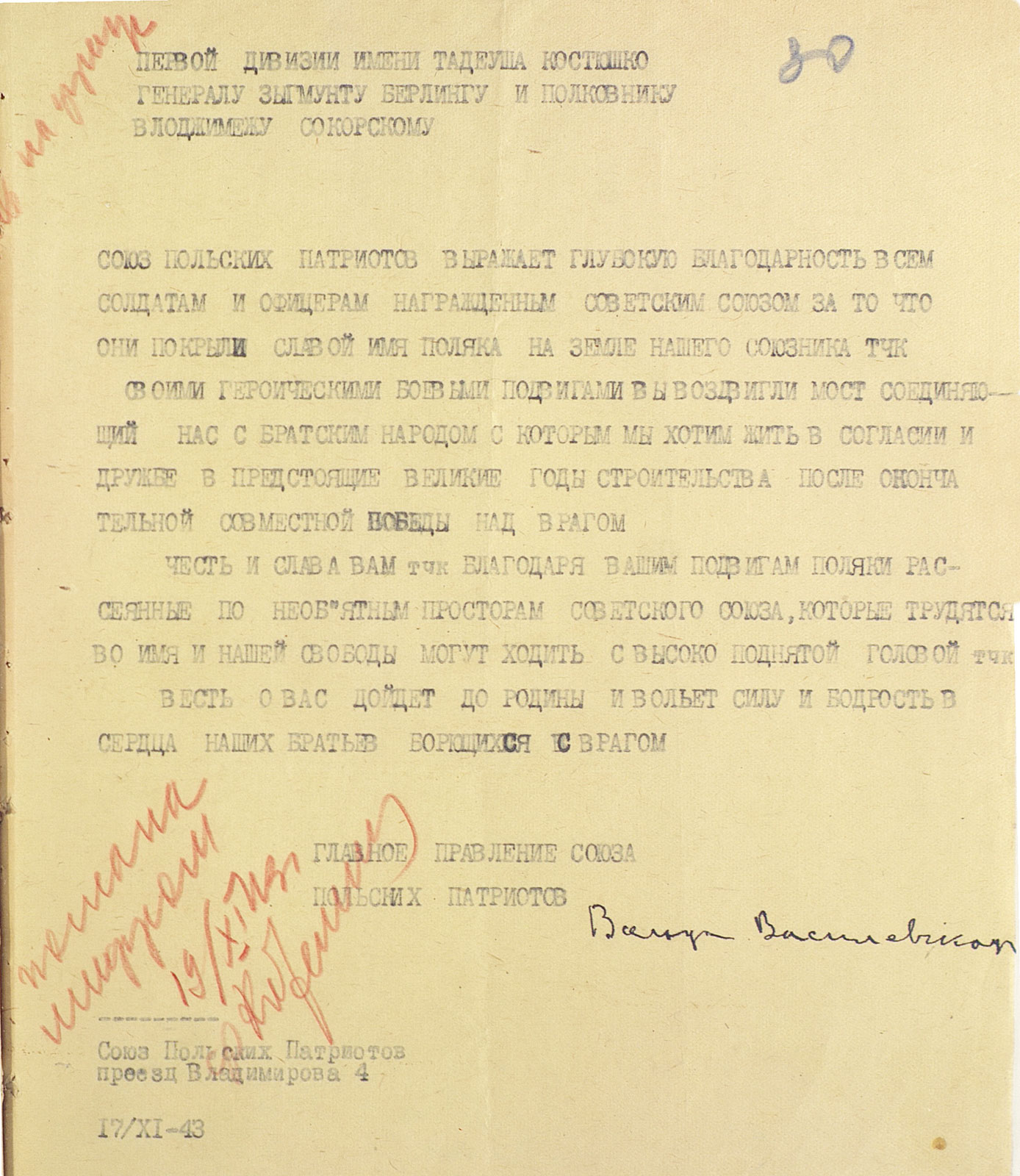
The appeal of the Military Council of the 1 Polish Army to the compatriots, 1 July 1944
The appeal of the Military Council of the Polish Army in the USSR to compatriots in the country. Published in the newspaper «Free Polish» 01.07.1944, Translated from Polish.
«...Brothers. Rise against the Nazi occupiers. Don't believe the lies of the Germans or their conscious or unconscious agents of the Soviet Union and our Polish Army. Meet adequately the allied Red Army, which has the greatest contribution to the victory over the Germans. Help our army and Soviet forces to destroy the German armed forces».
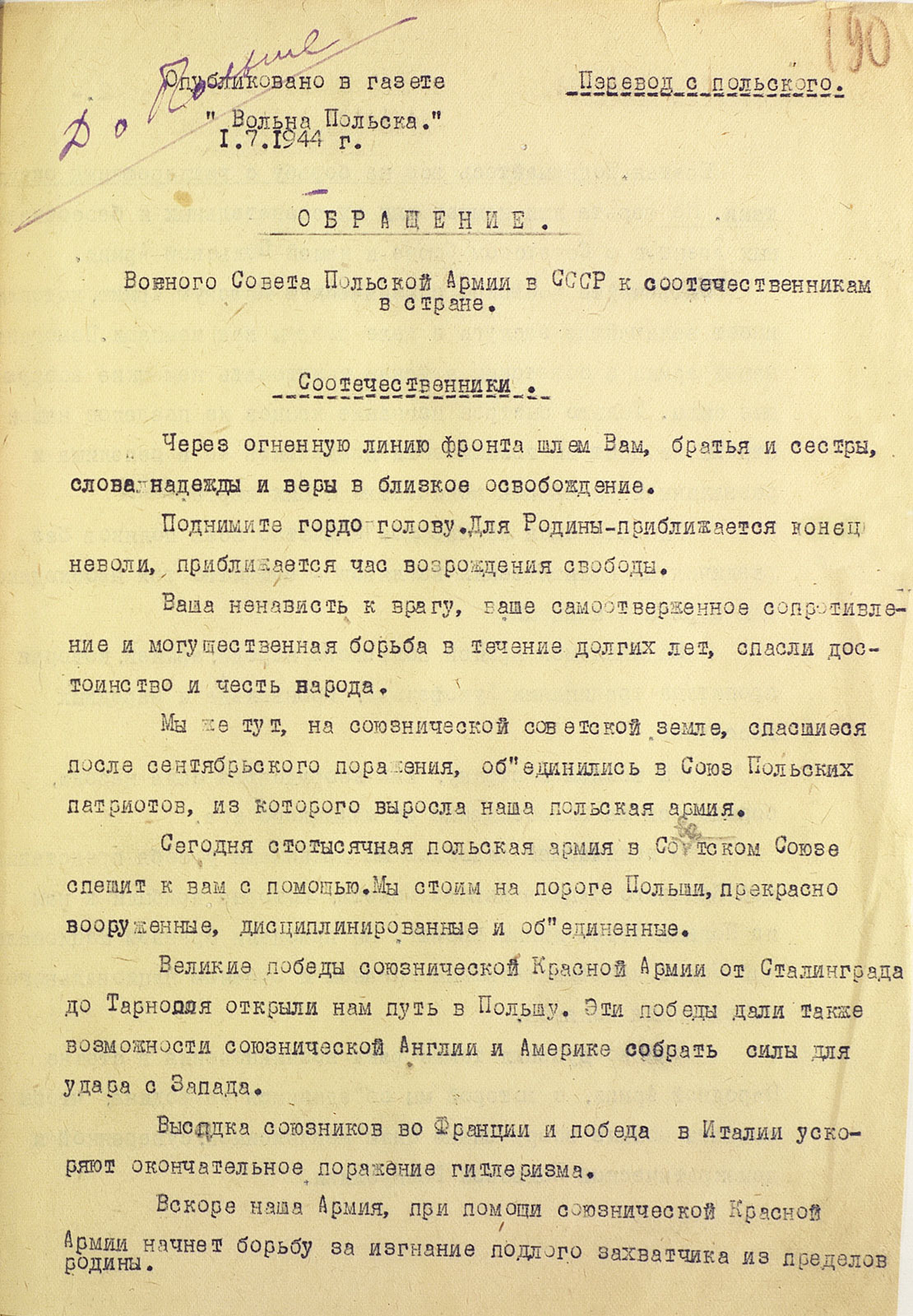
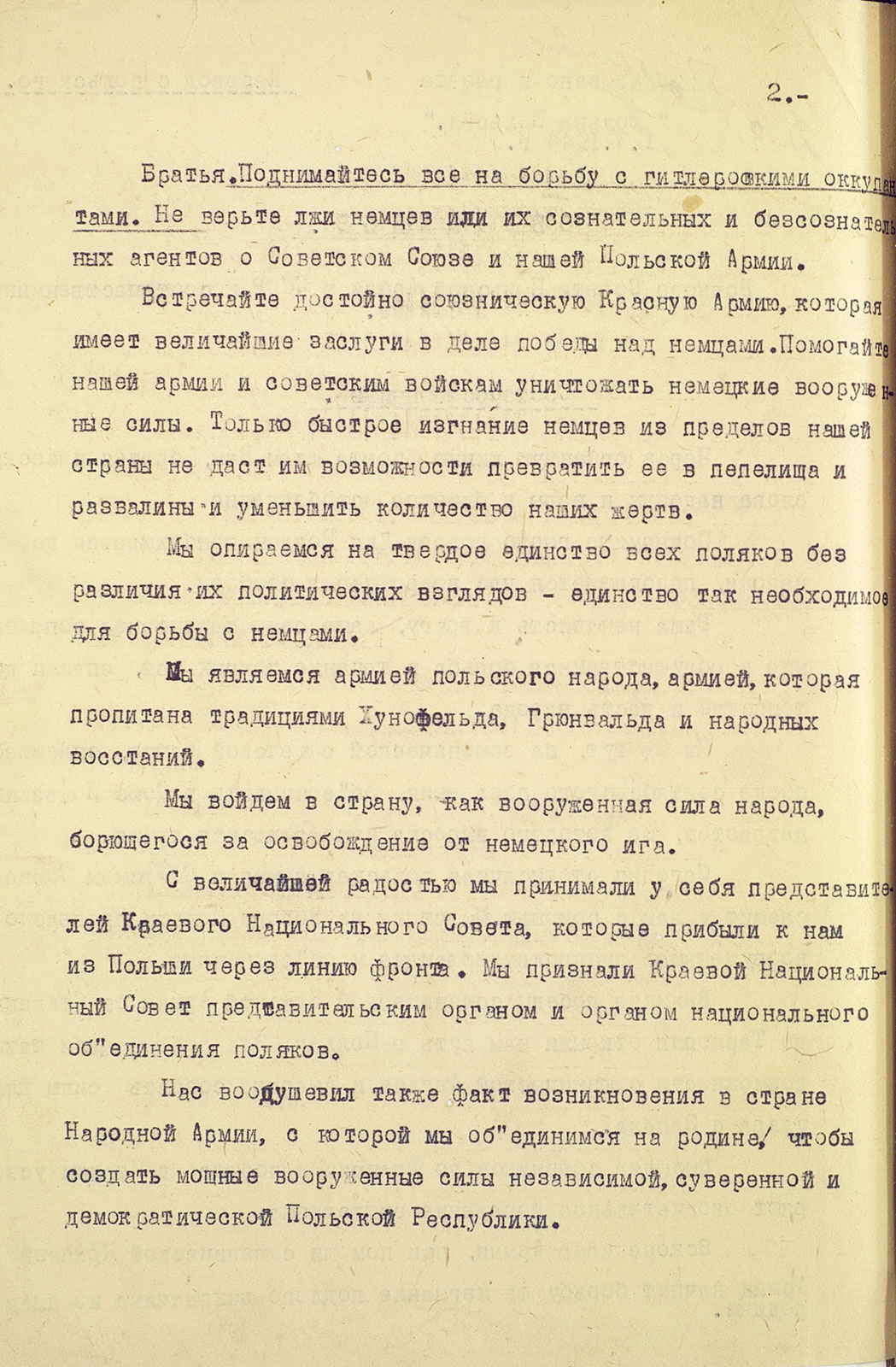
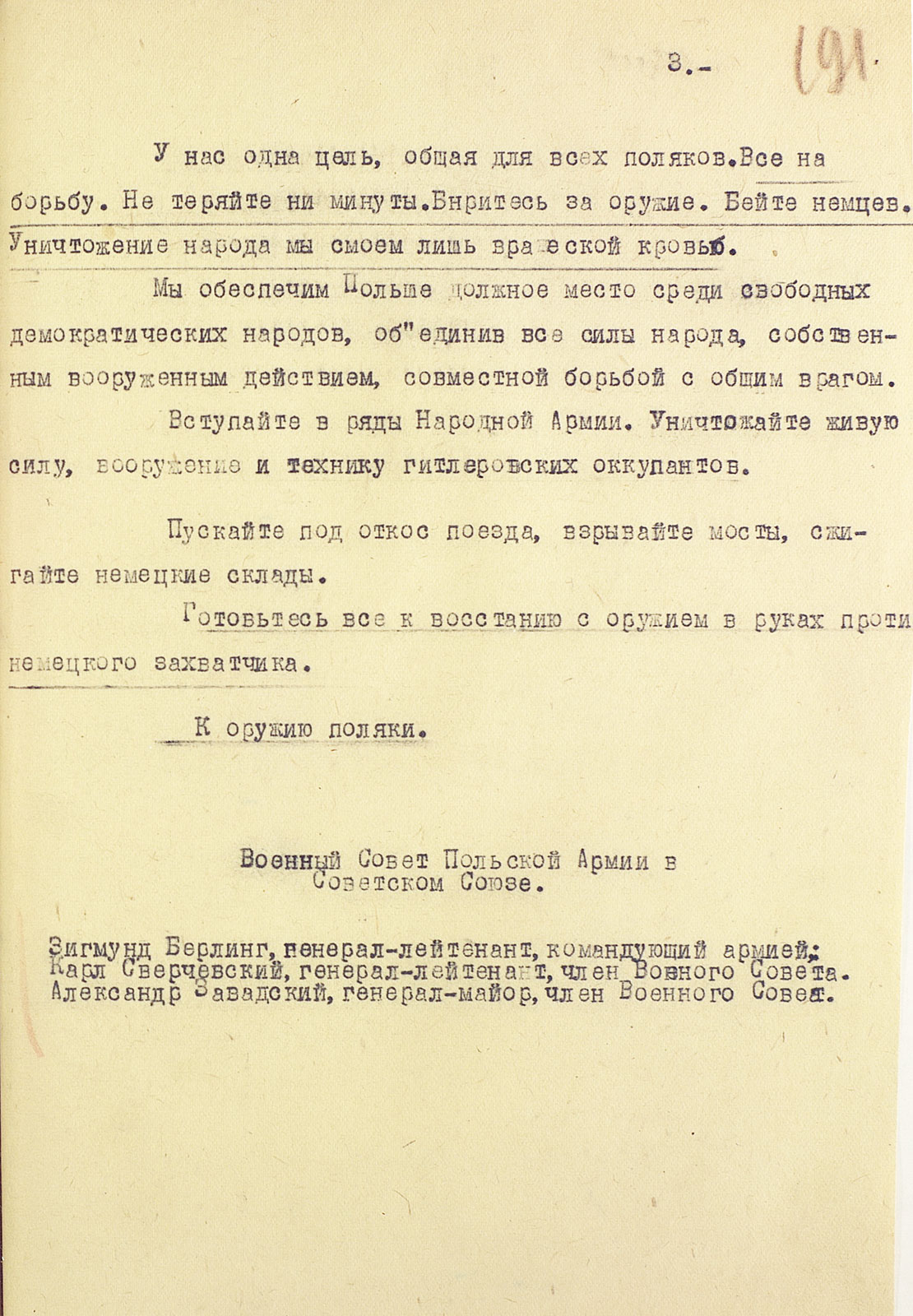
Treatment commander of the 1st Polish corps major General Z. Berling to Stalin. Translate from Polish.
«Before the release on the front of the first Polish division to them. Tadeusz Kosciuszko I want on its own behalf, and on behalf of the officers and soldiers to Express my heartfelt gratitude for the care and attention with which you have surrounded our Polish armed forces in the USSR».
«You, citizen Marshall, and Your government and we bring gratitude for the organisation and armament of our division, for the realisation of our dreams to participate in the struggle against the German oppressors of Poland. We will never forget. In the heart of the Polish people will always live on hot gratitude to the great Soviet ally, which us in the difficult moments of real help. We are happy that we are given the opportunity to fight together with the heroic Red Army, officers and soldiers who covered themselves with glory historic victories in the fight for Stalingrad, Orel and Belgorod».
«Our blood spilled on the front in the fight against the common enemy, forever seal the friendship of the Polish and Soviet people».
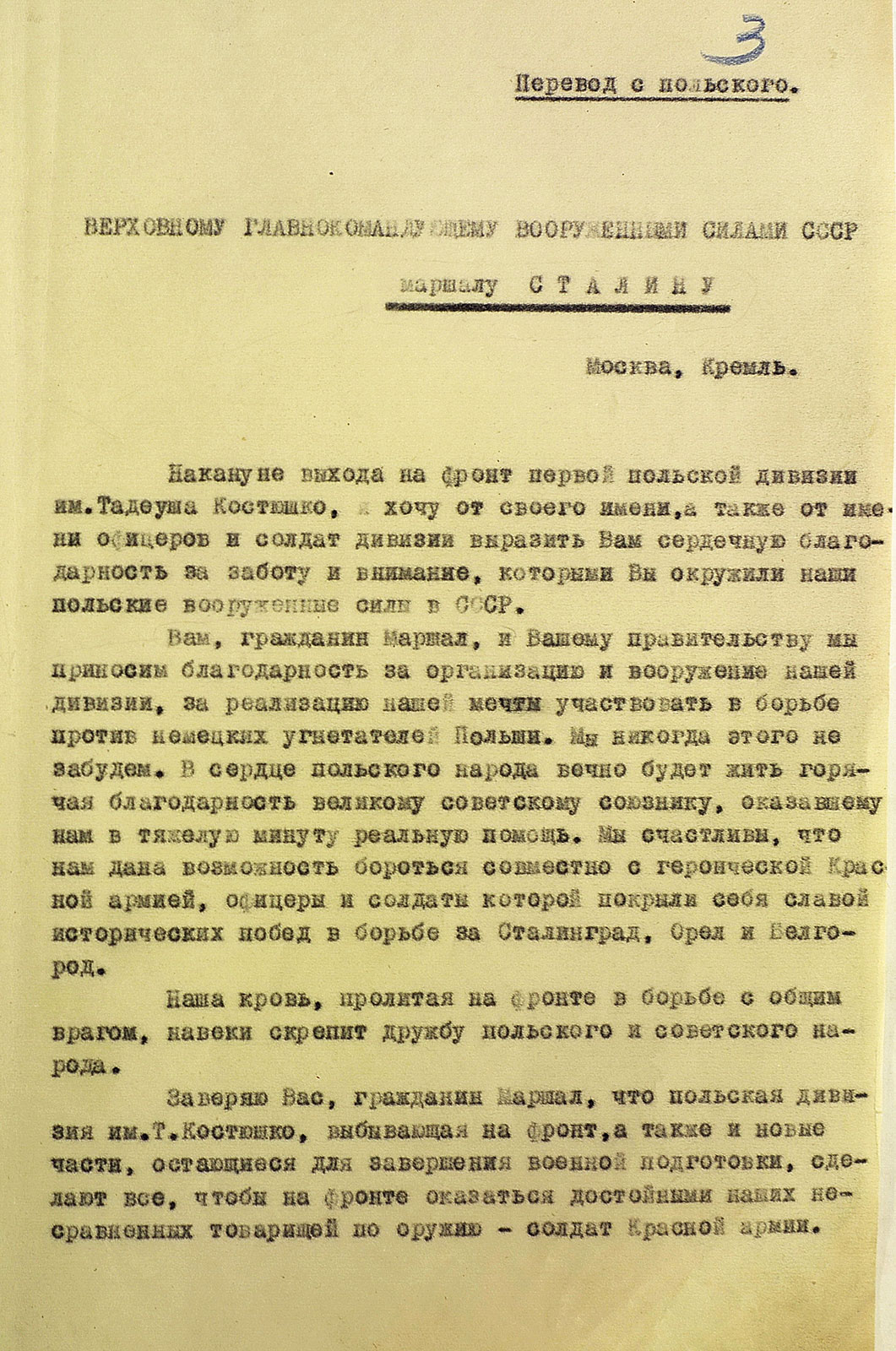
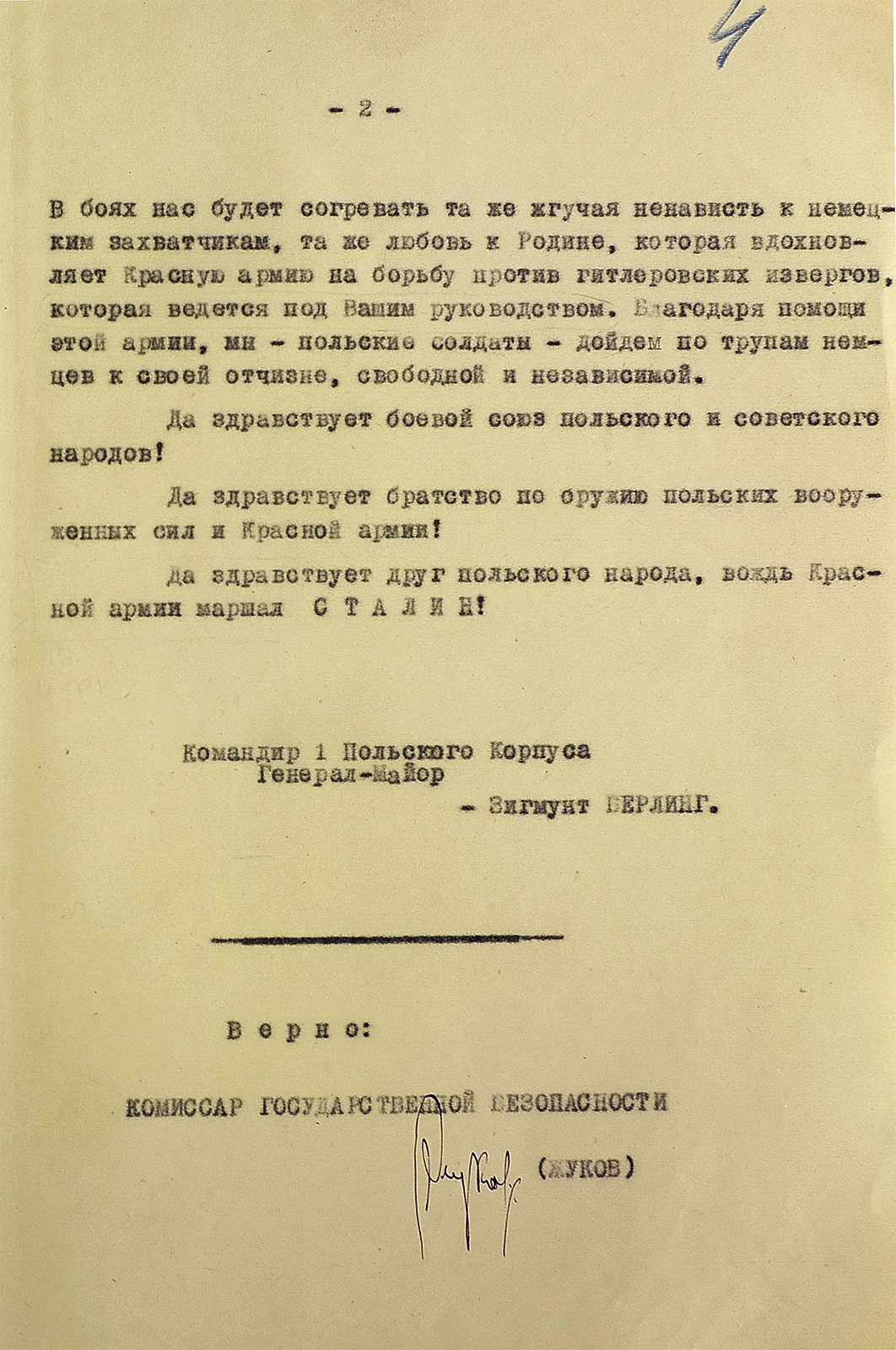
Political report of the political section of the 60th army of the 1st Ukrainian Front on the meeting in Poland of the army, 6 August 1944
Political report of the political section of the 60th army of the 1st Ukrainian Front on the meeting parts of the 60th army on the territory of Poland, the mood of the Polish population and the work done.
In the report described in detail the meeting of the Red Army with the population of Poland, which welcomed the Soviet soldiers as liberators, treating them the little that was, and expressing sincere joy on the occasion of the deliverance from the Nazi yoke. In some Polish cities, the soldiers of the Polish army provided military assistance to our parts, then becoming a protection order in the liberated cities.
In the section «Atrocities and looting of the Germans in Poland and treated the poles» indicated according to the poles themselves: they lived under the fear of death, completely powerless, enduring bullying, robbery, murder, especially over the Polish Jews, who almost completely destroyed.
In the section «the mood of the population of Poland» interesting information about living there the Ukrainians who expressed a desire soon to move to Ukraine.
These sentiments are explained in a very heightened ethnic strife between poles and Ukrainians, greatly enhanced by the Germans. To Soviet officers addressed many poles who had fled from Western Ukraine where they were persecuted Bandera, to clarify whether they can now return to their seats, so as to live there they are not wanted.
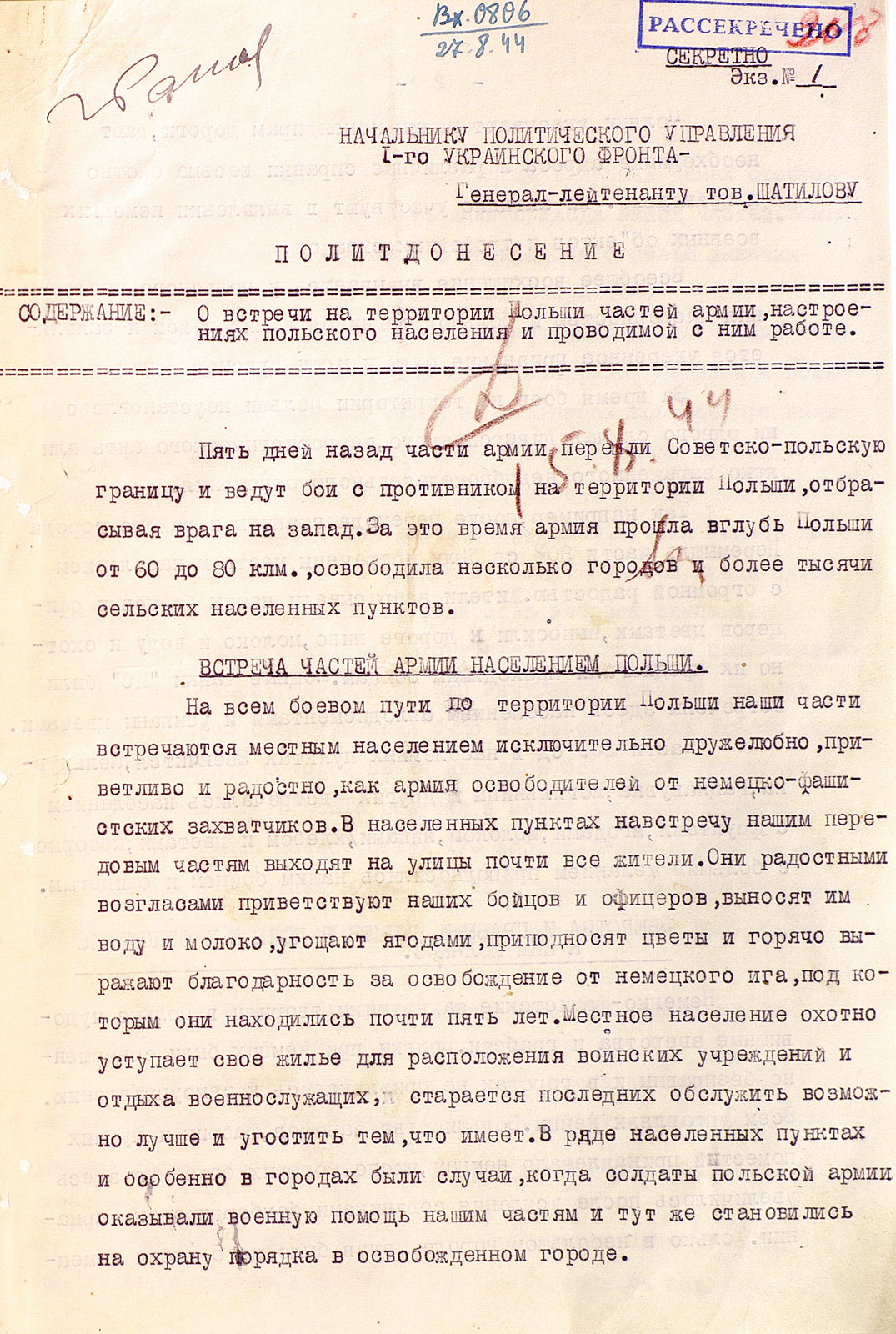
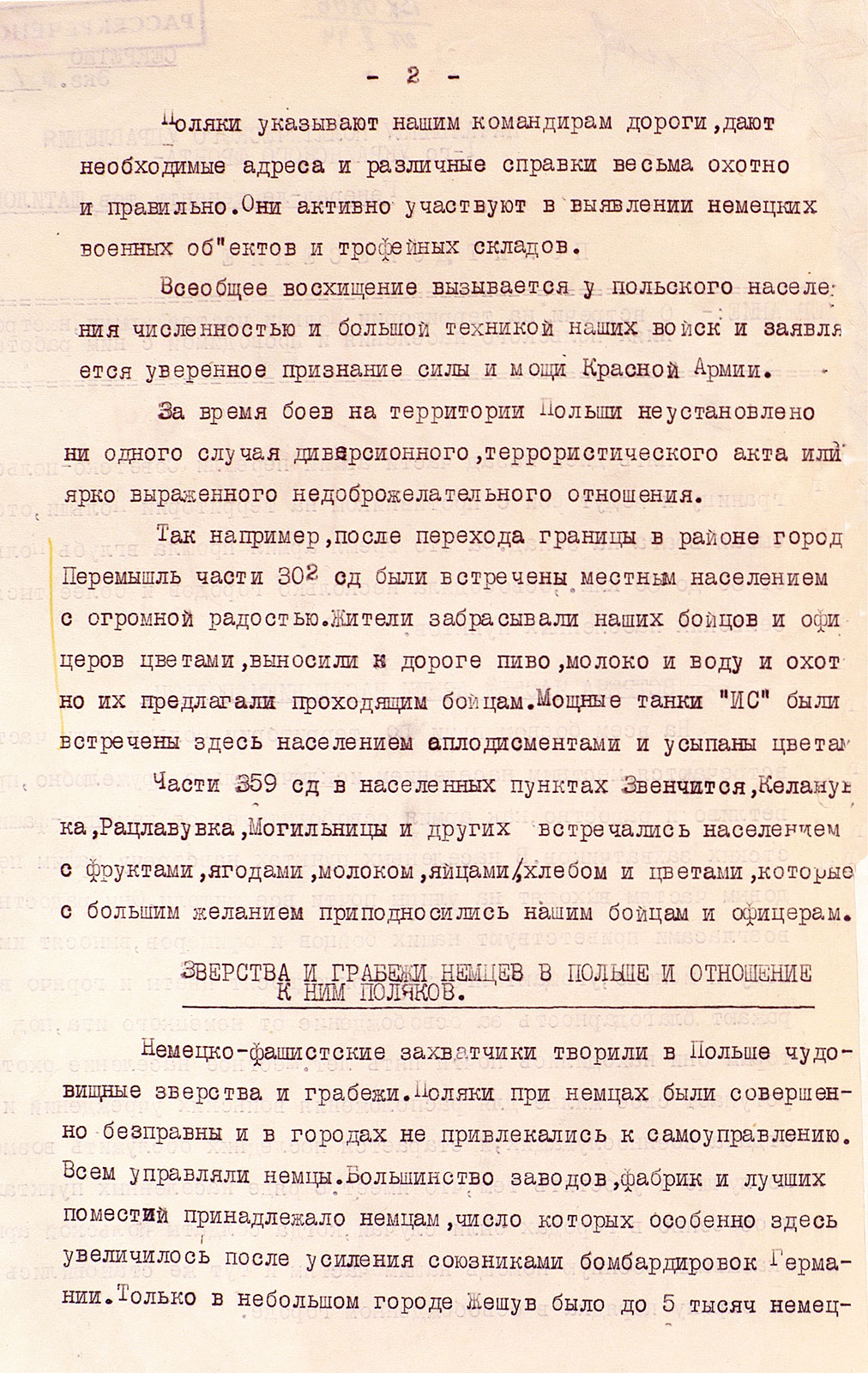
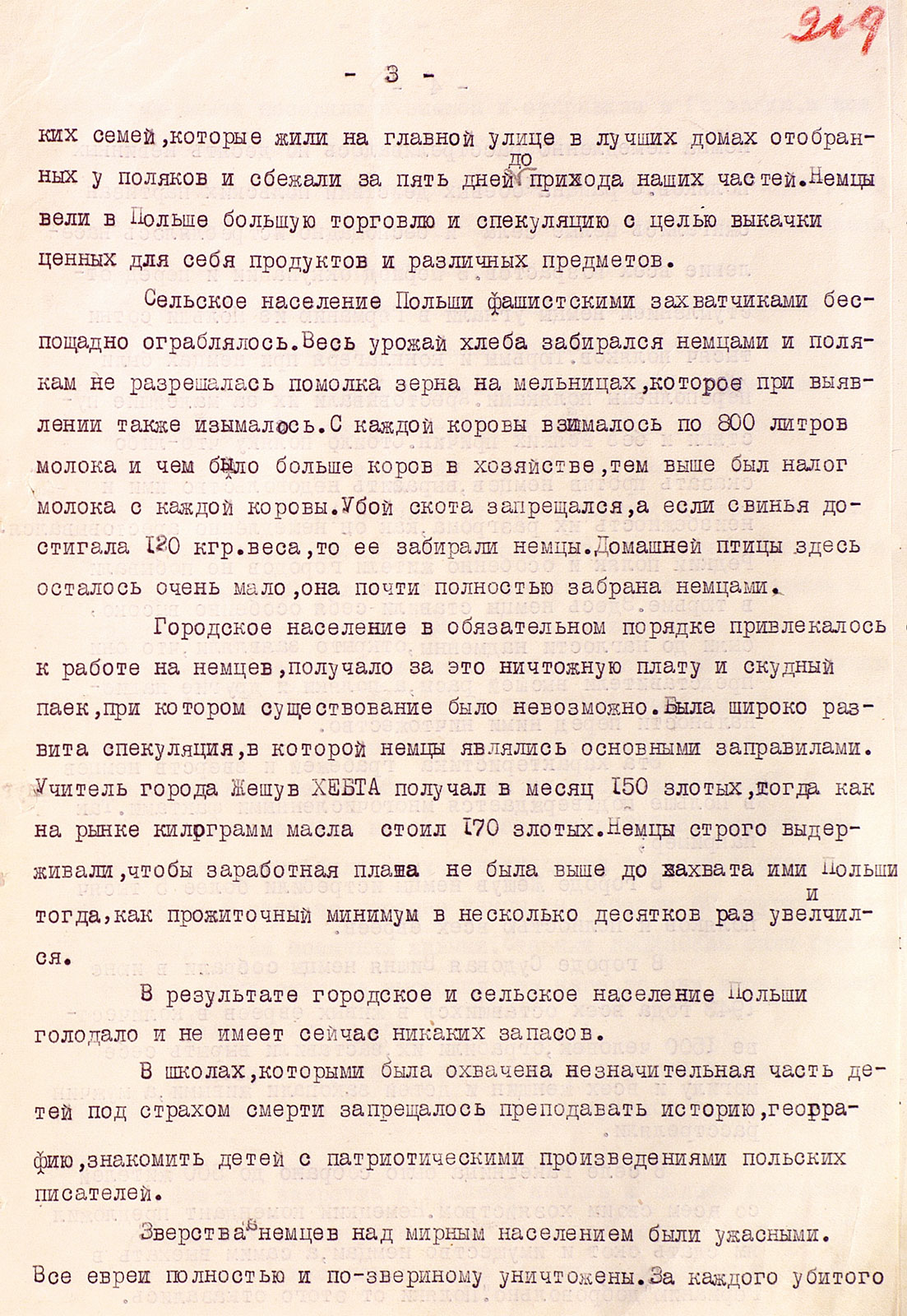
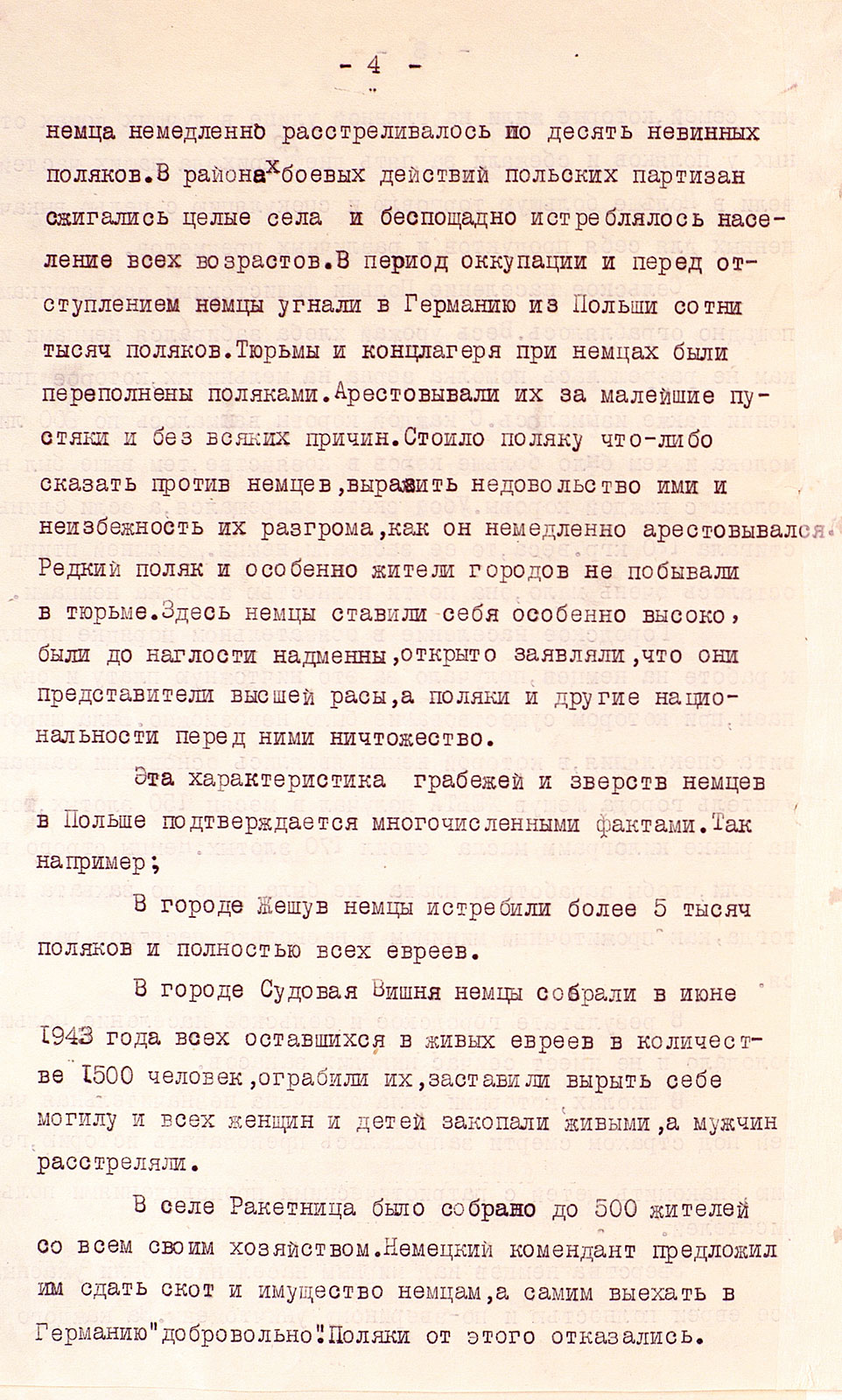
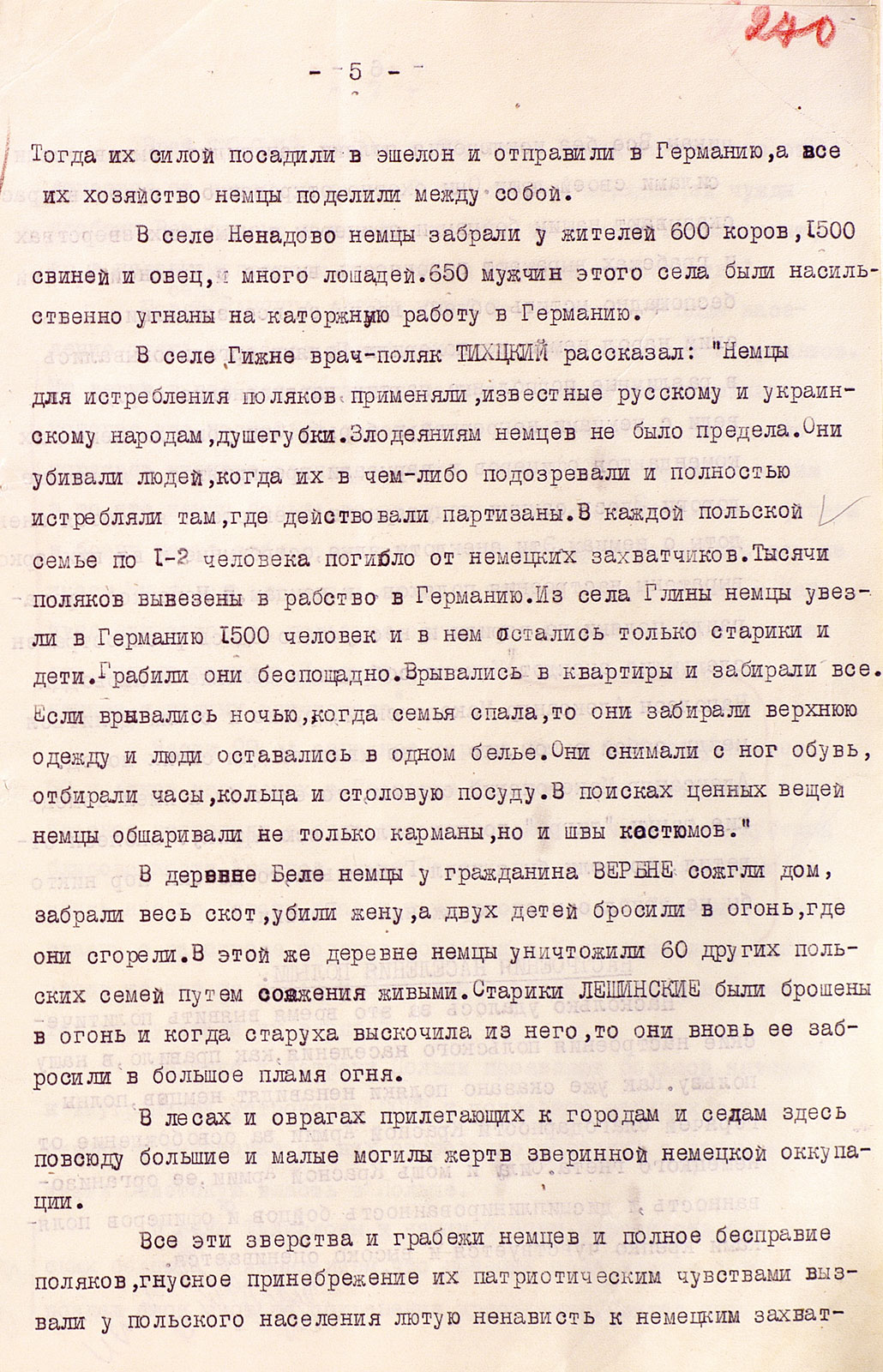
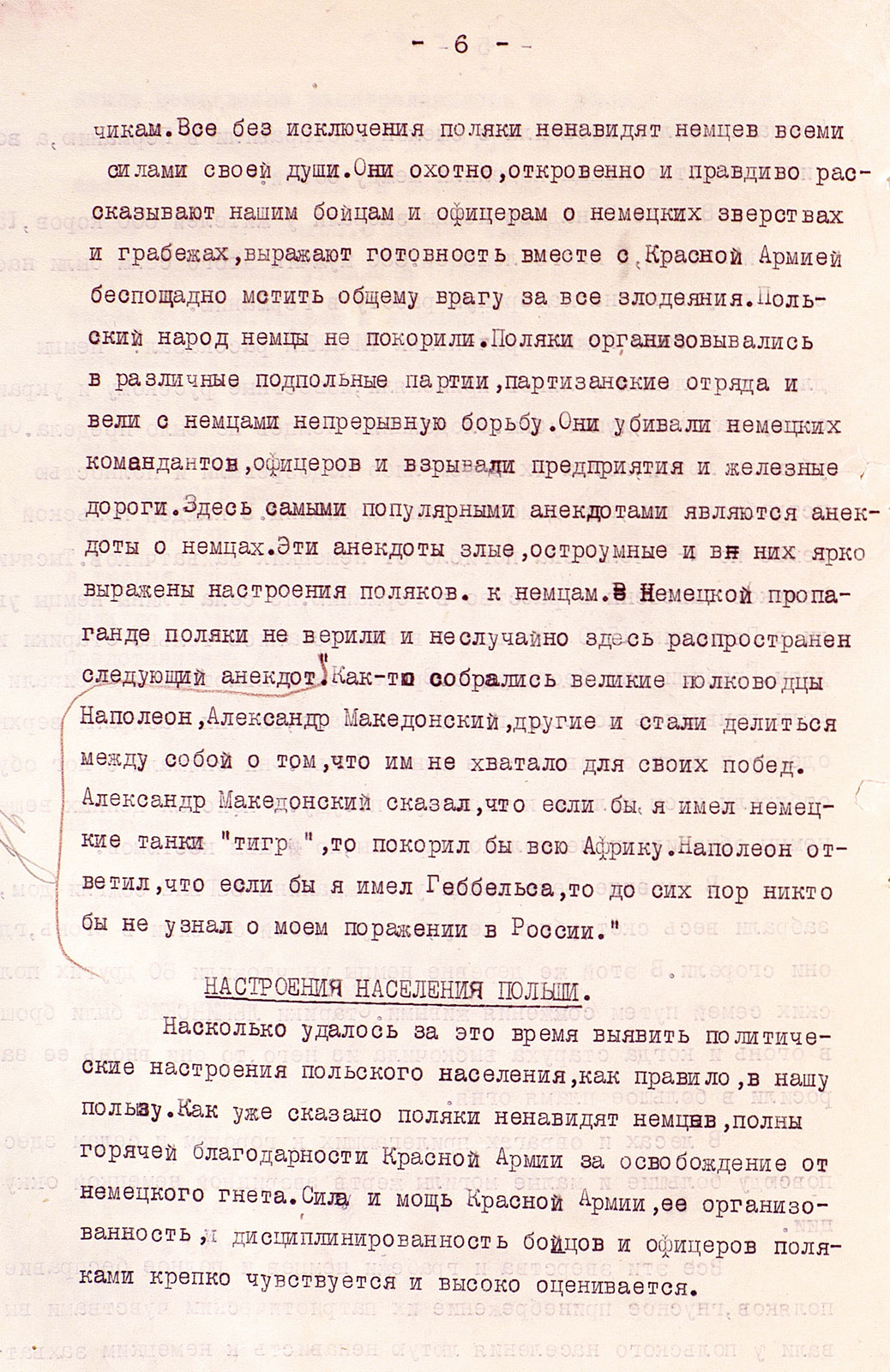
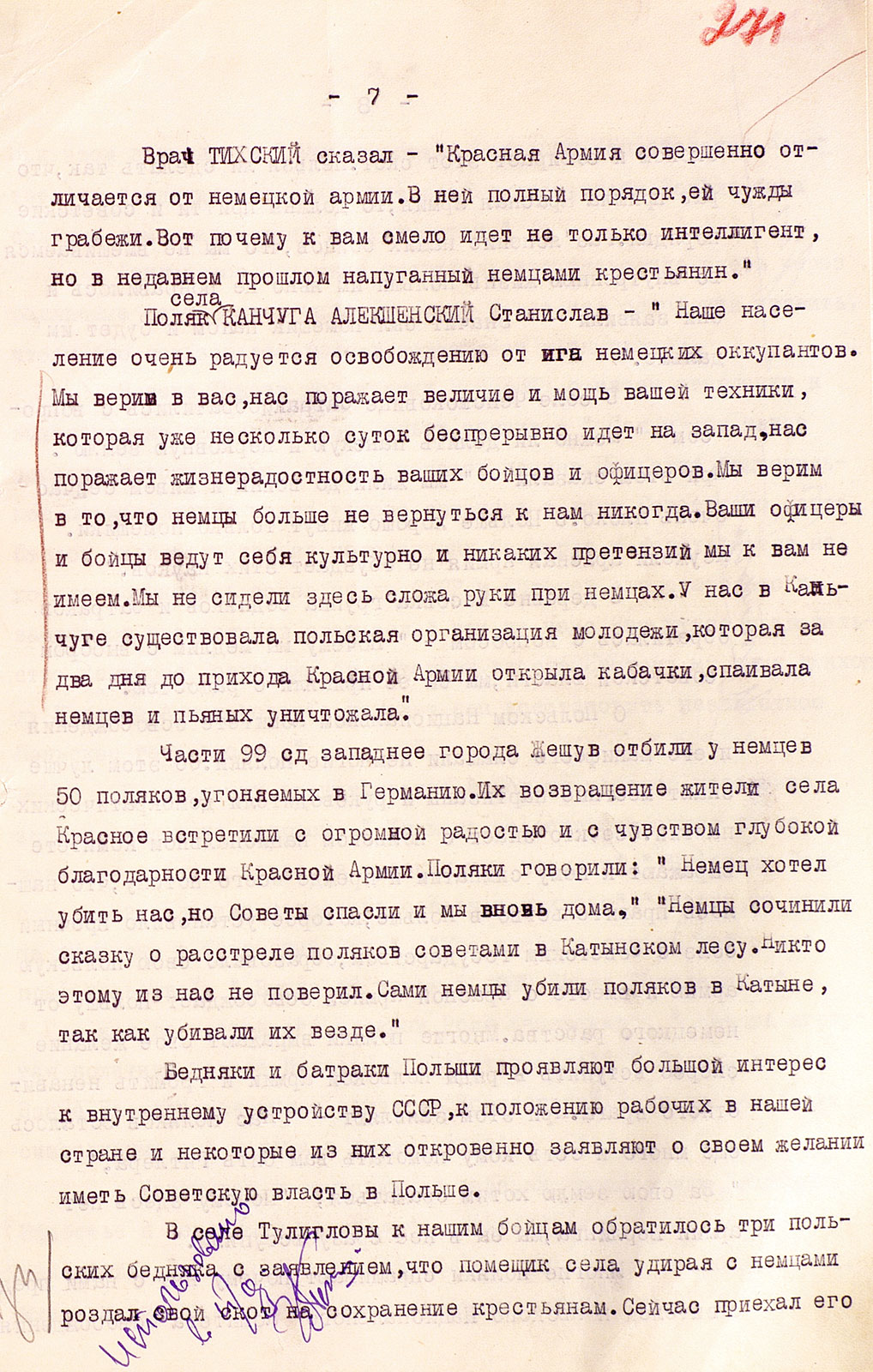
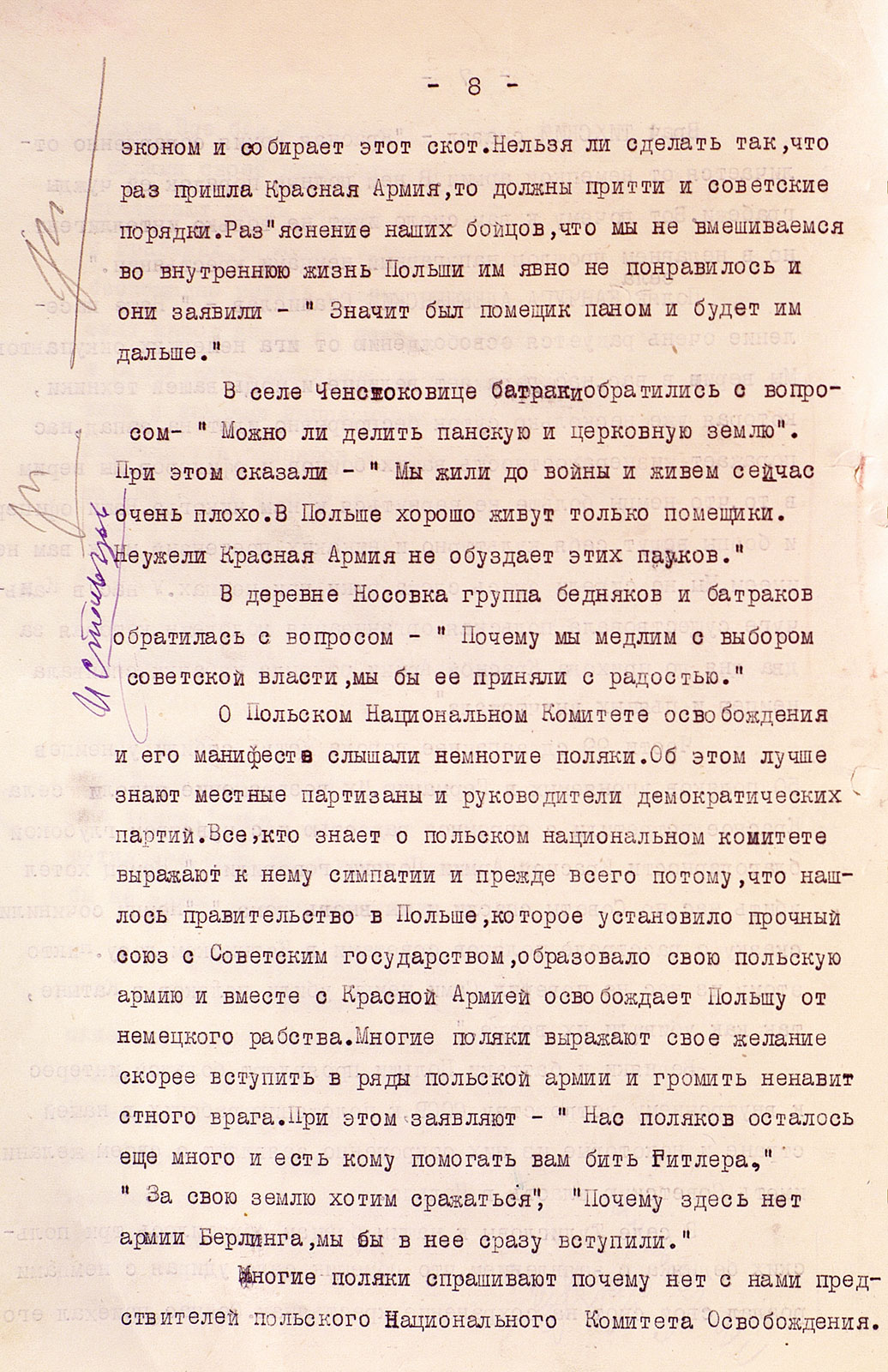
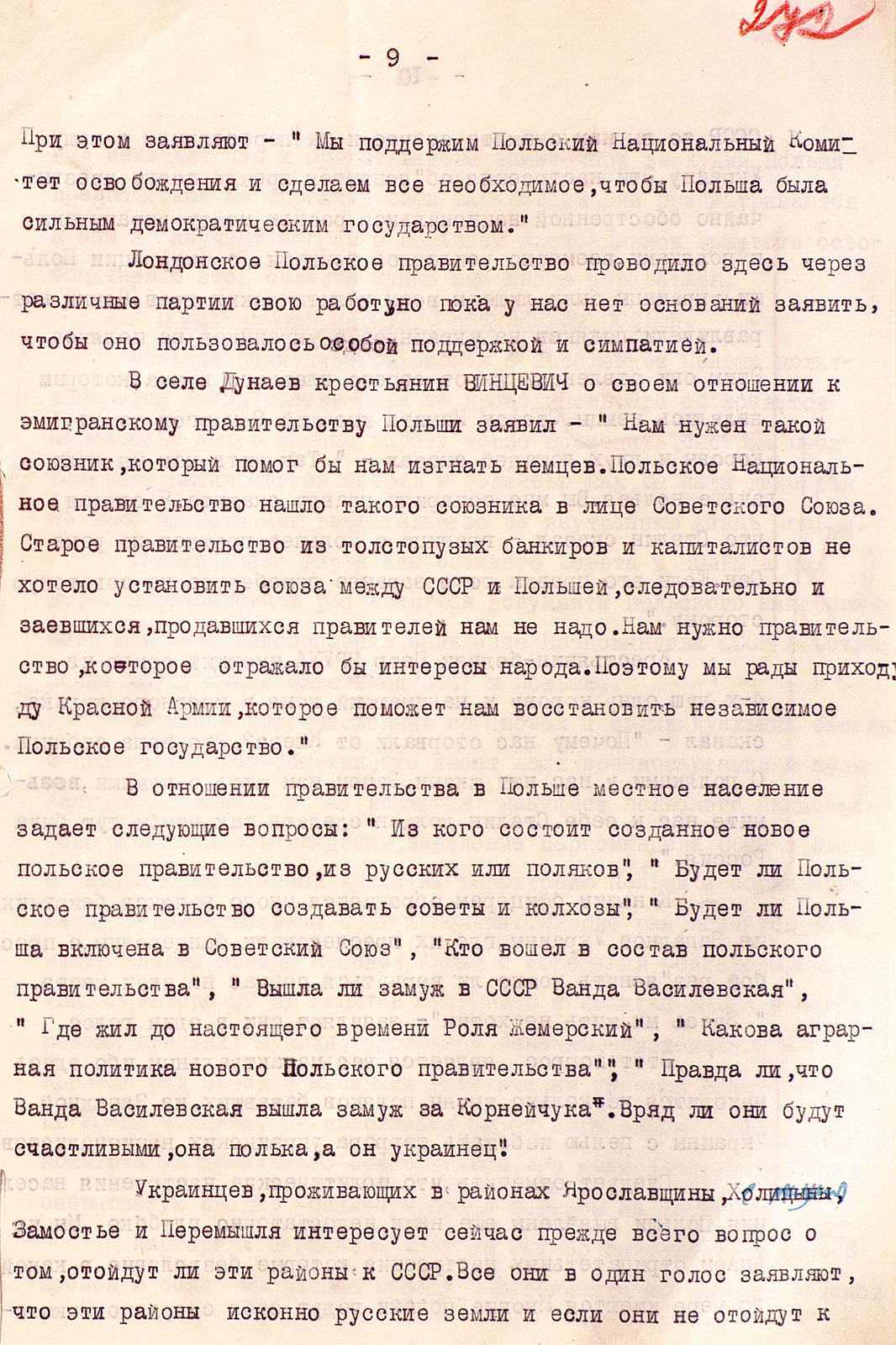
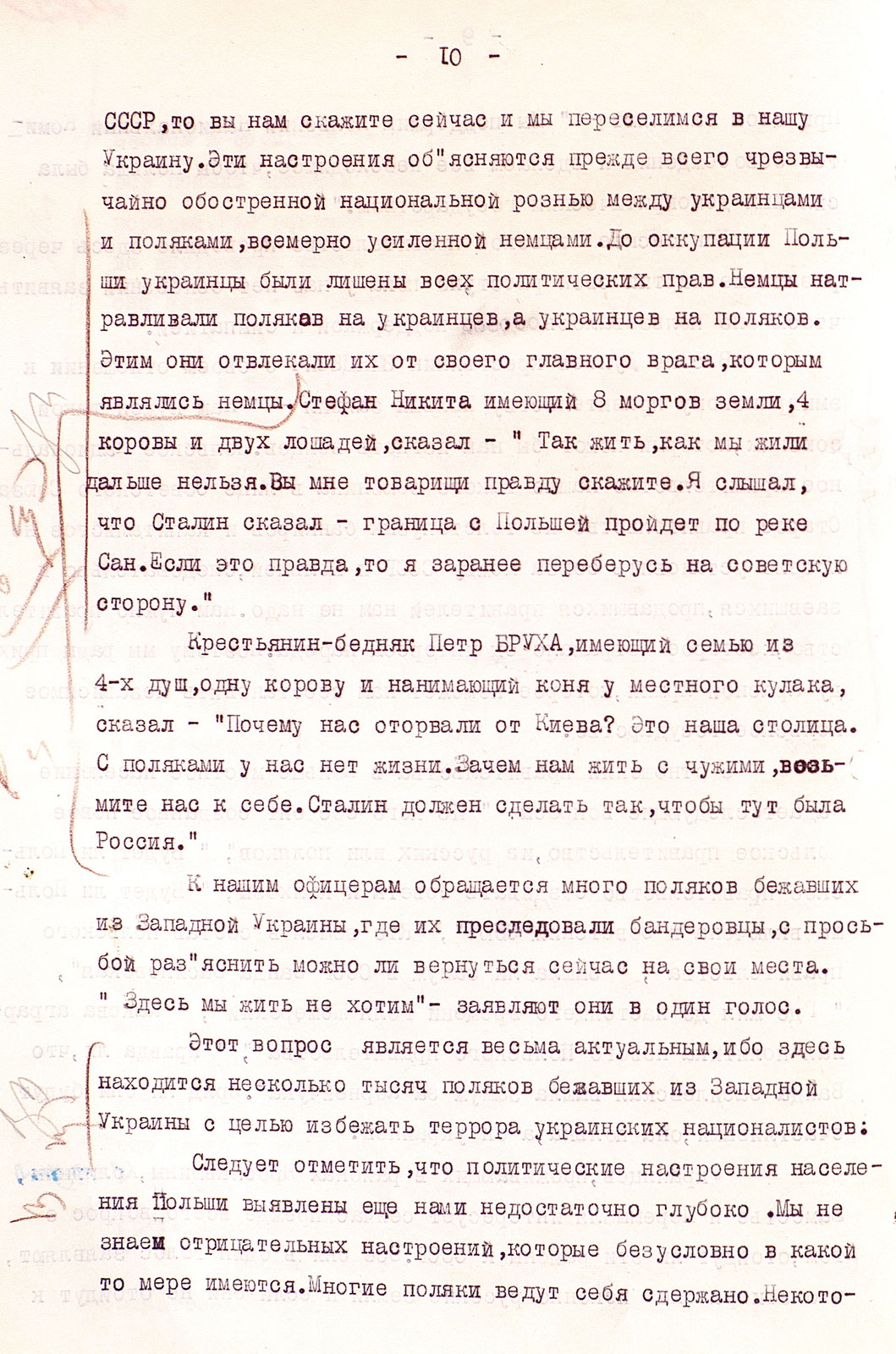
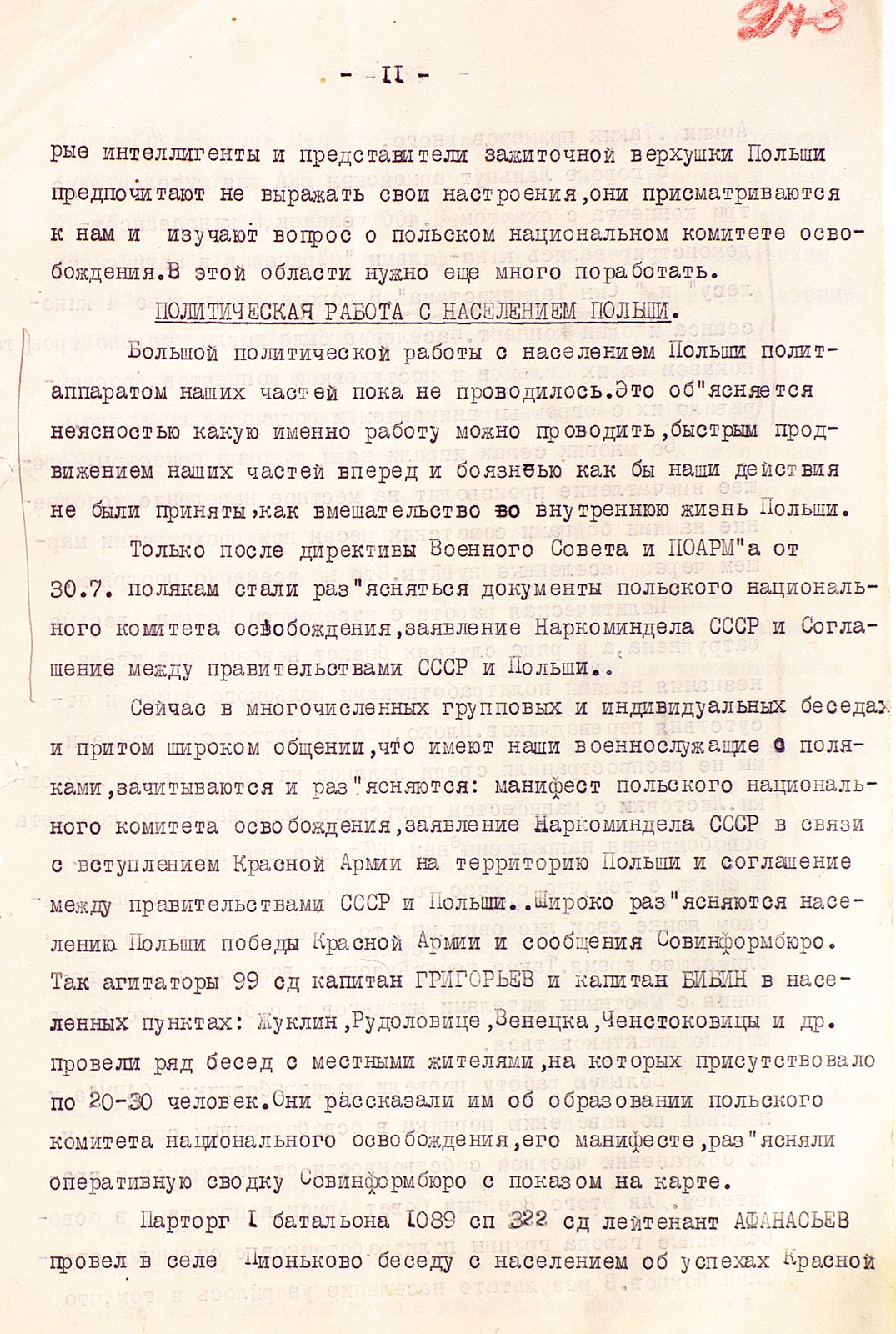
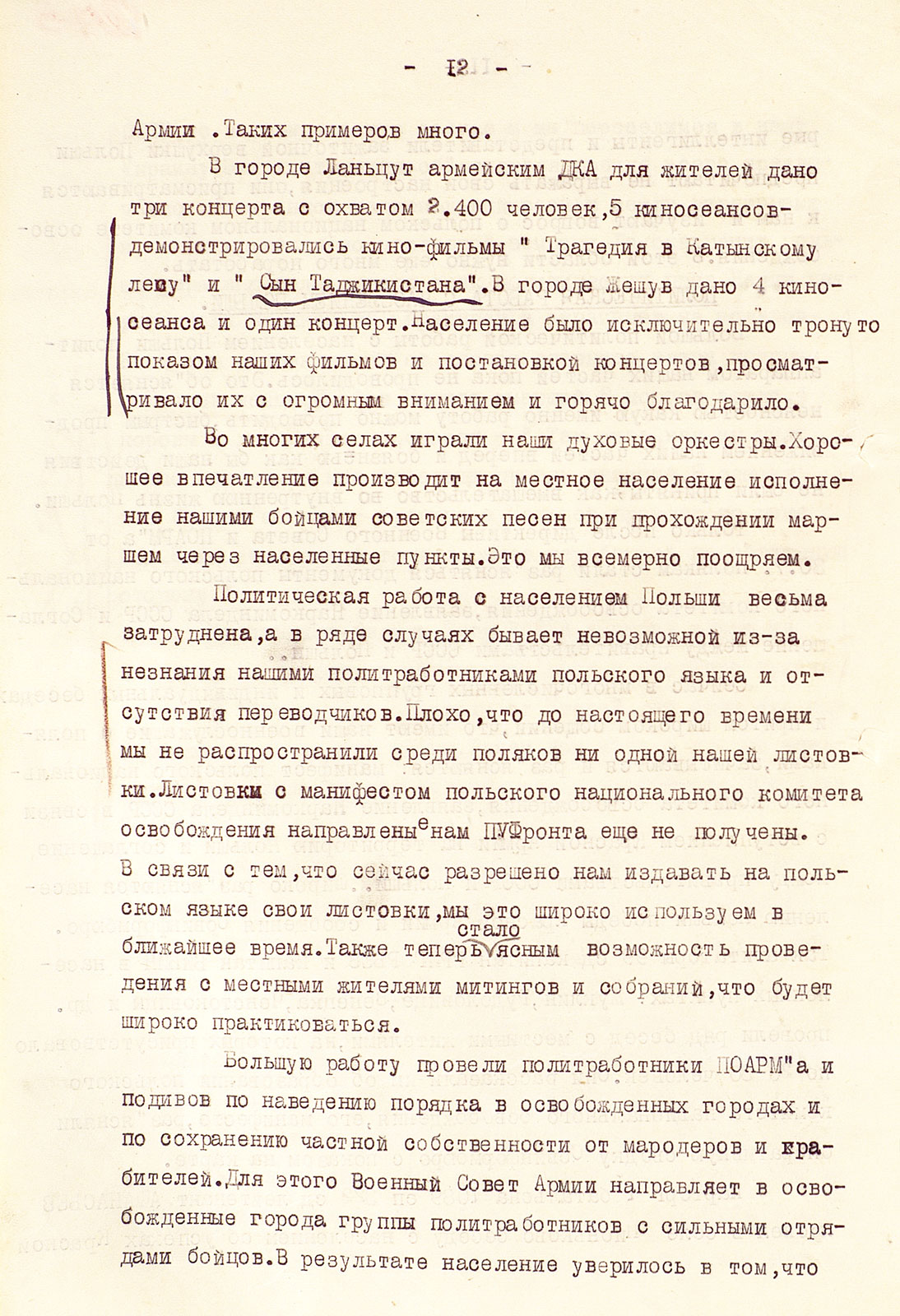
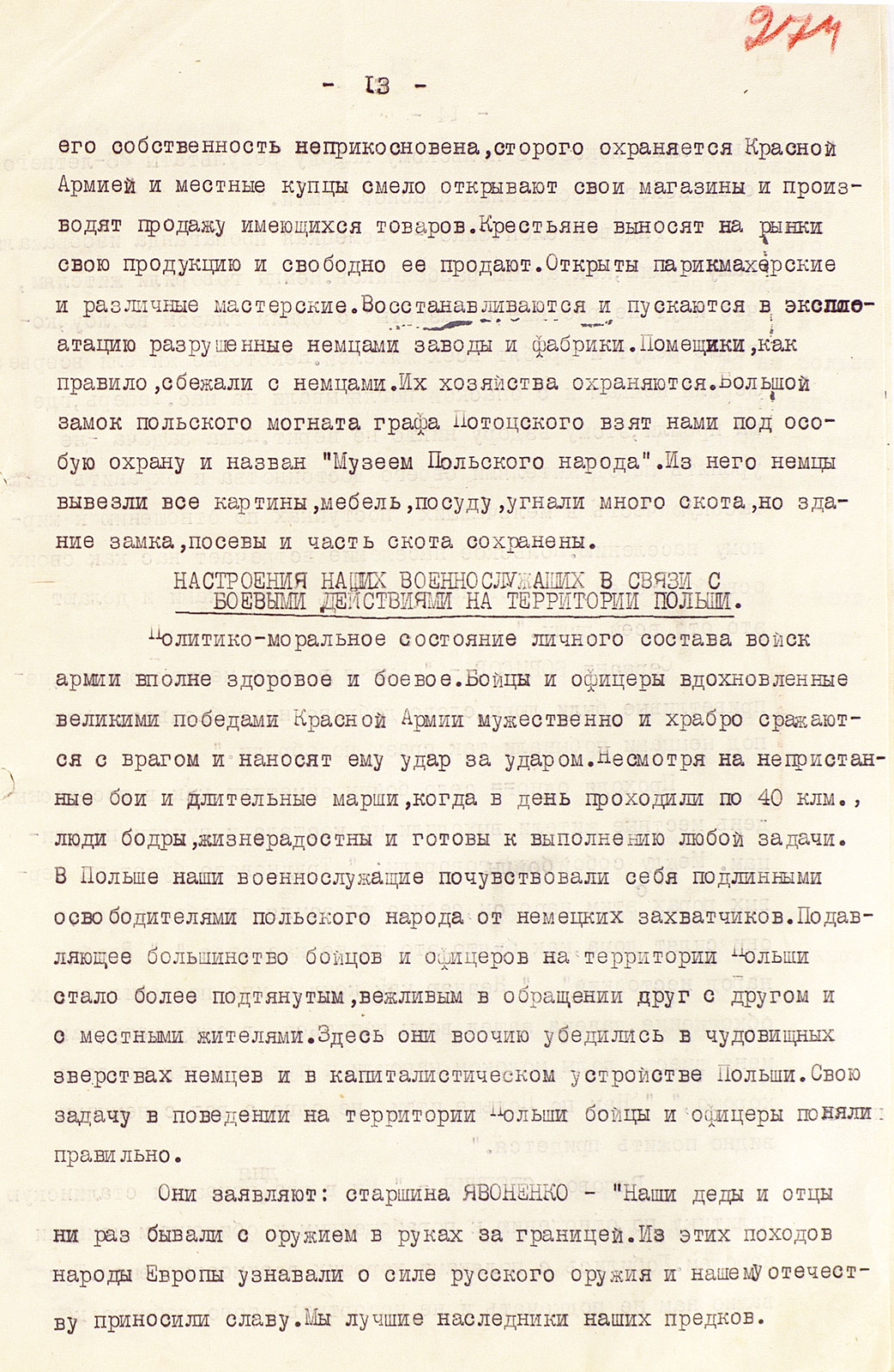
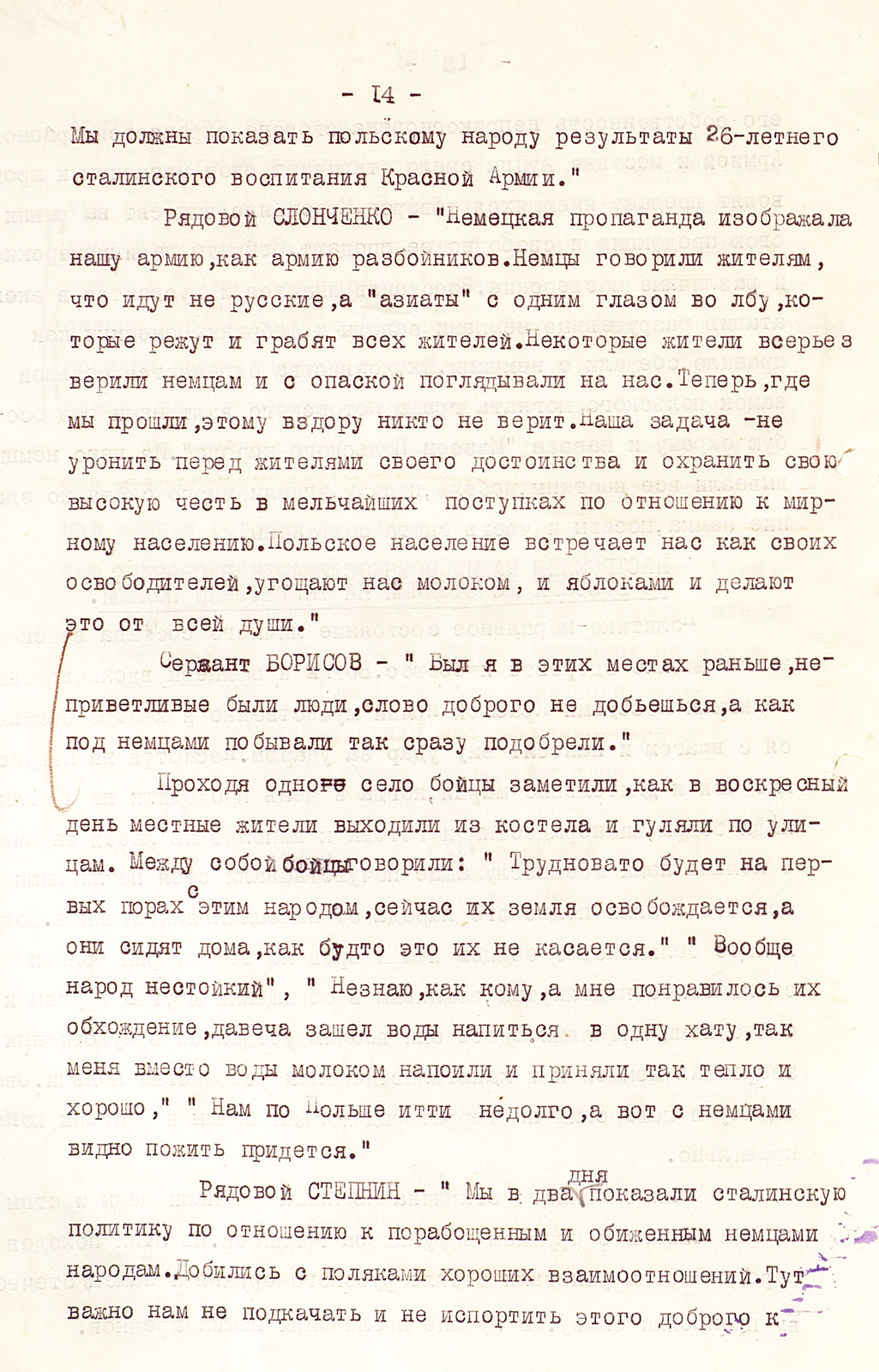
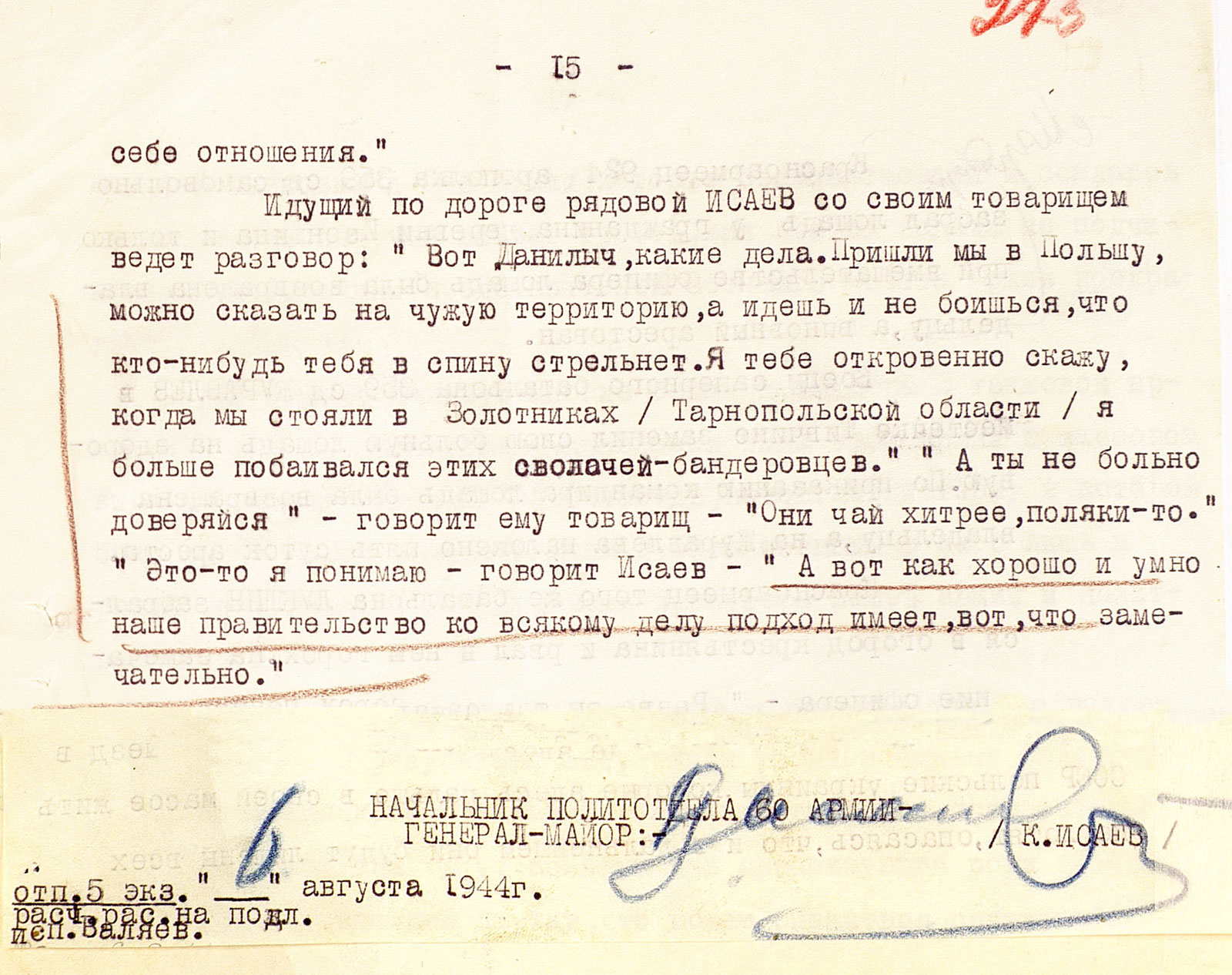
Memorandum from chief of the Political Department of the 1st Ukrainian Front on the attitude of the Catholic clergy to the Red Army, 24 August 1944
Memorandum from chief of the Political Department of the 1st Ukrainian Front Military Council the 1st Ukrainian Front on the attitude of the Catholic clergy to the Red Army and the Polish Committee of National Liberation on August 24, 1944, the Initial wariness of the Polish Catholic clergy in the matter of Church services and functioning of the churches quickly gave way to full trust. Priests openly expressed their sympathy for the Red Army, called the faithful to assist in the fight against the Nazis: «...she has a noble purpose – the liberation of the Polish people from the German invaders».
In the Polish city of Szczecin during the funeral of the deceased Soviet pilot captain Nikonov, a local priest appealed to the Soviet command with a request to take the grave under their supervision and to build due to the arrival of the marble monument. In Suchedniow funeral 2 Soviet pilots were organised with the participation of the local population, which alone made the tomb, monument and laid a large number of wreaths and flowers at the grave during the memorial service.
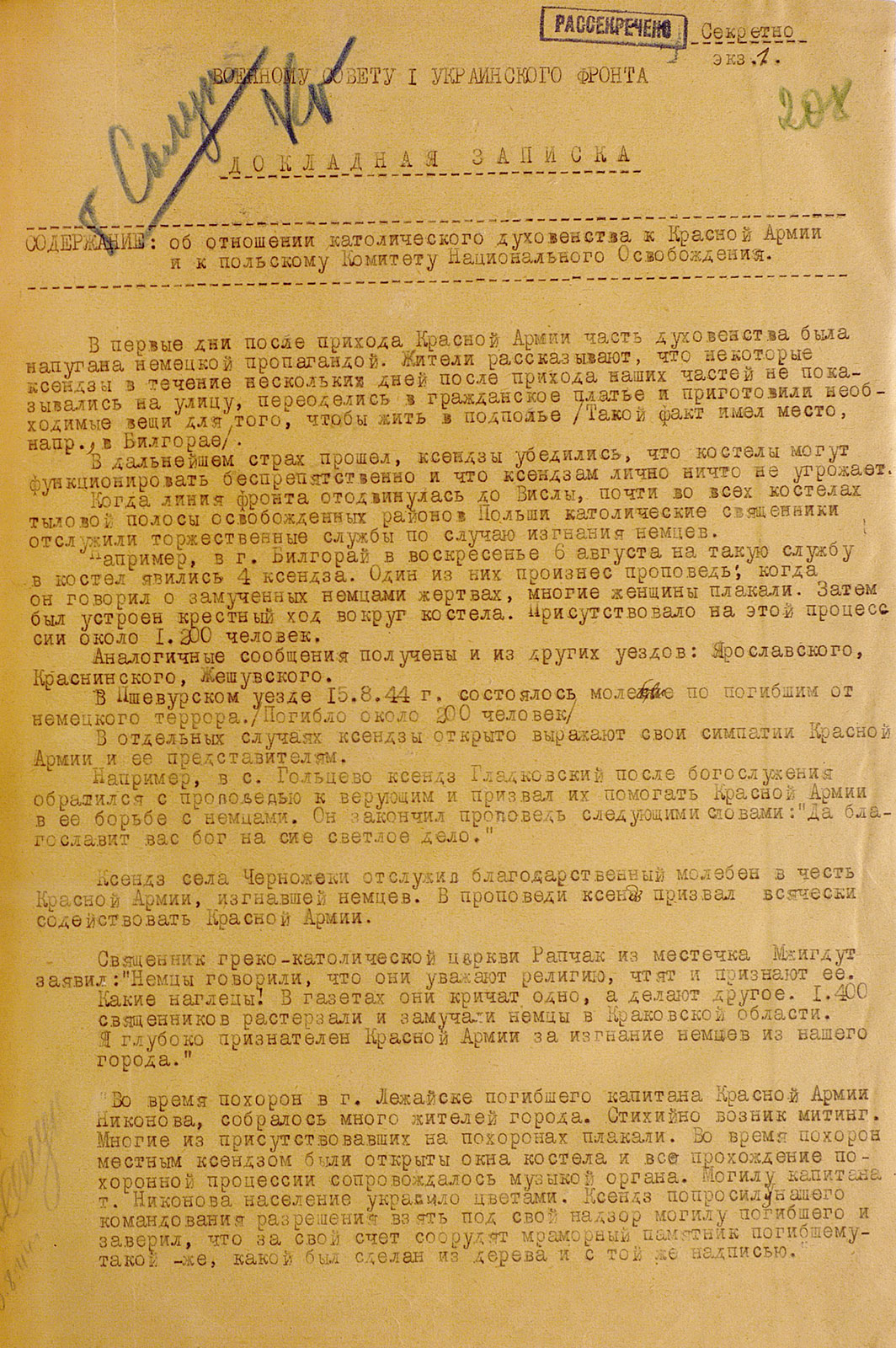
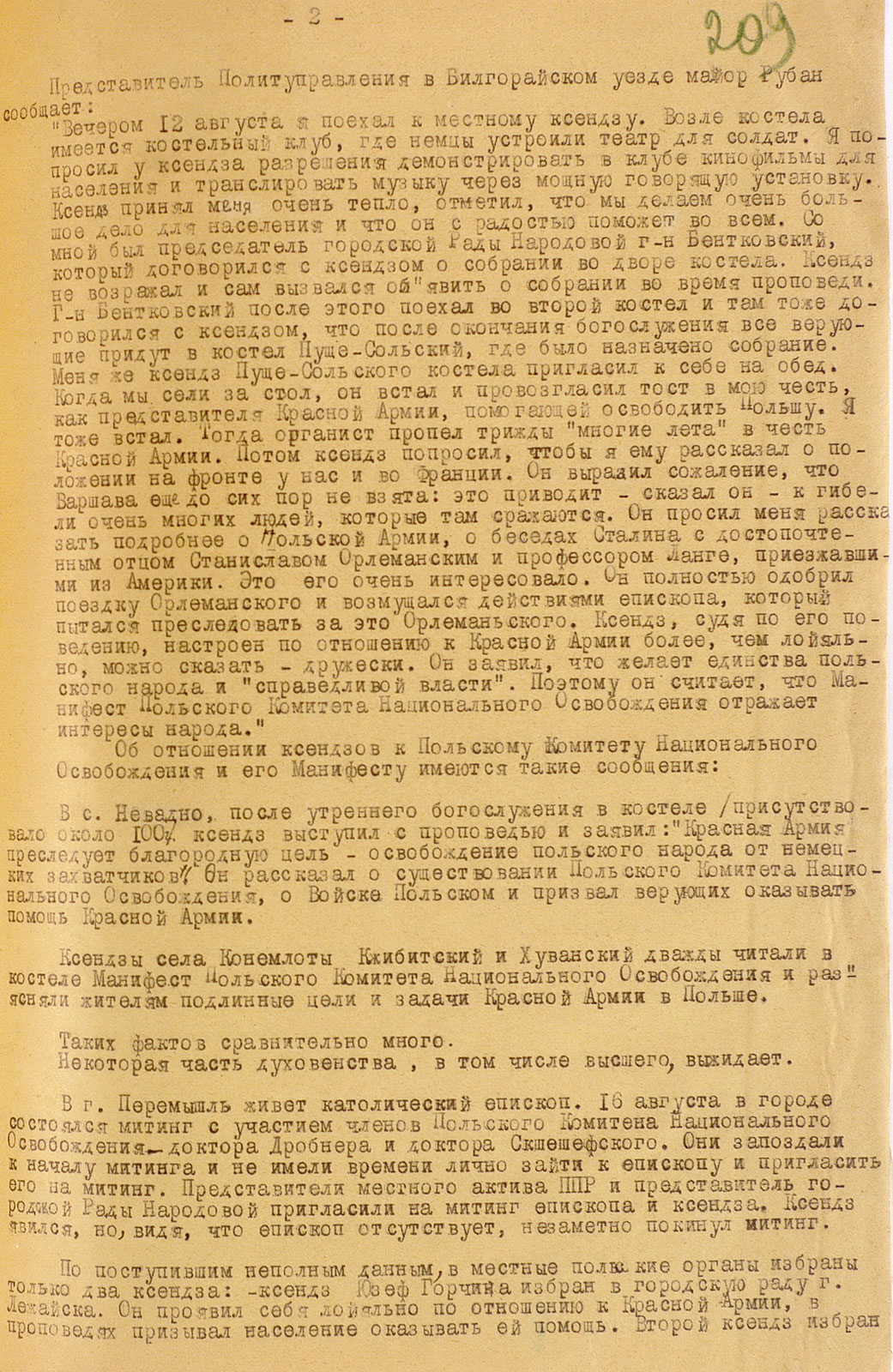
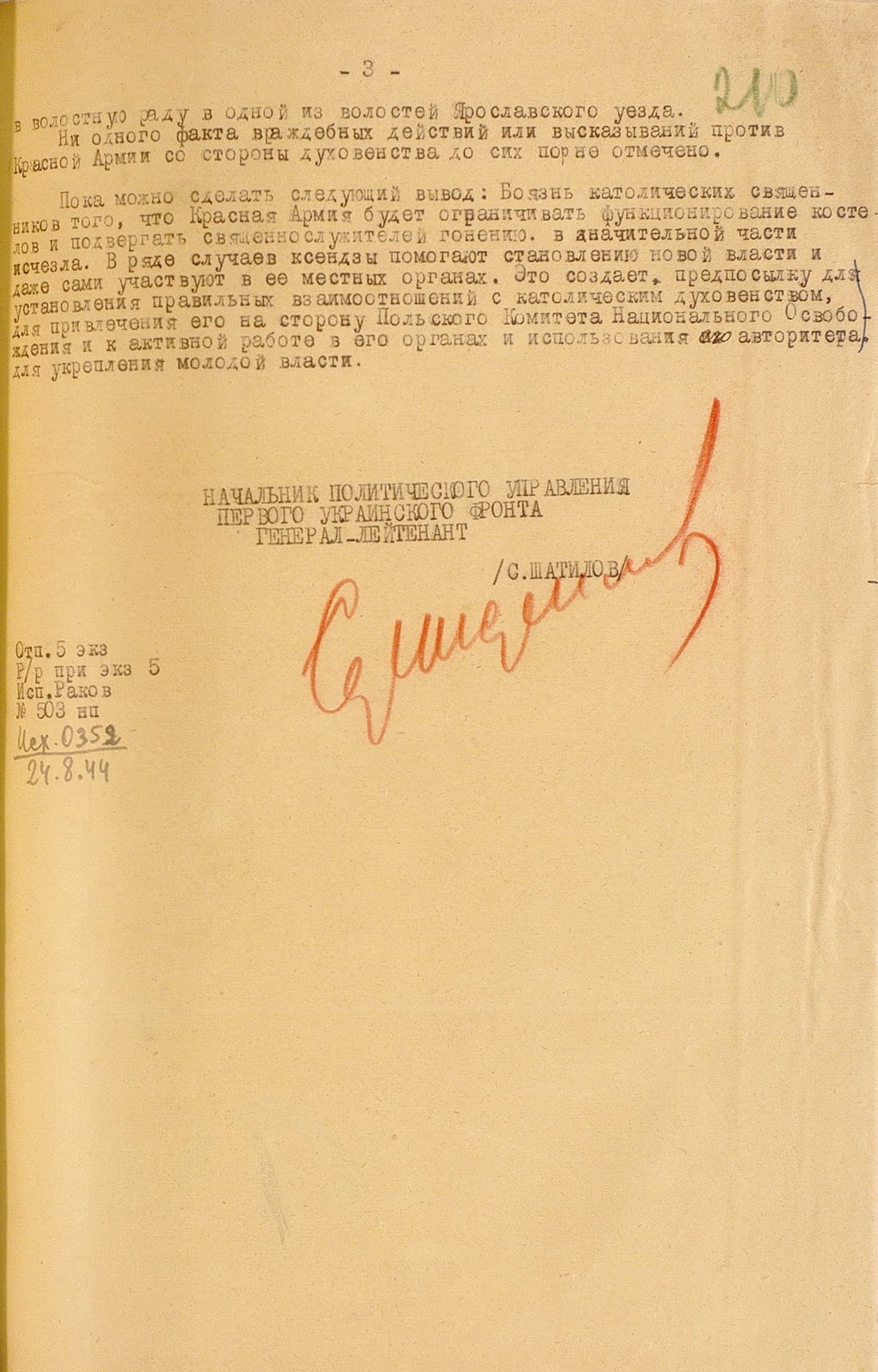
The report of the Deputy chief of Operational Department of the headquarters of the 1st Byelorussian Front about the fighting in Warsaw, 22 September 1944
The report of the Deputy chief of Operational Department of the headquarters of the 1st Belorussian Front on 22 September 1944 on the fighting in Warsaw (during the uprising) and our assistance.
«The bulk of the population of Warsaw, hostile to the Germans and fully ready to help the Red Army and the Polish Army. Proof of this is the fact that the population in the area of actions of divisions of the Polish Army in Warsaw, did not want to stay more in the city and requests the command of the Polish Army on the transfer of them to the Eastern Bank of the river Vistula».
«On the night of 22.9.44 in areas occupied by the insurgents in Warsaw, our aircraft dropped: anti-tank rifles - 82, automatic - 15 rounds of PTR - 4200, cartridges, TT - 81.000 PCs., cartridges of rifle – pieces 68420, ammunition Parabellum – 3360 PCs., min. 50 mm – 6082 PCs., garnet German – 390 PCs., crackers – 10765 kg, concentrates – 6606 kg., tobacco - 400 kg., biscuits - 332 kg, canned meat - 2266 kg., sugar – 725 kg, salt – 200 kg. coffee - 105 kg, different food - 560 kg».
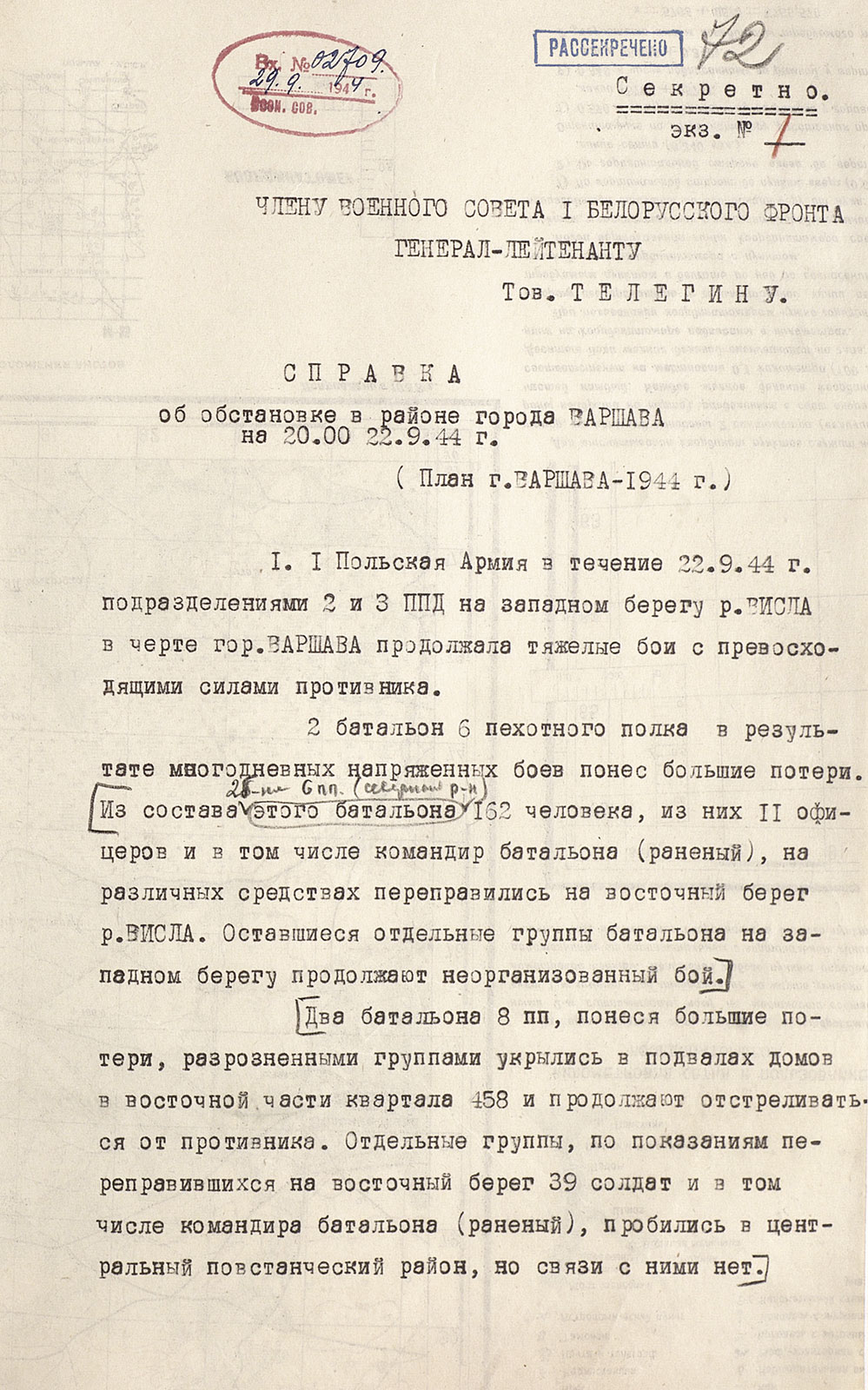
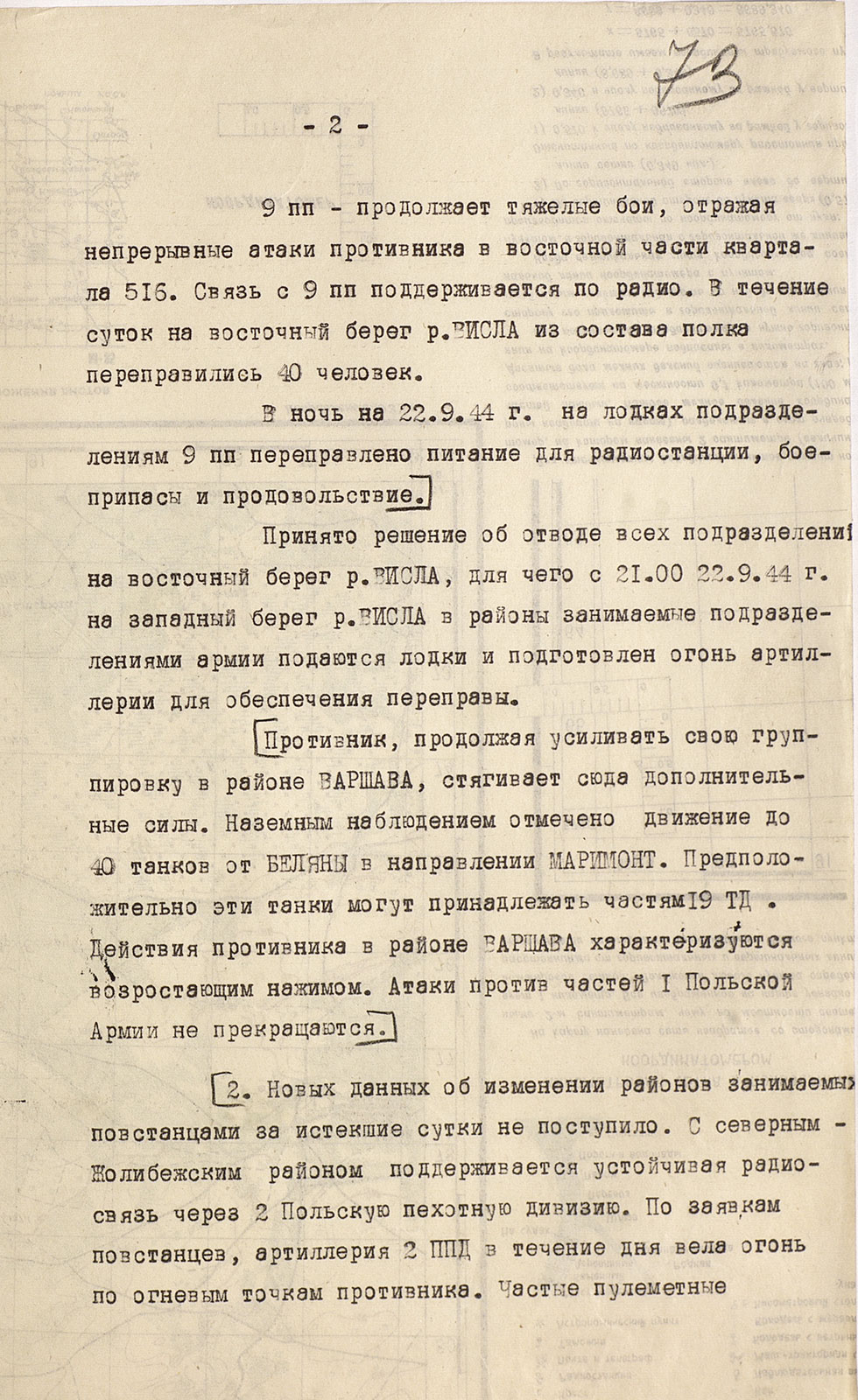
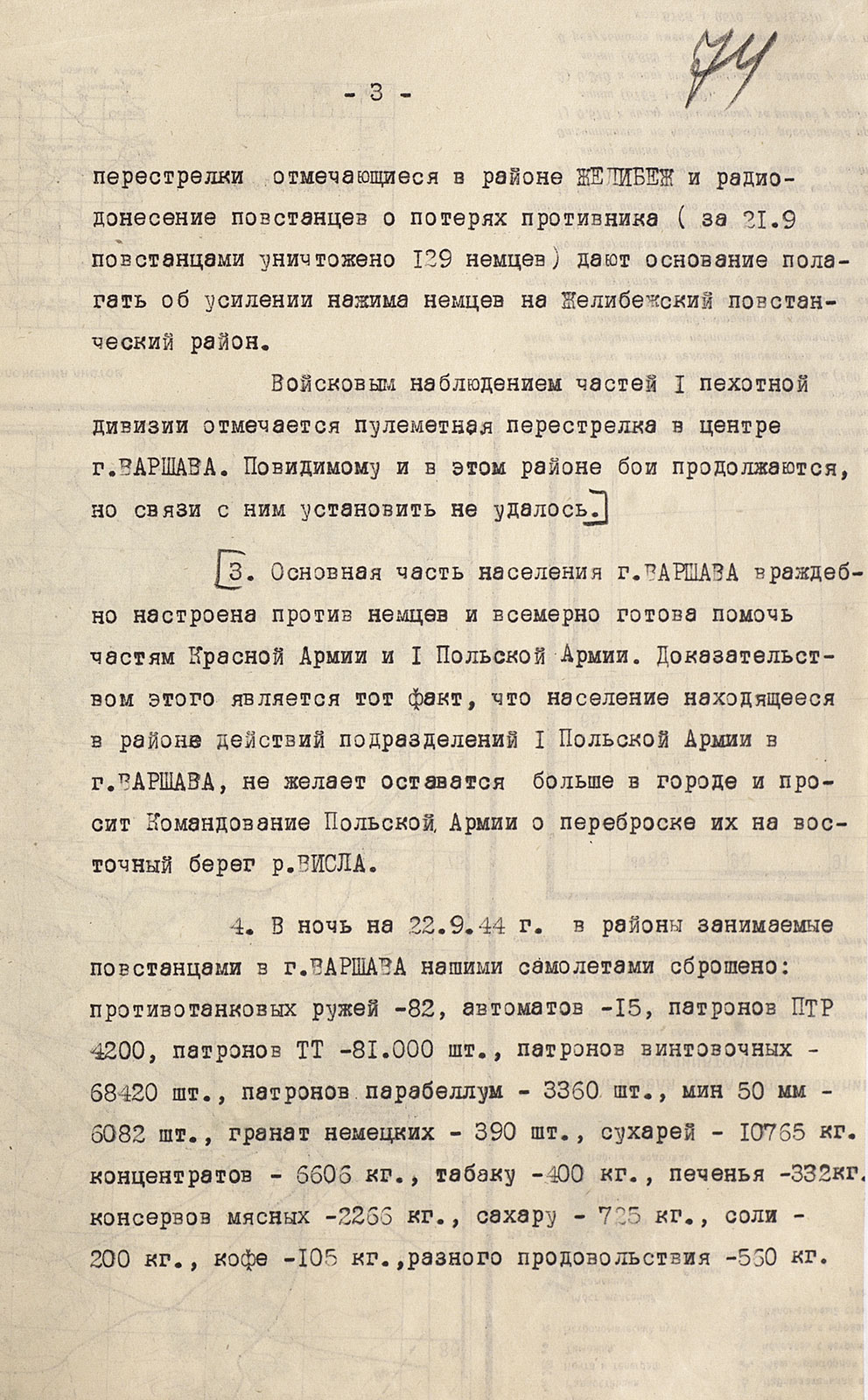
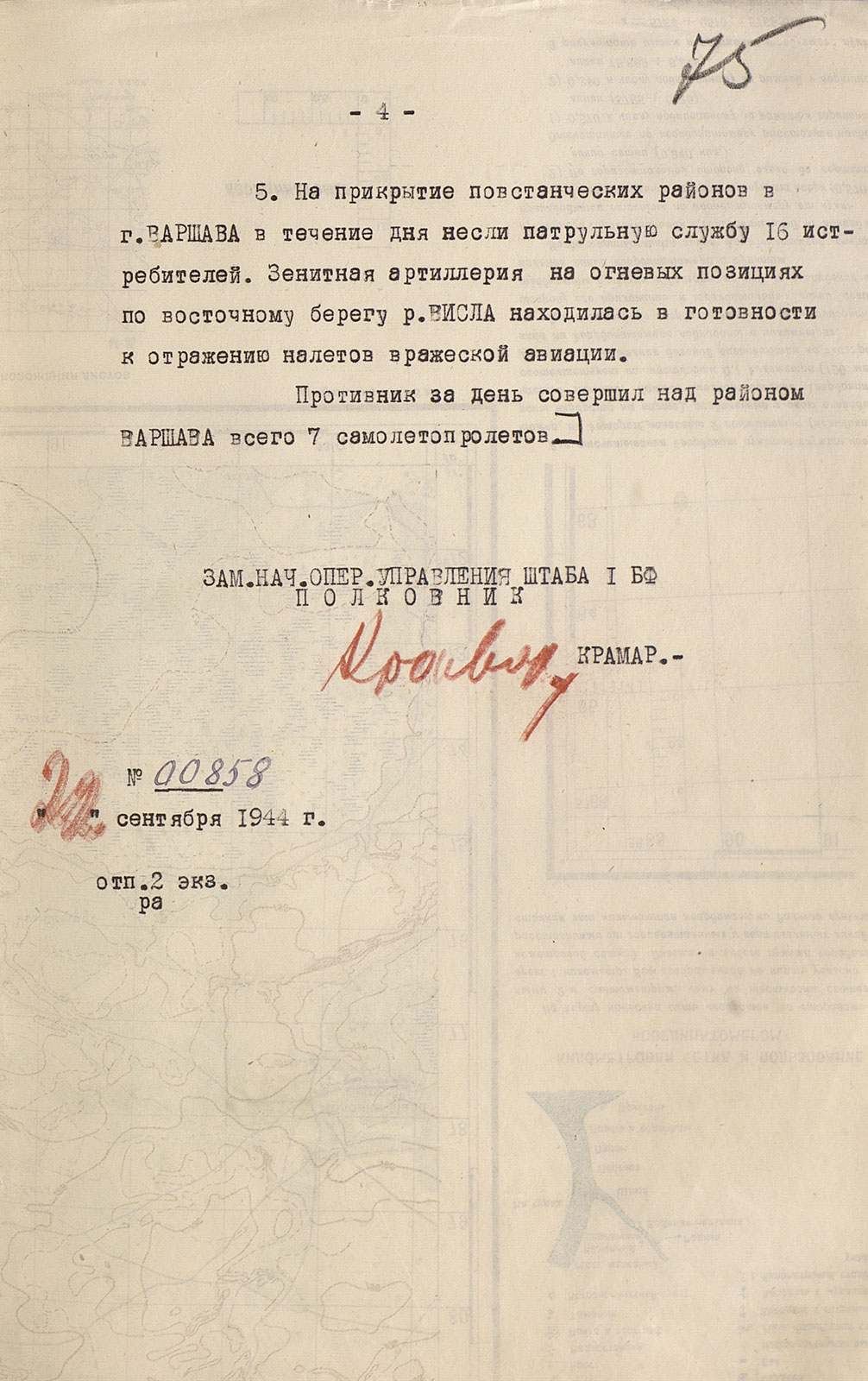
From the journal of hostilities 1260 380 rifle regiment infantry division, 2 November 1944
A clipping from the newspaper «For the Motherland» from 02.11.1944, under the General title «We will avenge the martyrs of Lomza».
In several publications explains details about the discovered near the village and mass grave of civilians among the Russian, poles and Jews.
The data of the forensic medical examination that the holes and damage in the skulls excavated remains of talking about the torture and beatings that preceded the shooting.
«...Three other graves corpses were discovered. However, in the soft ground found the remains. ...Judging by the amount of graves they contained up to two thousand bodies. ...Near the graves is a layer of compacted rubble with a thickness of 25-35 cm.
It is found obogreva human bones. This conclusively proves that the Germans, fearing retribution for their crimes, removed the bodies from the graves and burned them.»
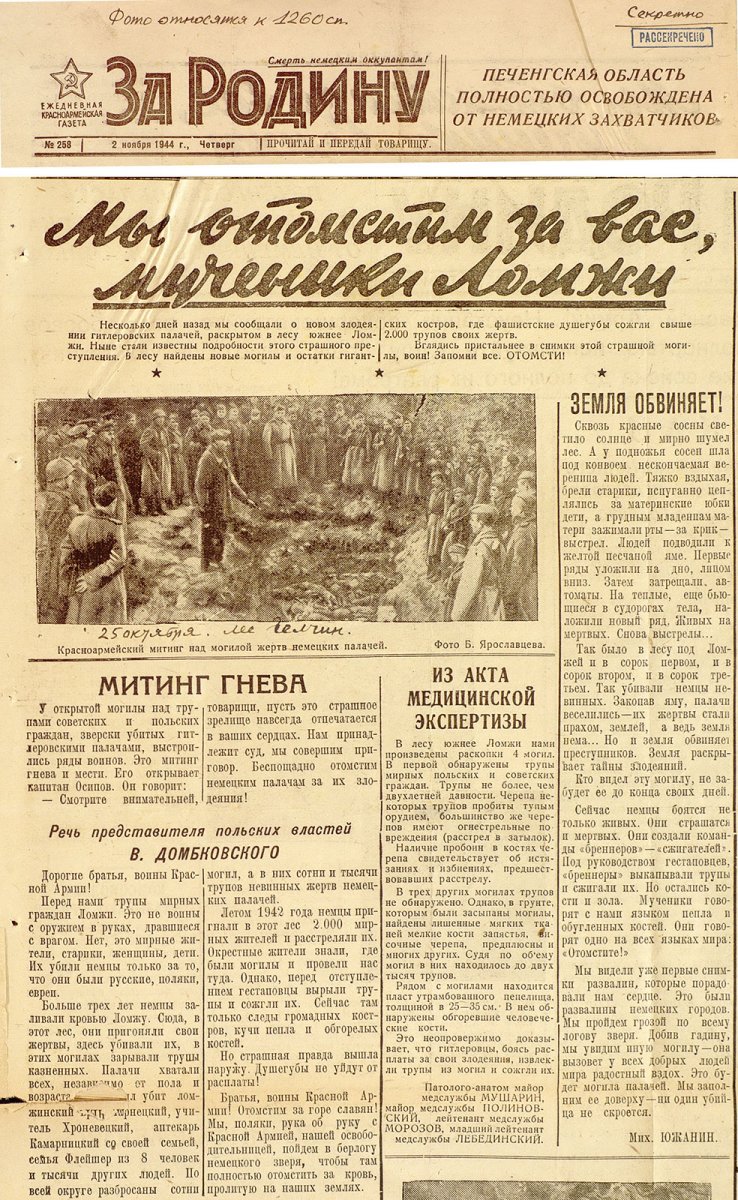
Political report of the political Department of the 1st Ukrainian Front (from the letters of Soviet soldiers), 18 December 18 1944
Political report of the political Department of the 1st Ukrainian Front. Are excerpts from the letters of Soviet soldiers describe difficult living conditions of the poles after the German occupation. The ratio of soldiers to population is characterized as compassionate, write about assistance that is available to young children, reported friendly relations with the poles. Letters filled with the human relationship to the disaster, which befell the poles.
«My dear friend!.. Such poverty which prevails among the poles, I never saw the peasants eating potatoes that are boiled in their skins to save…»
«The German invaders are destroyed Polish villages are only now beginning to recover. The attitude of the poles most friendly».
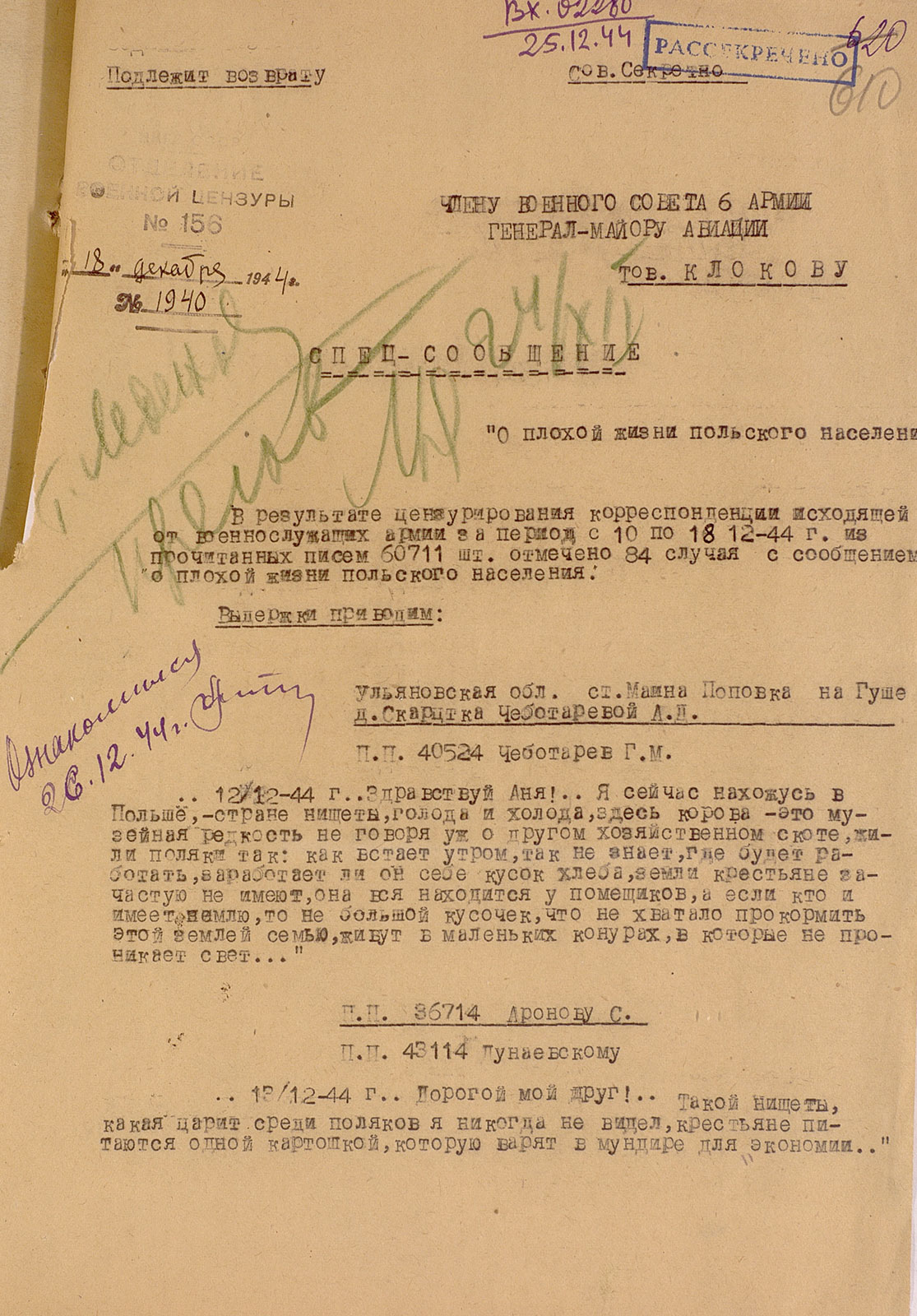
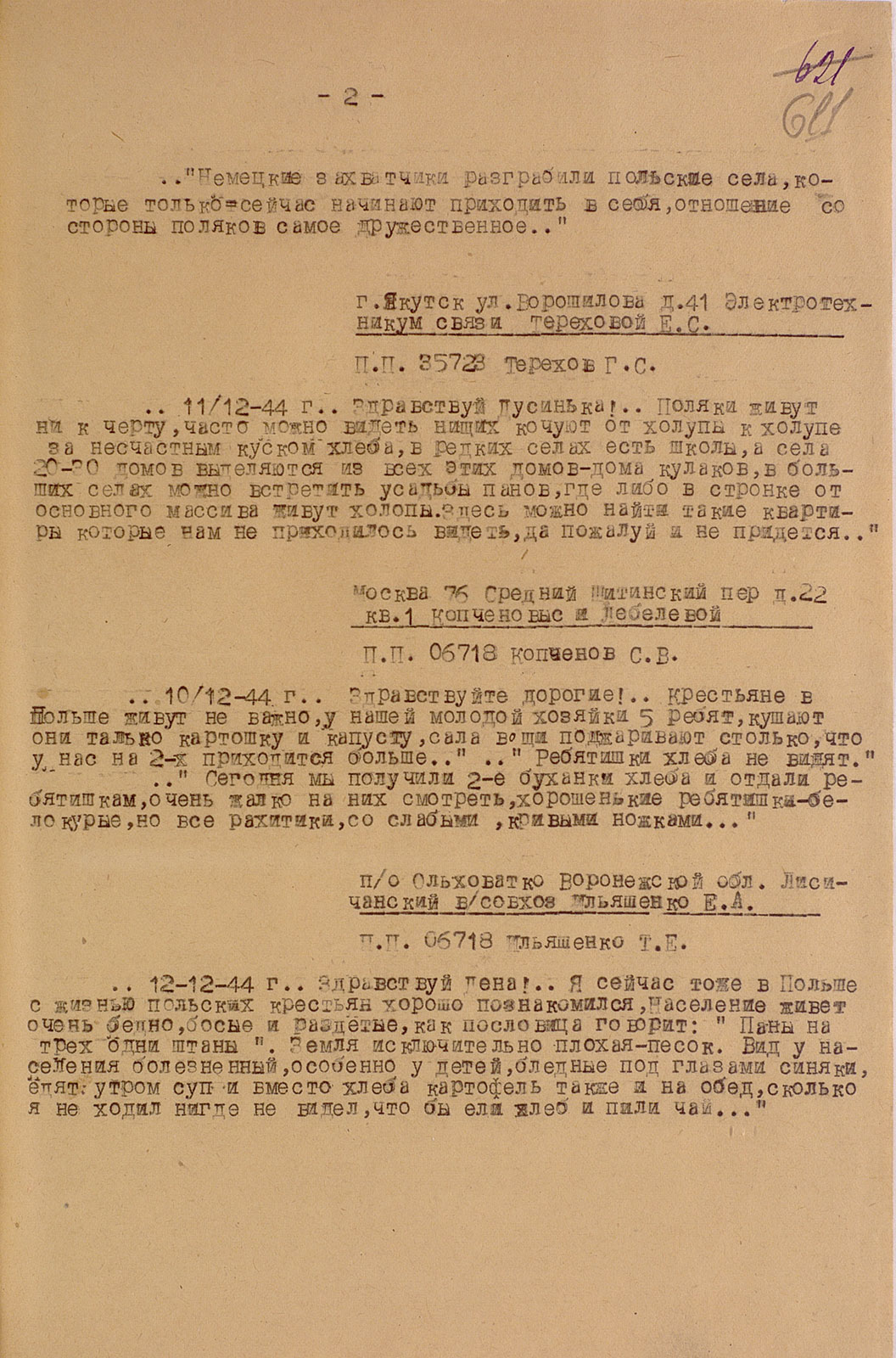
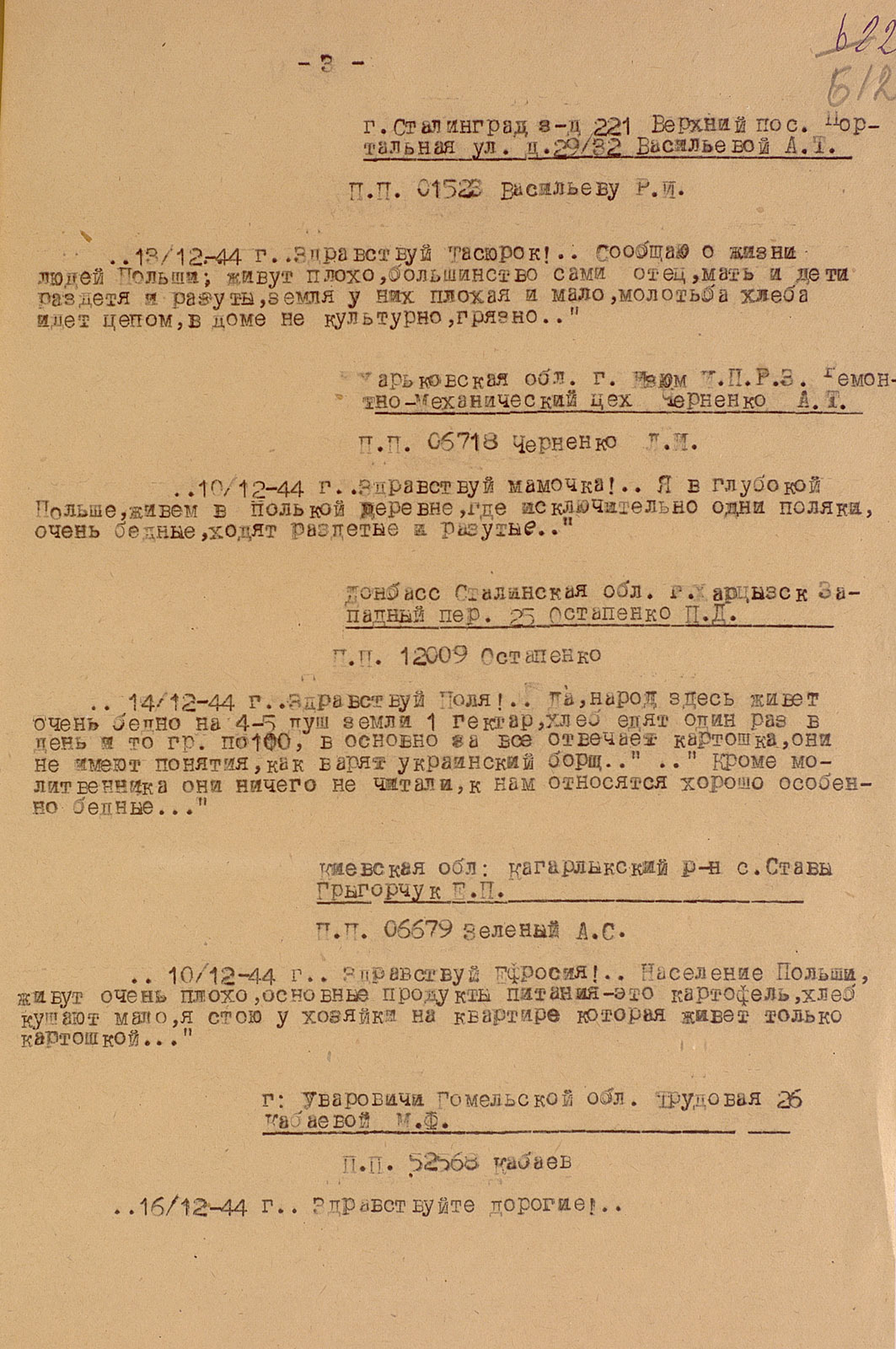
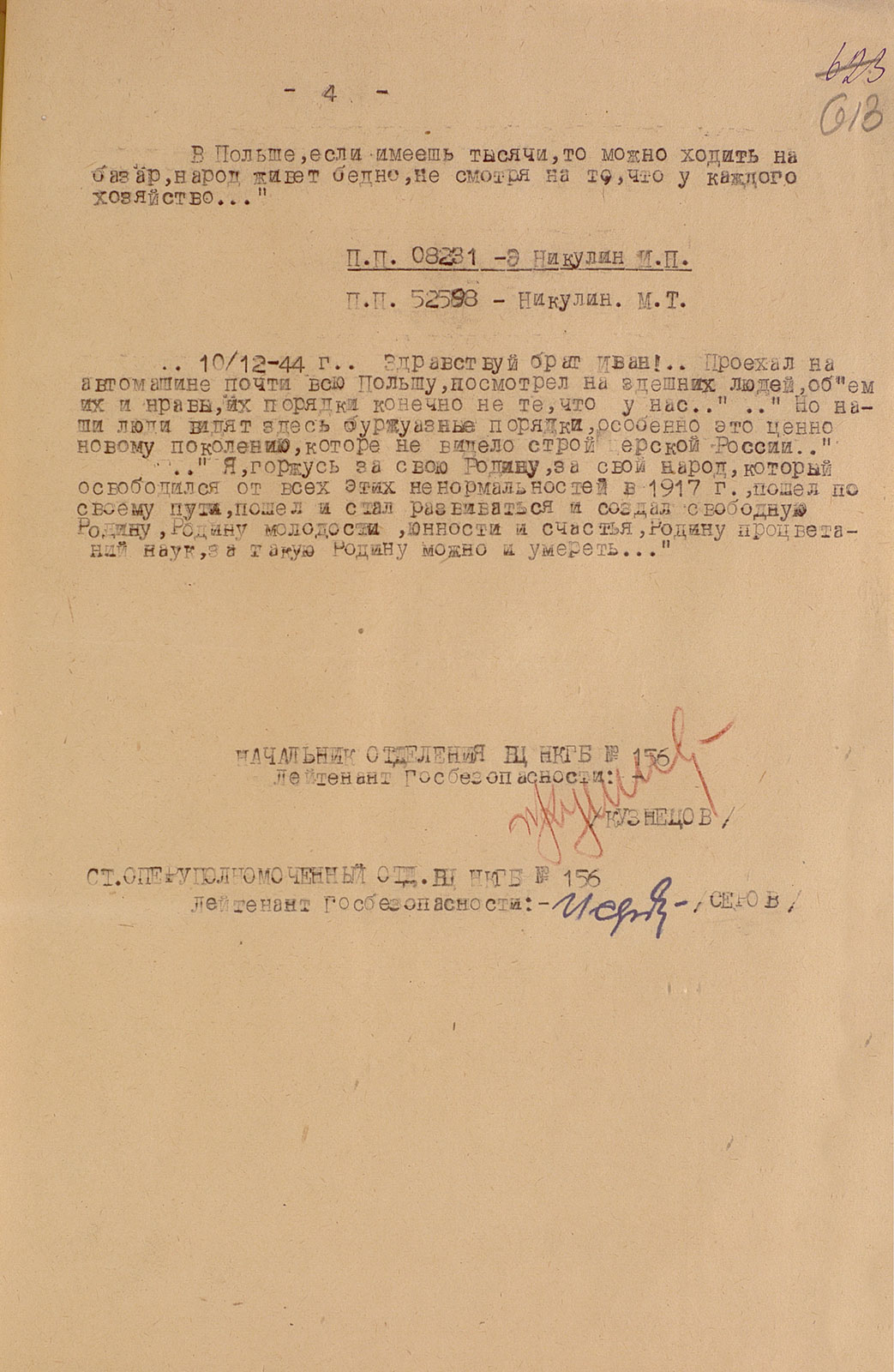
Order the troops of the 2nd guards tank army, January 1945
Order the troops of the 2nd guards tank army on a strict ban on the movement of tanks and tractors on paved roads. Dated January 1945
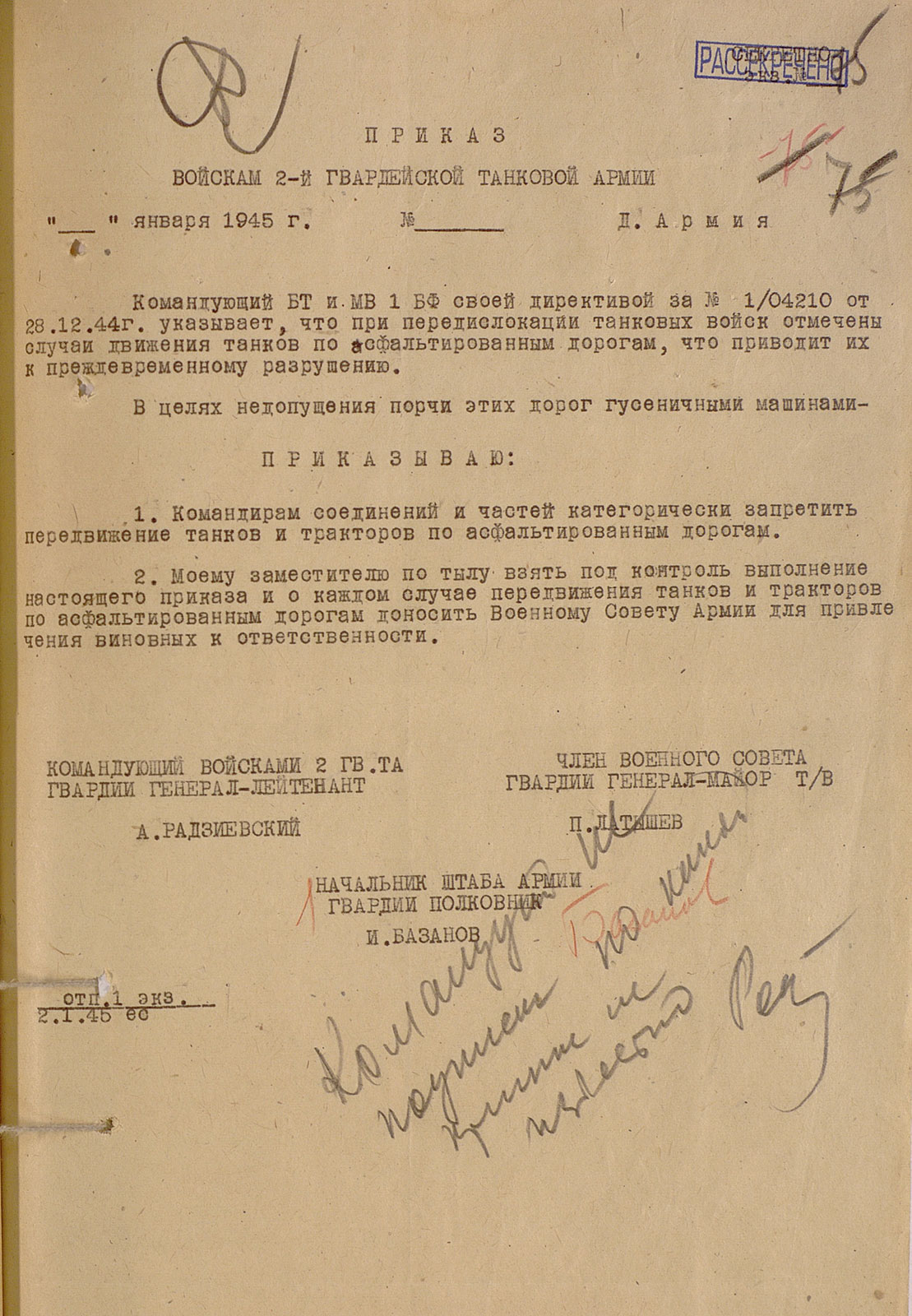
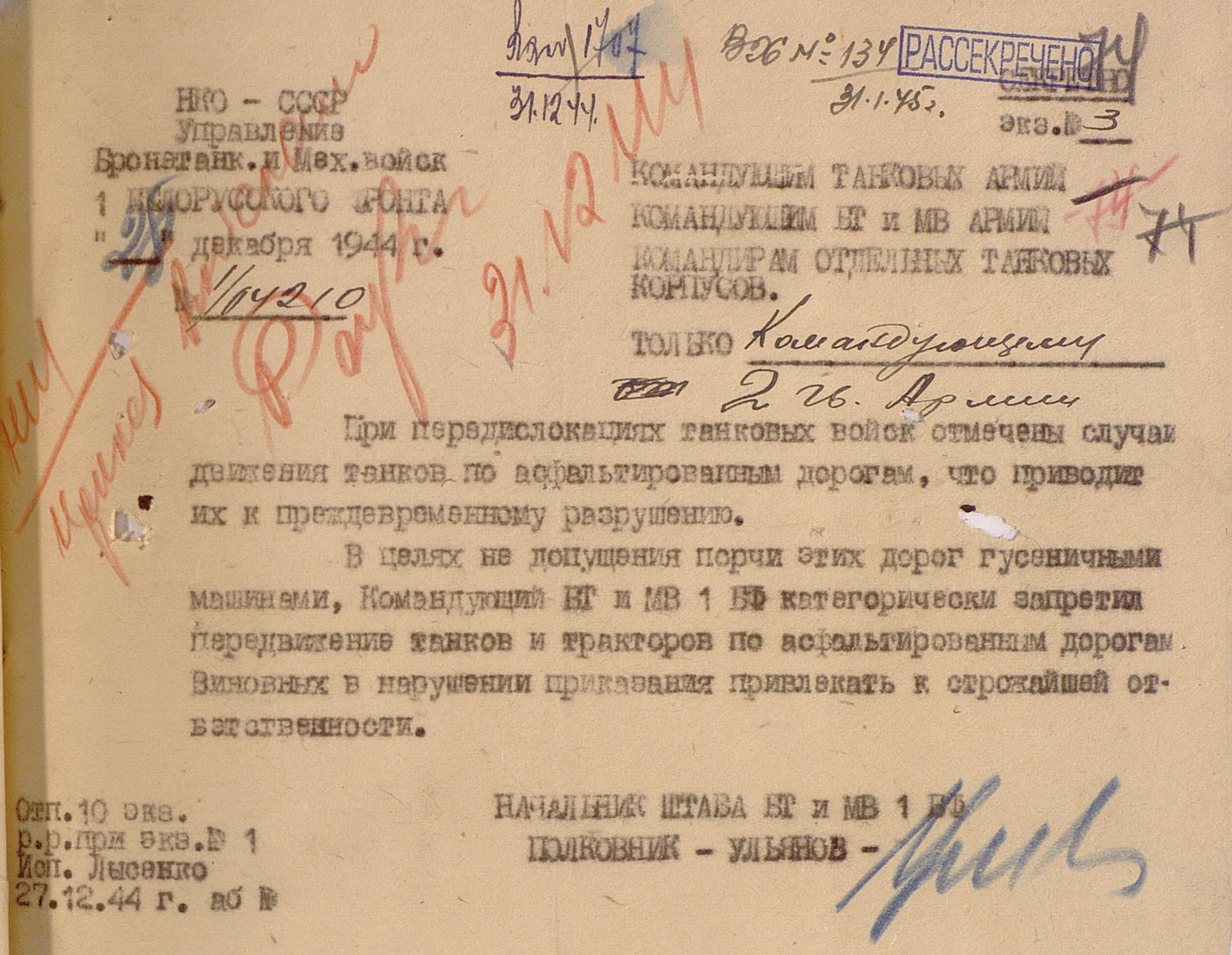
From the historical form 1373 infantry regiment, 4 January and 16 January 1945
In the events of 16 January 1945, noted the warm welcome of the local regiment of the Polish population, a mass expression of joy and gratitude.
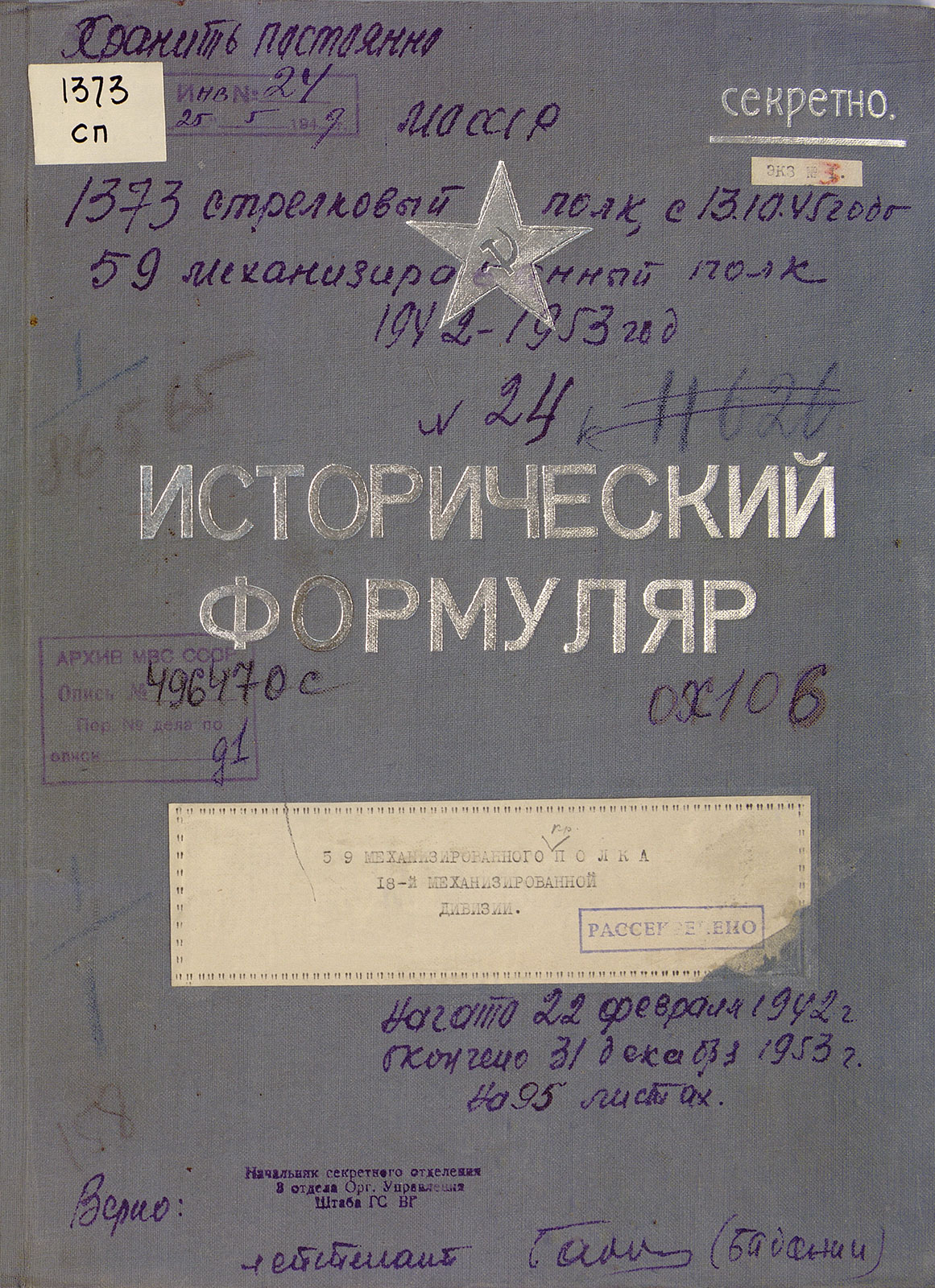
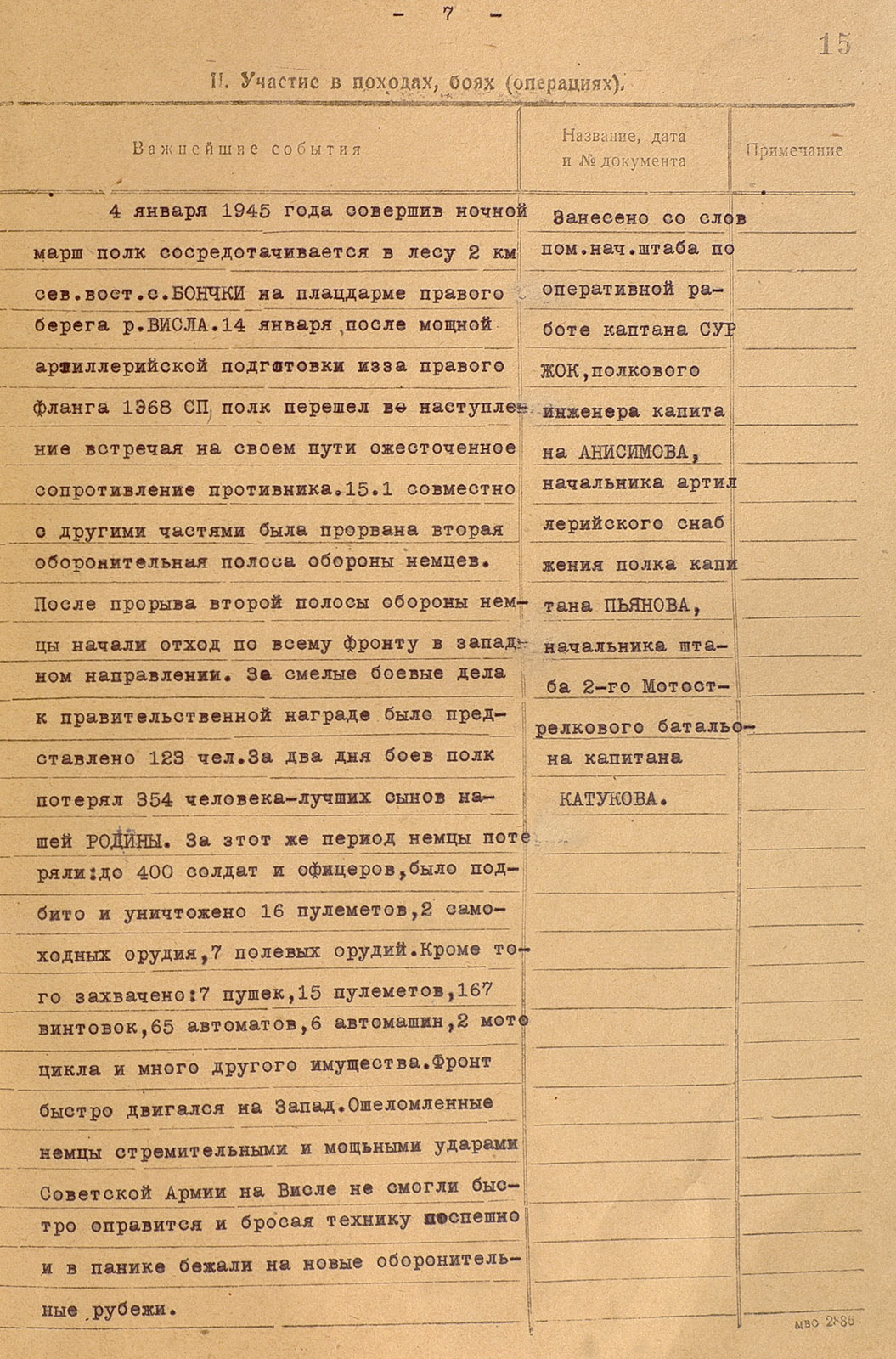
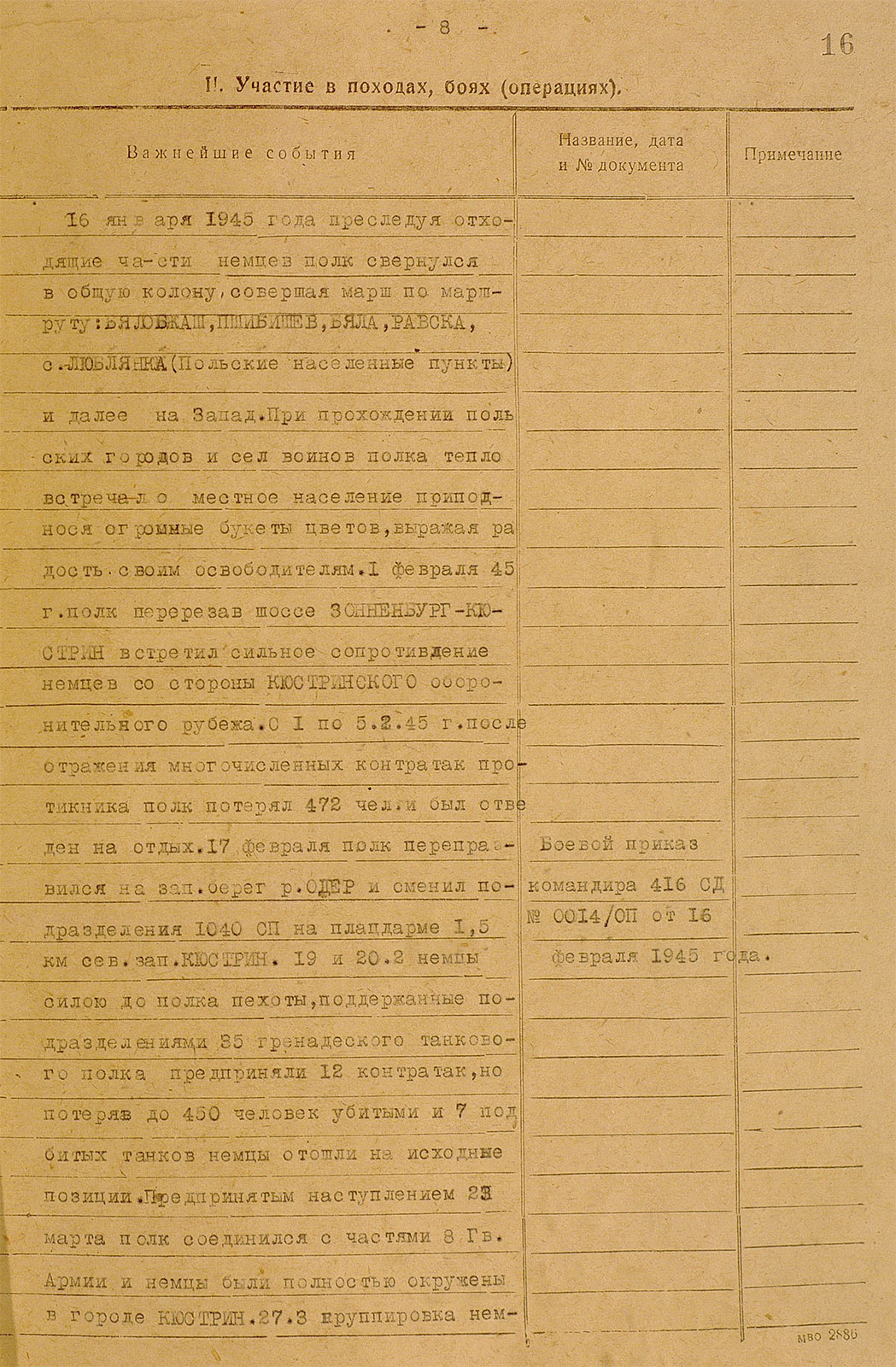
Political report of the political Department of 1st Byelorussian front about the situation in the liberated city of Radom, 18 January 1945
Political report of the political Department of 1st Byelorussian front to the chief about the situation in the liberated the Polish city of Radom and Warsaw from January 18, 1945
The report compares the attitude of the Soviet government and the Provisional Government of Poland in the cities and villages of the Lublin and Radom.
«On Lublin the local population openly and violently expressed their enthusiasm and their sympathy to the Soviet Union and the Red Army.
In all the cities and villages spontaneously rallies occurred, the population hung out national flags and banners with slogans welcoming the Red Army.
None of this in the Radom is not observed. On the contrary, in the relations of the population to us is seen restraint».
The reason for this in a report called propaganda and intelligence work with the local population «akovtsev» (Armia Krajowa) and the Polish government in London.
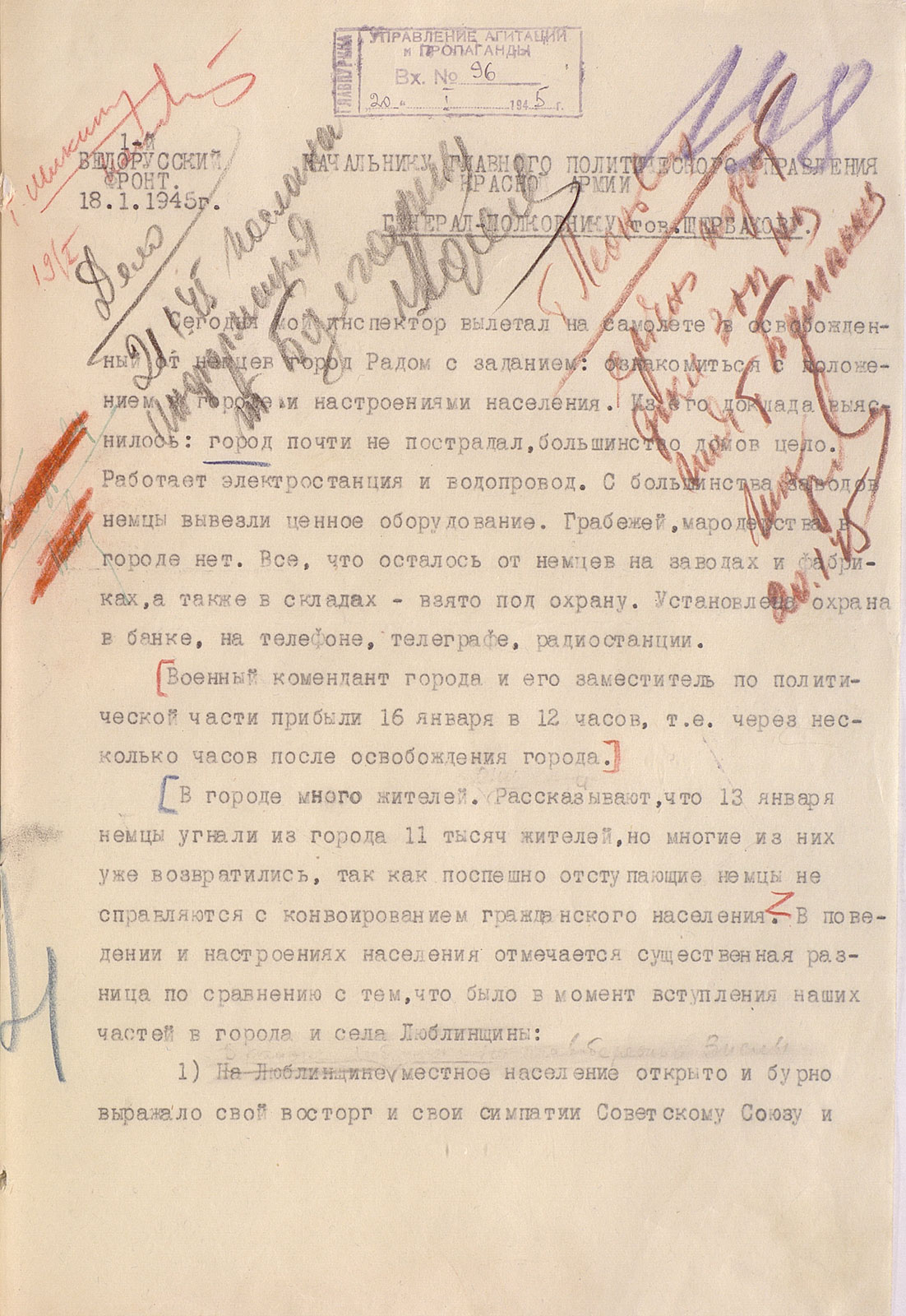
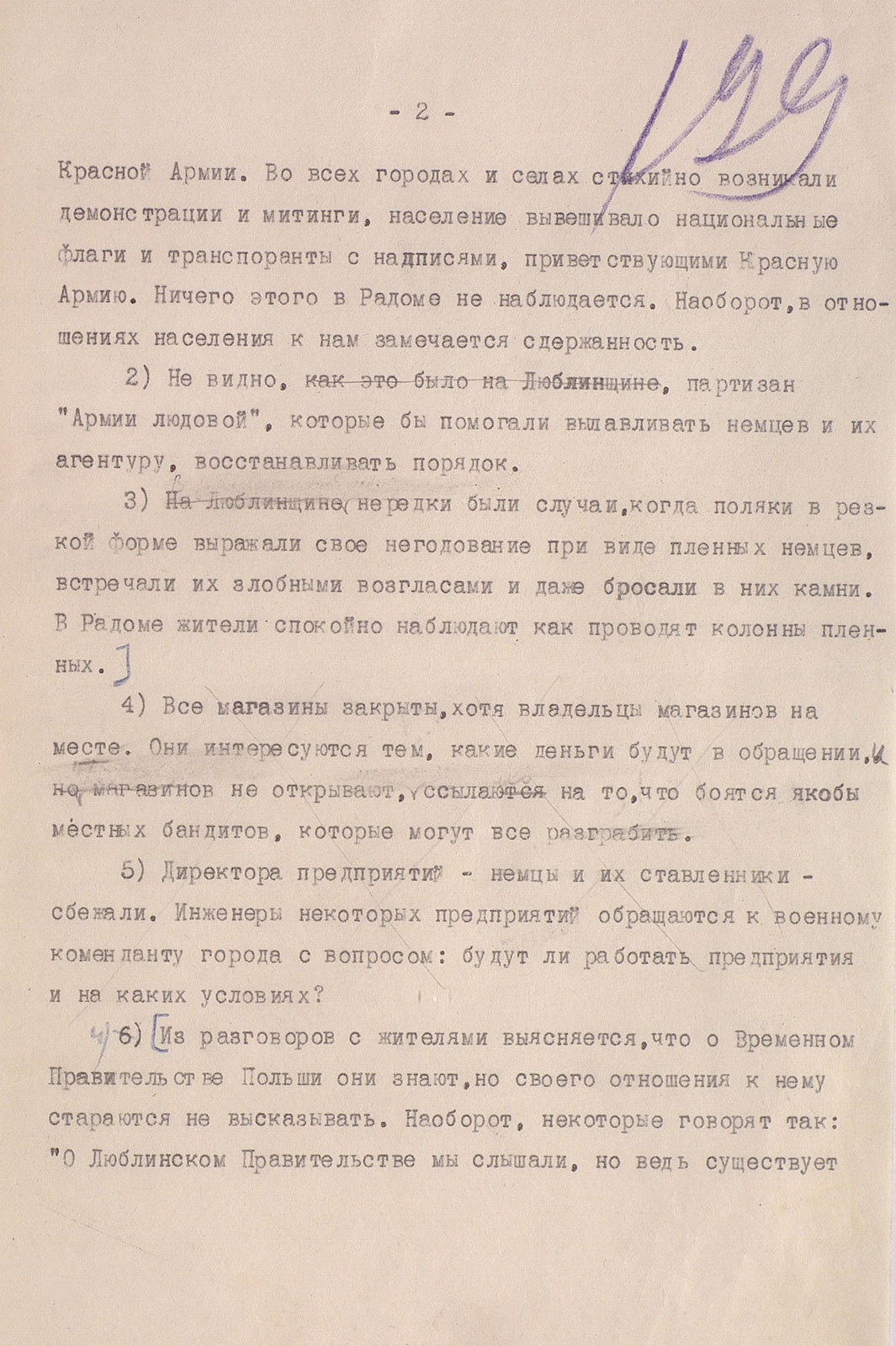
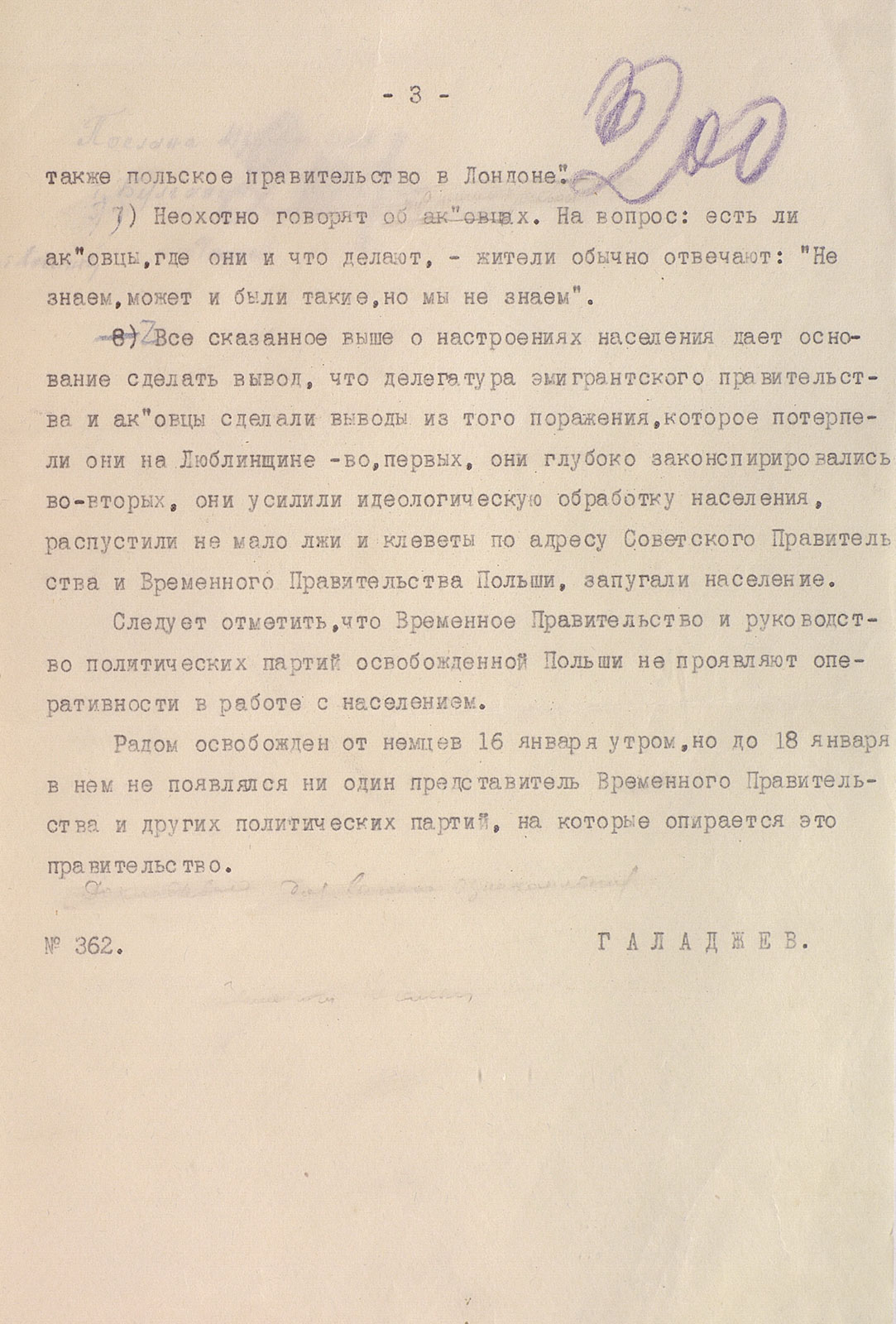
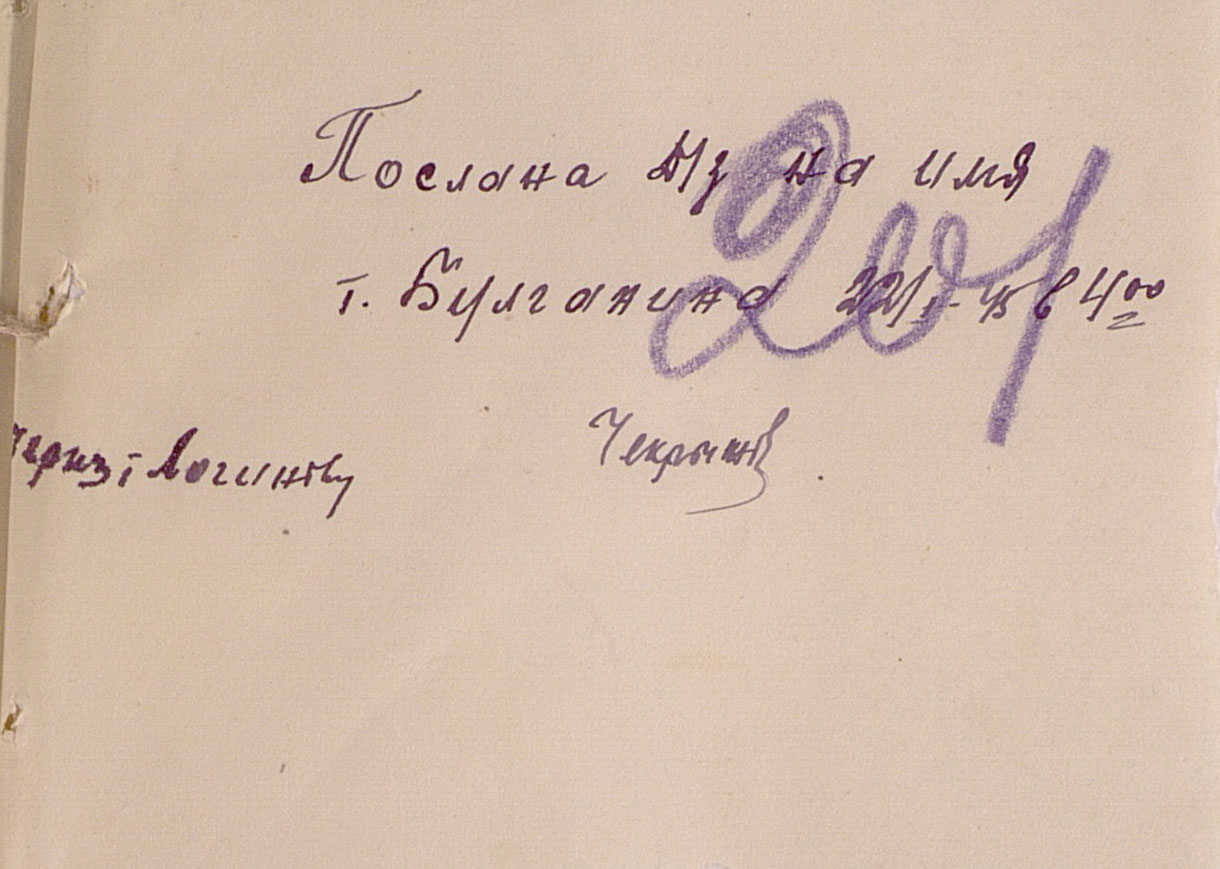
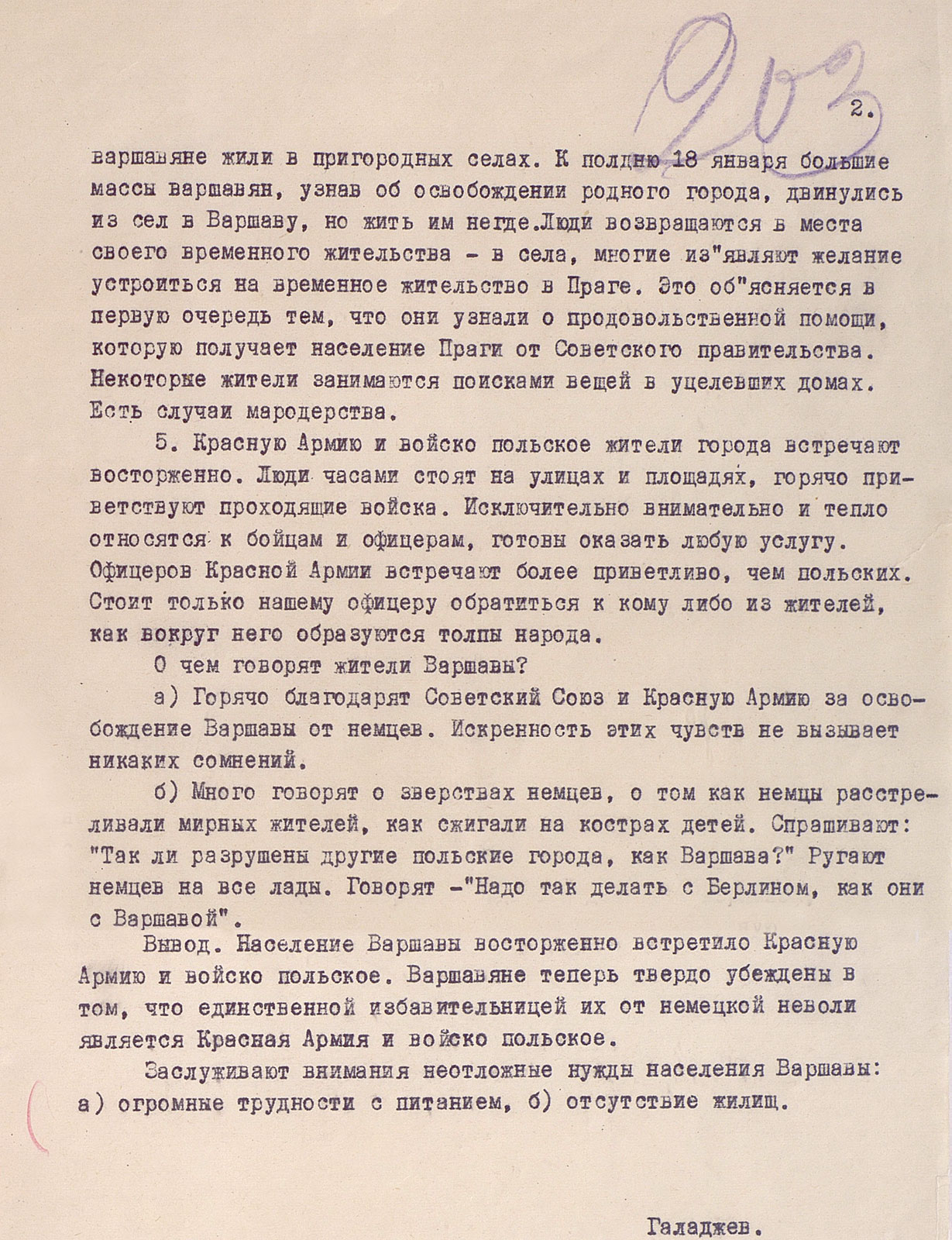
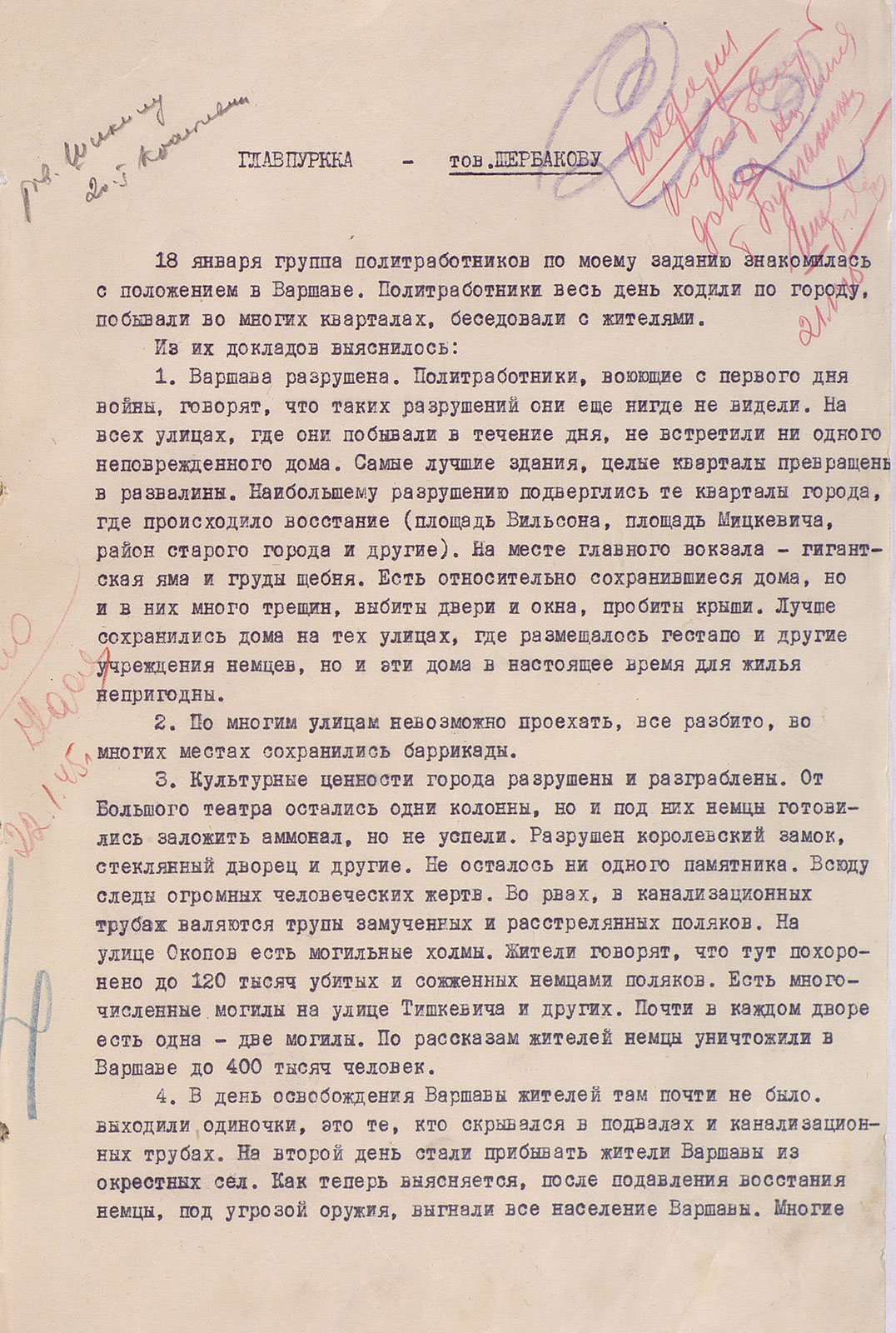
Memorandum of the political Department of 1st Byelorussian front about the life in Warsaw in the first days after the liberation, 20 January 1945
Warsaw has undergone a sophisticated destruction. No none of the damaged building. During the retreat, the Germans set fire to everything that would burn, mined relatively undamaged buildings, and even ruins. Cultural values destroyed or looted.
Throughout the city there were traces of human victims. The corpses of tortured and torn were in the ditches and sewers. The attitude of the residents of the city to the soldiers of the Red Army – joyful, friendly, but cautious, as Nazi propaganda presented the Soviet soldier as a barbarian, whose purpose is to Rob and kill. On the question of aid during the Warsaw uprising the poles expressed the following: «... maybe time has not come», «maybe the Red Army was no longer able to attack, because before that there were many battles». It was possible to hear opinion that «the home Army started the uprising too early» on the harmonization of the uprising with the Red Army command responded «don't know».
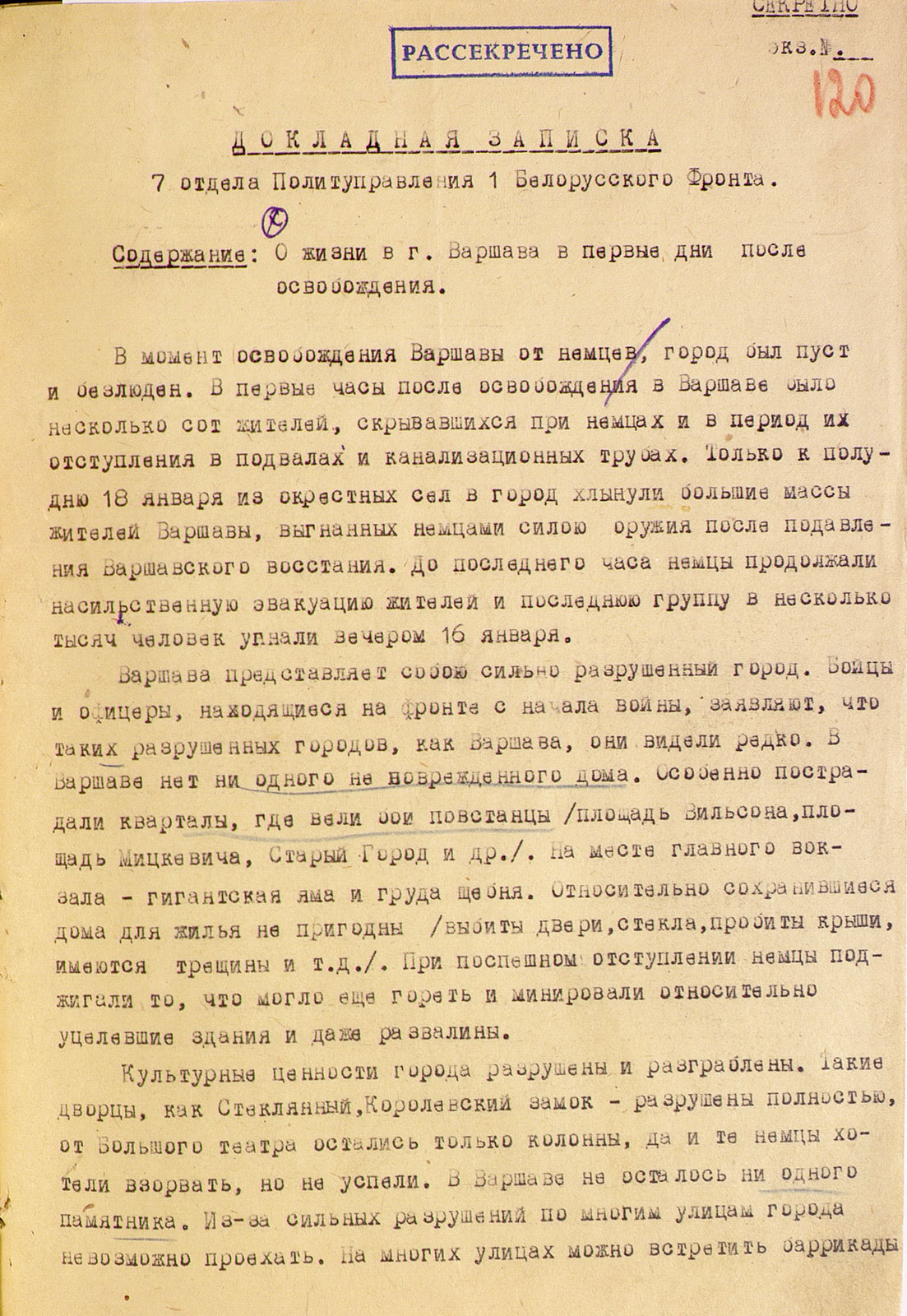
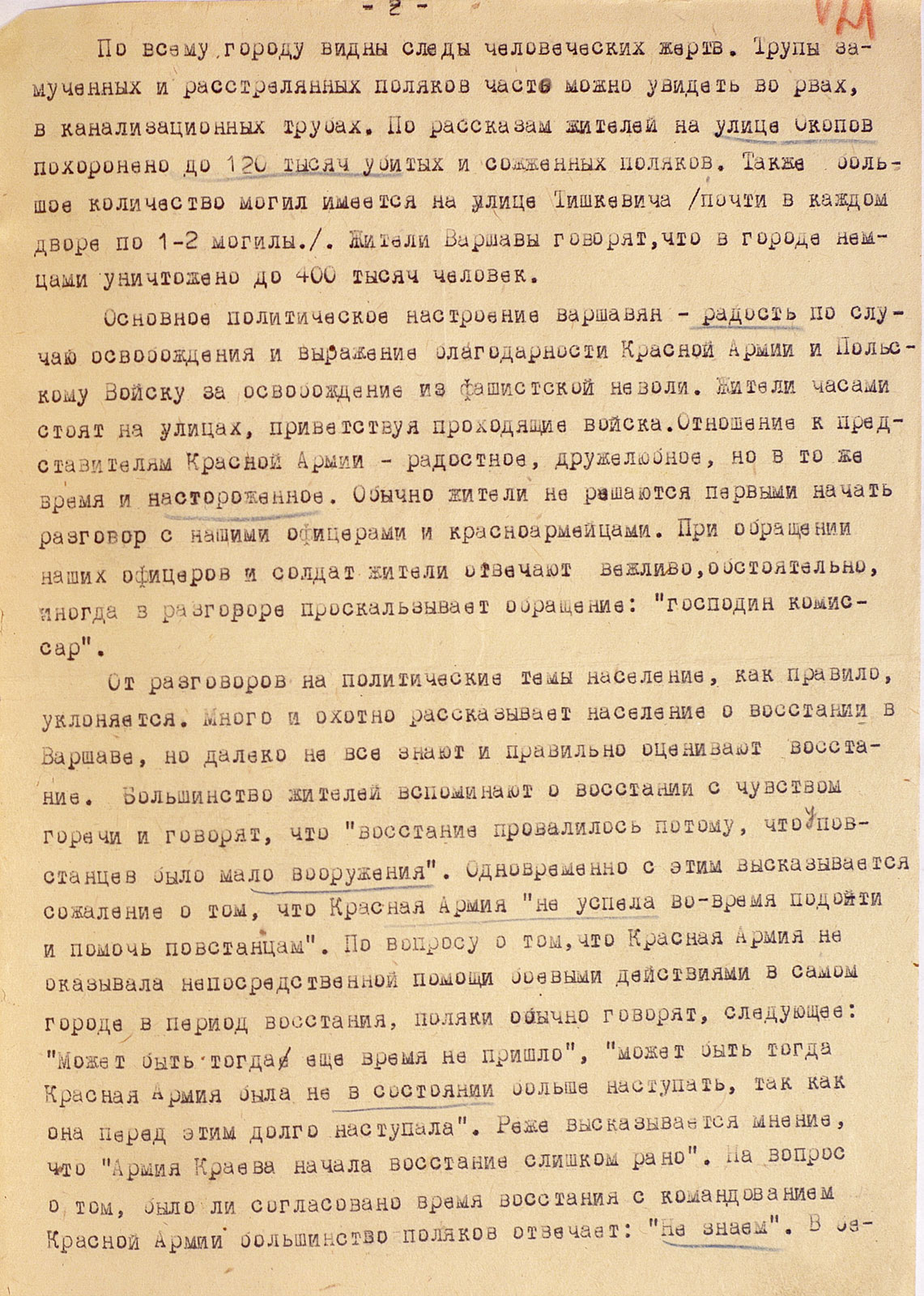
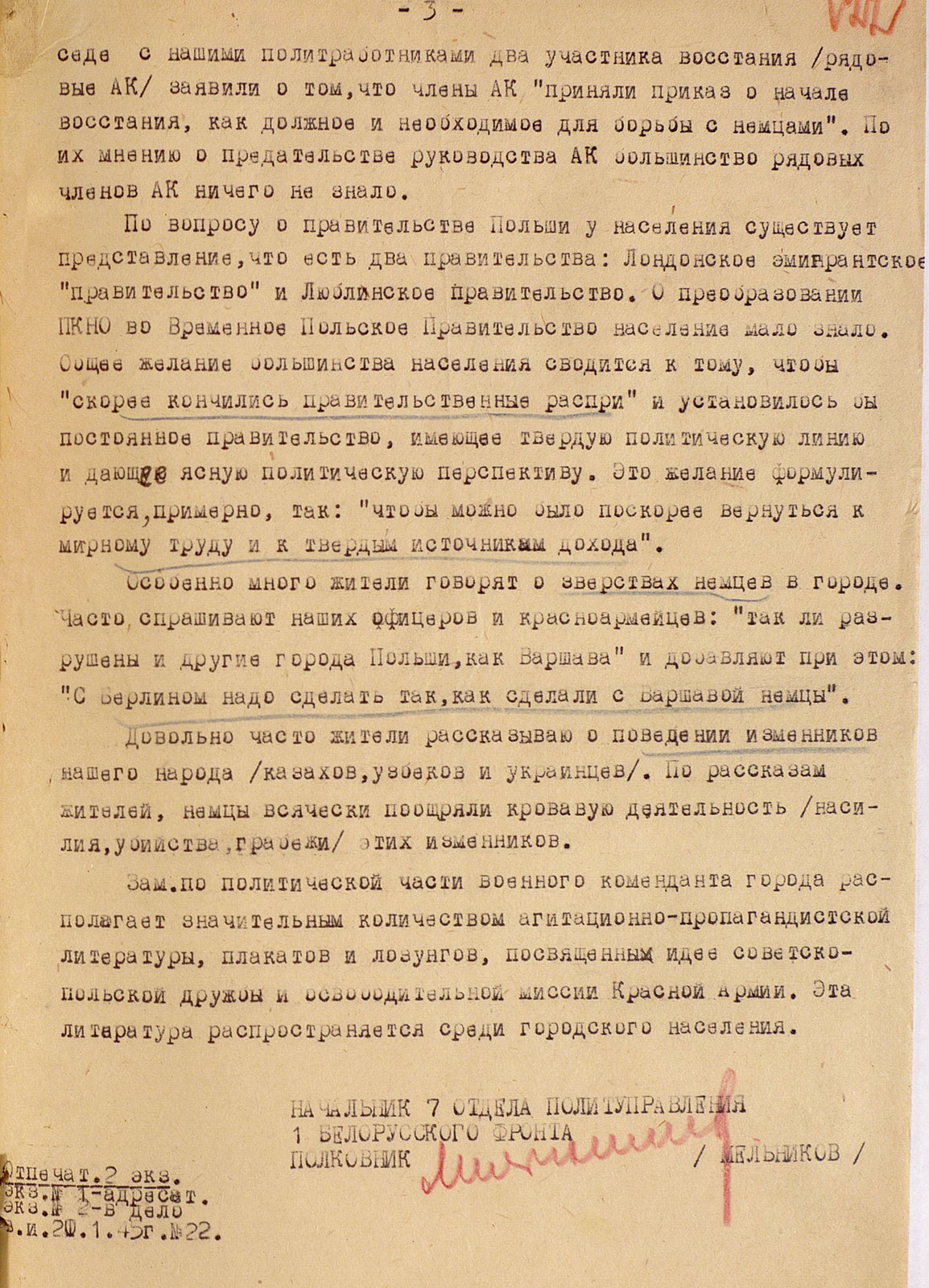
Telegram to Stalin with thanks from residents Kielce, 22 January 1945
The telegram of the head of the Provincial Department of information and propaganda of the Chief of the Red Army Marshal of the Soviet Union I. Stalin about the gratitude of the inhabitants of the Polish city Kielce for liberation. 22.01.1945.
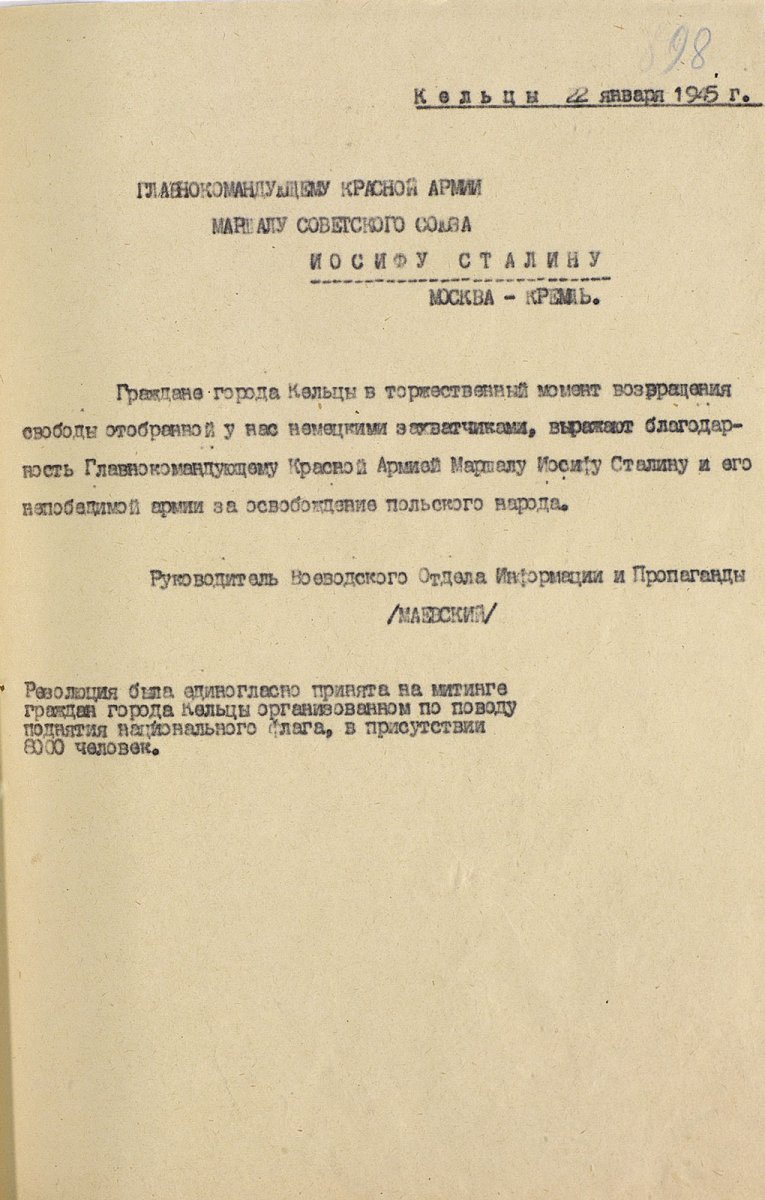
Political report of the political section of the 60th infantry division on the conversations with the liberated Polish population, 23 January 1945
Party-political report of the chief of the political division 60 rifle division «About conversations with the Polish population» from 23.01.1945. Residents of the settlement Madjarovo, Gusk, Ciechocinek, Tasevska talk about the severity of life under German occupation, oppression, persecution, deprivation.
«The Polish population of the settlements liberated from the German invaders, meets the Red Army with great joy and in conversations with hatred tells about her years spent in German captivity, about the humiliation and abuse that was repaired by the German invaders on Polish soil».
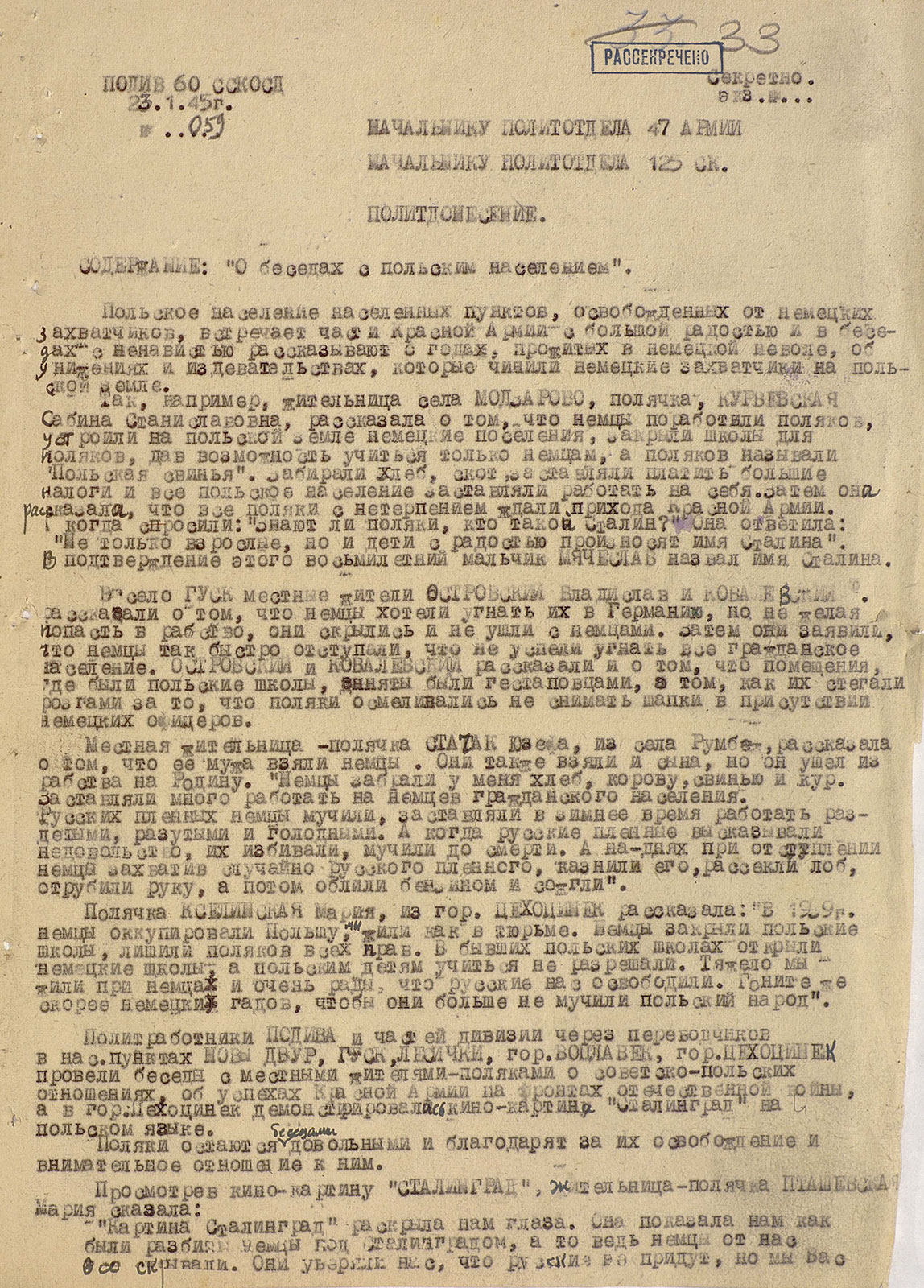
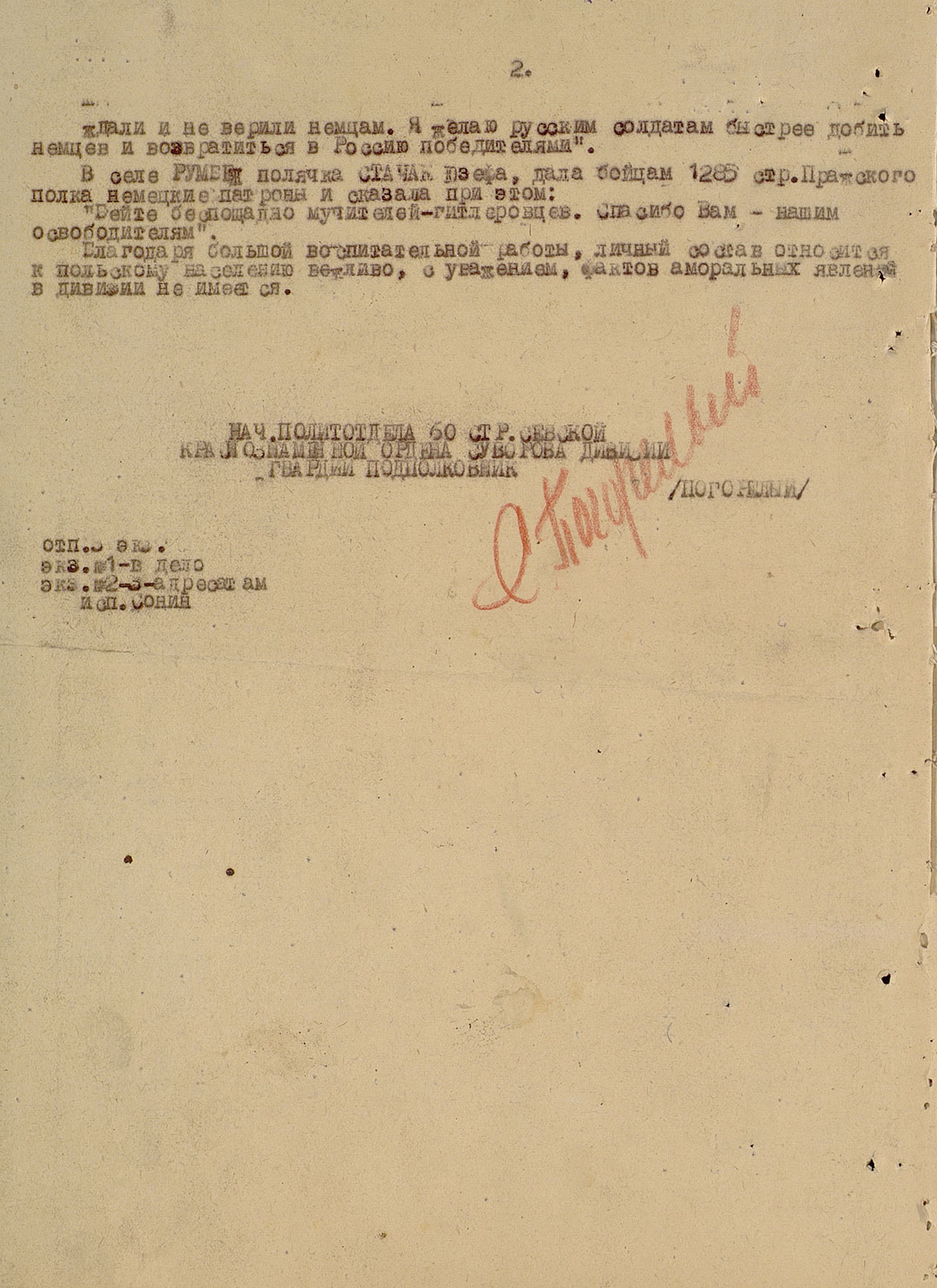
Of information summaries of the 7th the main political directorate of the Red Army (Review of the testimony of prisoners of war), January 1945
Information summary 7 Management of the Main political Directorate of the Red Army on the first days of the offensive of the Red Army in Poland in review of the testimony of prisoners of war. 23.01.1945
Against the background described in the text of the document efforts of the German command to strengthen the morale in the units and formations of Poland, the memories of prisoner of war corporal Otto Stadele, which tells of panic before the Russian: «Some even made a step in the back wall of the trench, the better to escape».
Corporal Alois Zeus said that among the soldiers of the widespread opinion that «the defense there is no need to build that defence is a respite for the Russian, and then we will again have to retreat».
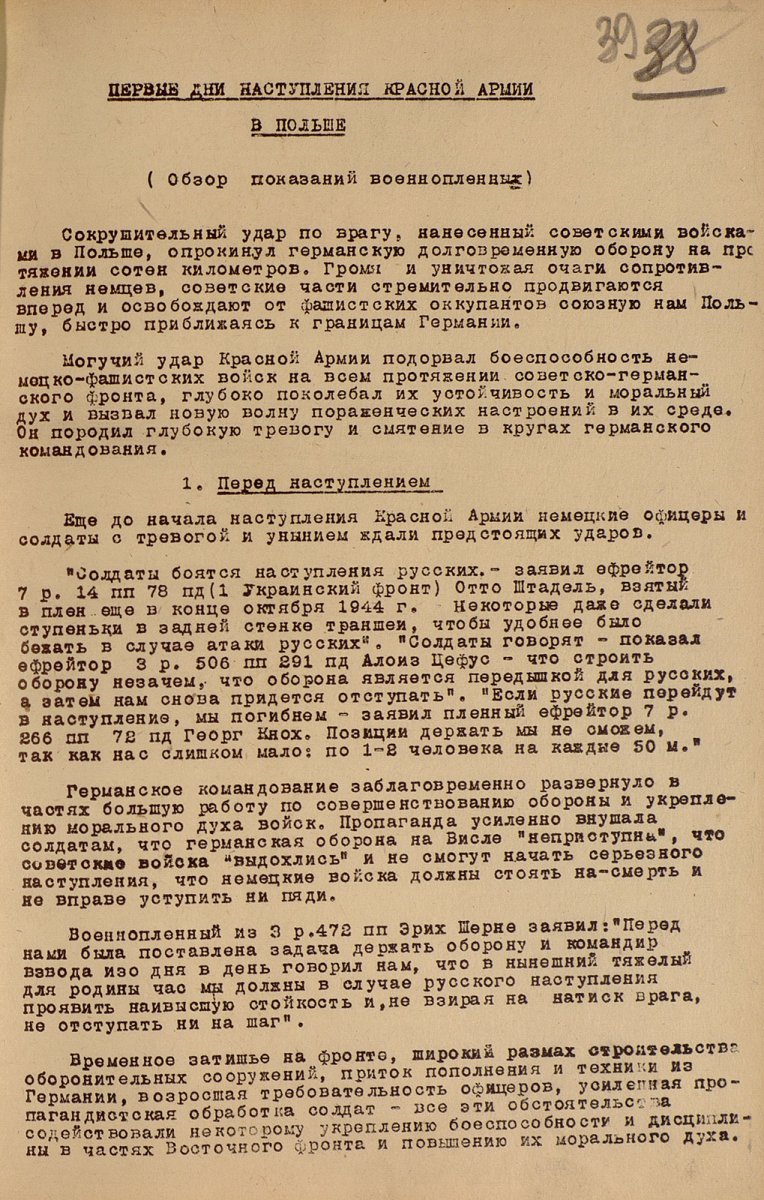
From the magazine combat reports of the headquarters 60 army of the 1st Ukrainian Front, 25-27 January 1945
From the magazine combat reports of the headquarters of the 60 army, 1 Ukrainian Front on the rapid development of the offensive and the liberation of settlements in Poland.
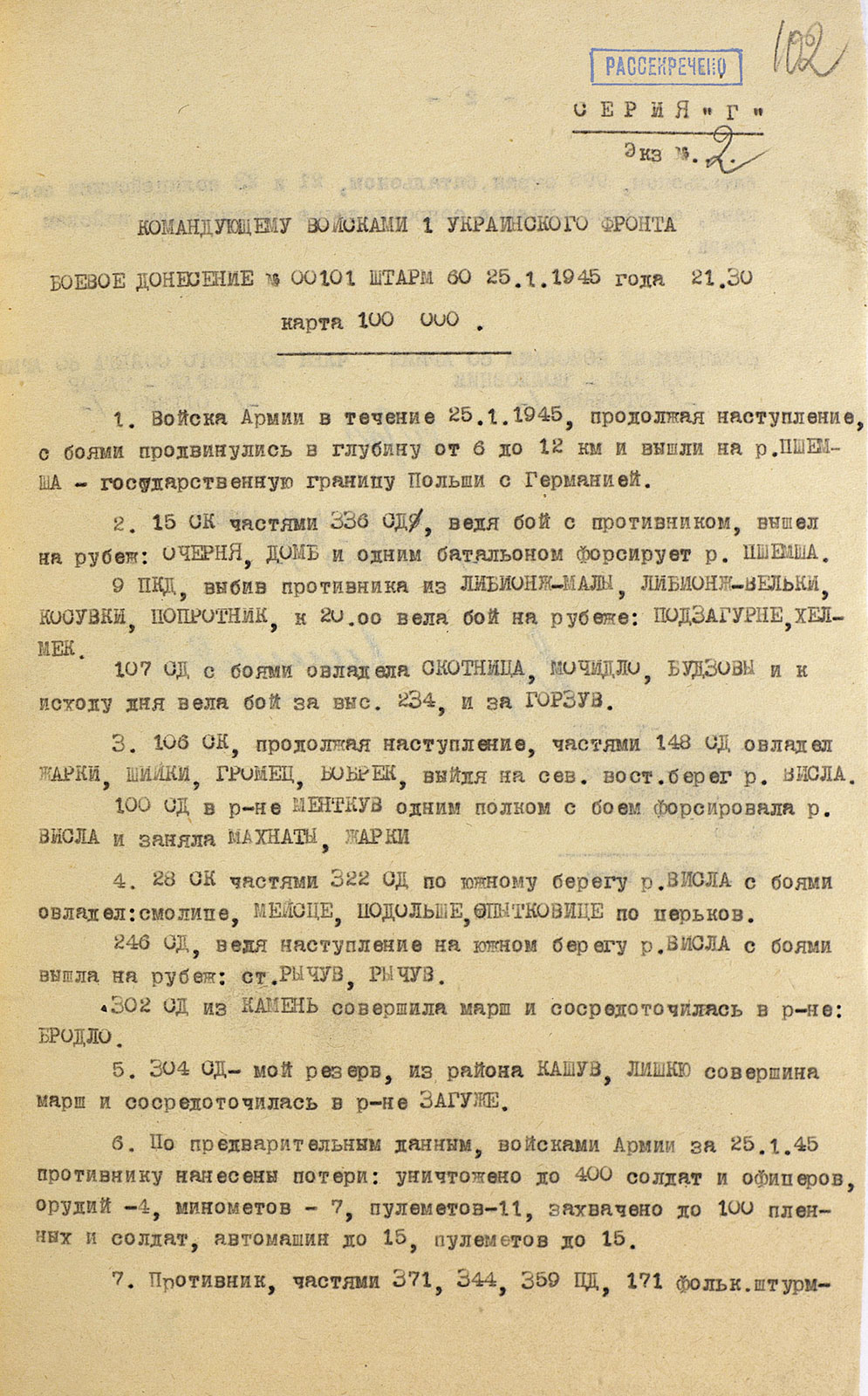
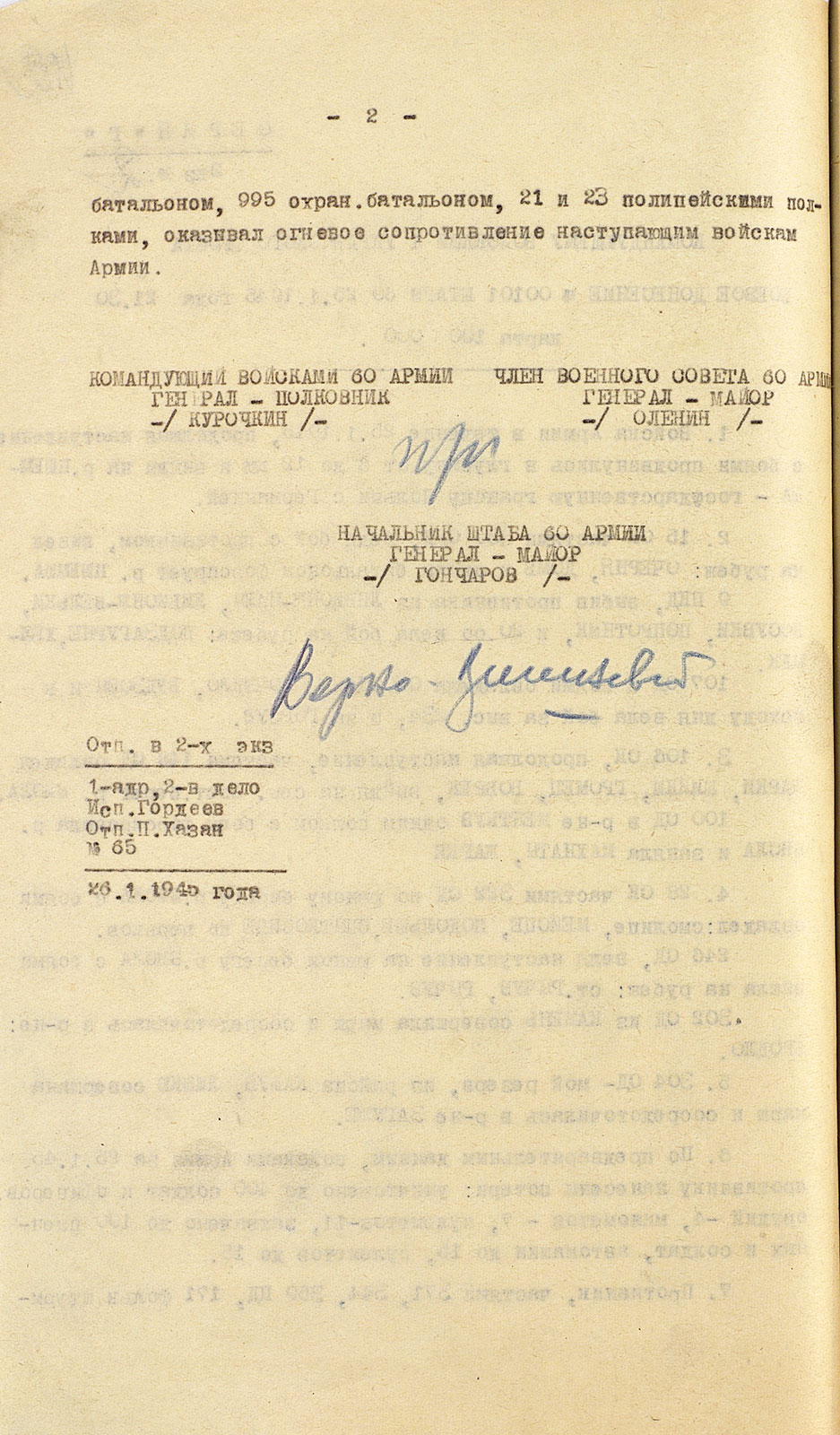
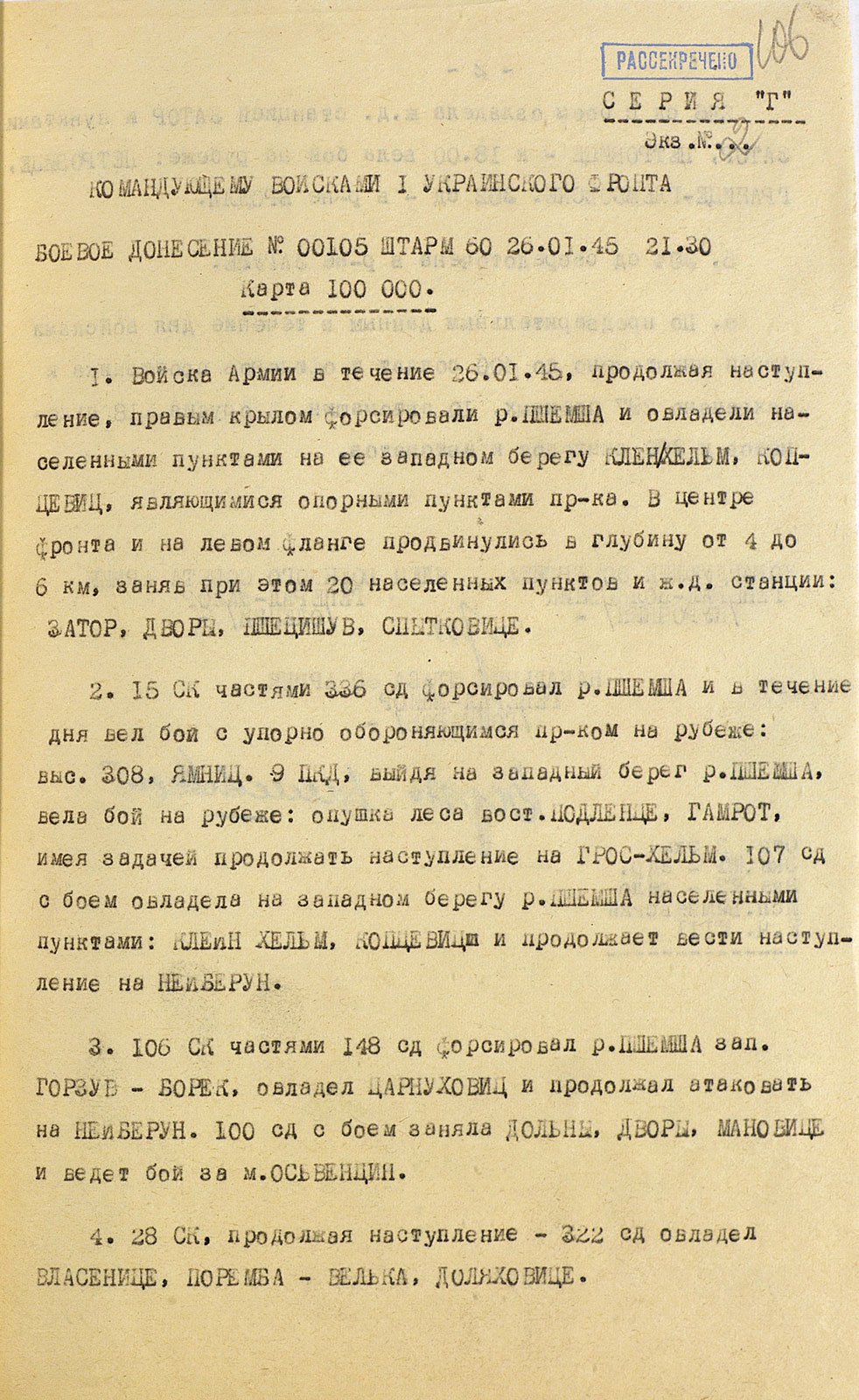
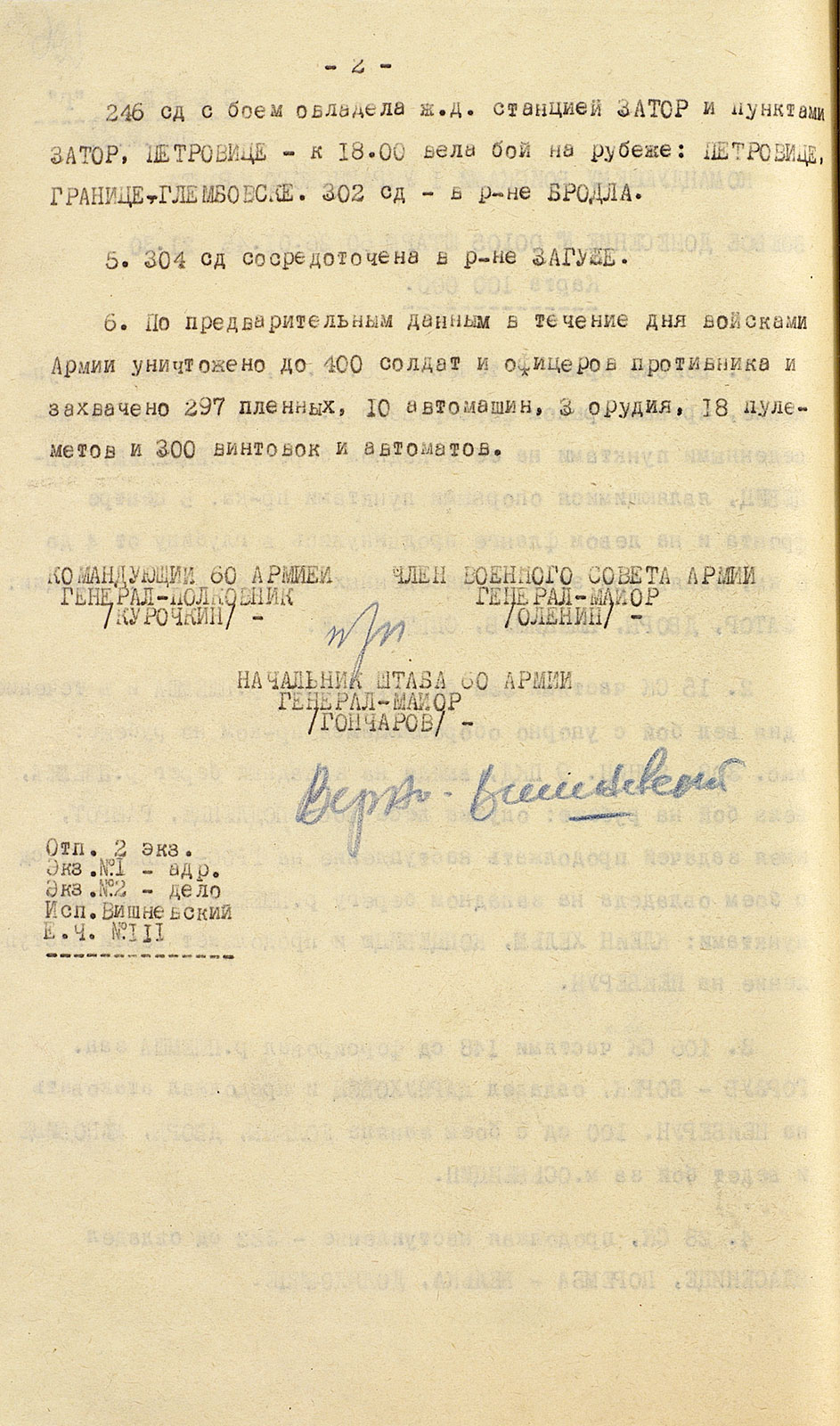
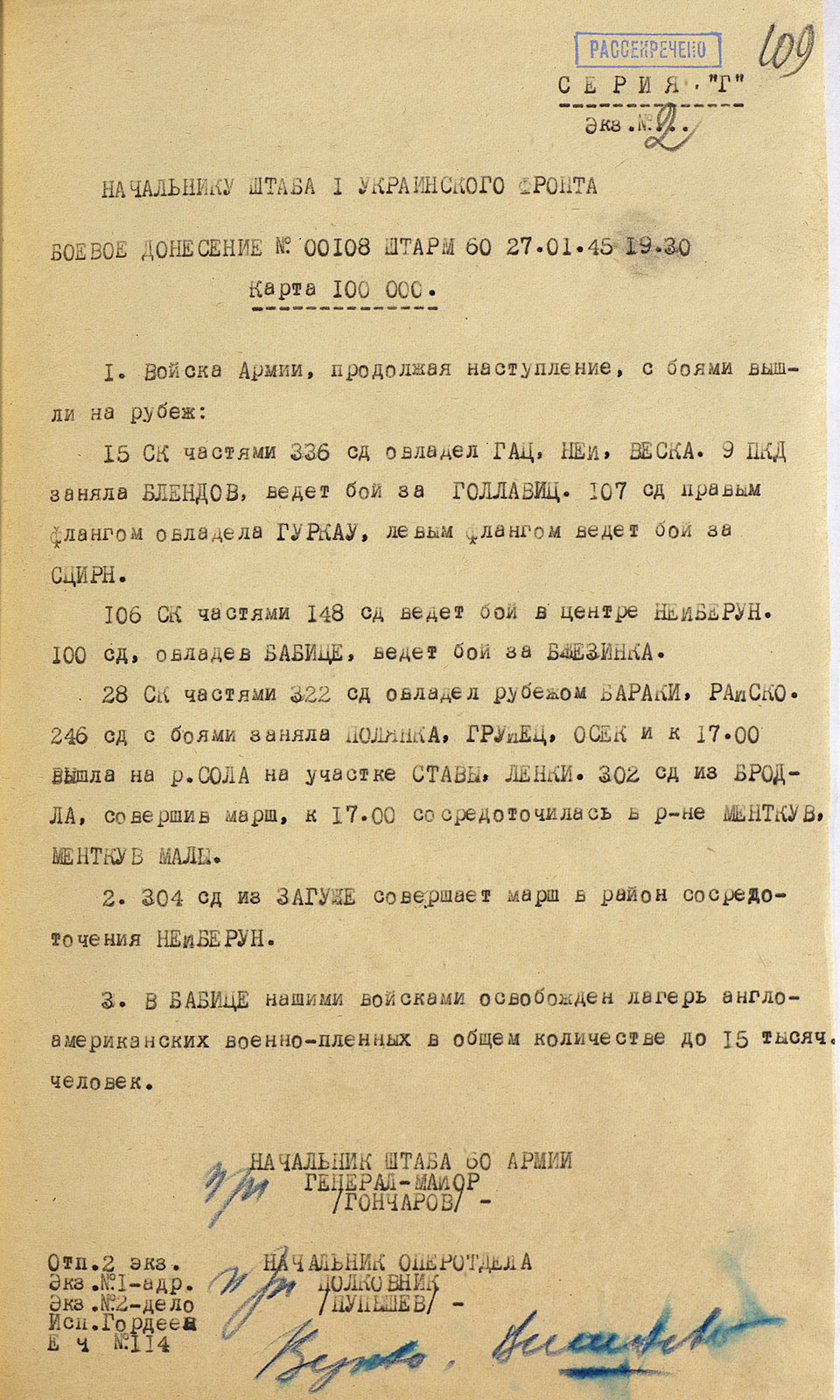
Report of commander of 1st Belorussian Front, Georgy Zhukov on the situation in some of the liberated towns in Western Poland, 29 January 1945
Report to the commander of the 1st Belorussian Front, Marshal of the Soviet Union G. K. Zhukov.
«Rapidly pursued by our troops the Germans were not able during the retreat to steal Nemetchiny the Polish population, which everywhere with joy and enthusiasm greeted the Red Army. Prepare to mawali German colonists were caught by surprise and the vast majority, unable to leave, remained in place».
«The fascist barbarians destroyed the capital of Poland – Warsaw. With the rigidity of sophisticated sadists, the Nazis destroyed quarter after quarter. Provoked by the London Polish emigre government and the leadership of the home Army in August – September 1944 uprising in Warsaw, completed the destruction of the city. Leaving in the suppression aircraft, tanks, artillery, the Germans left the Polish capital in ruins. The largest industrial enterprises were wiped off the face of the earth. Houses blown up or burned. The urban economy is destroyed. Tens of thousands of people killed, the others were expelled. The city is dead».
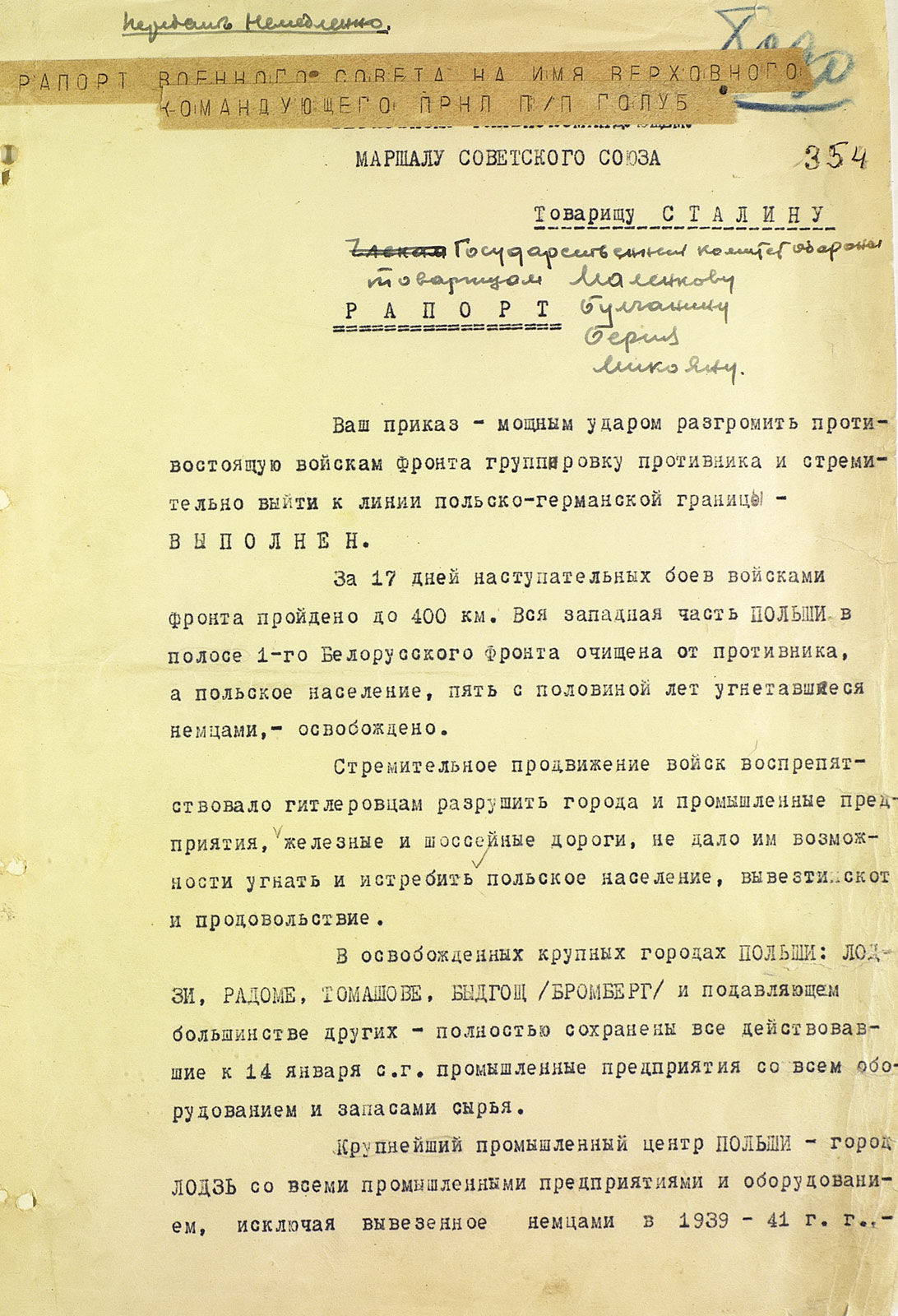
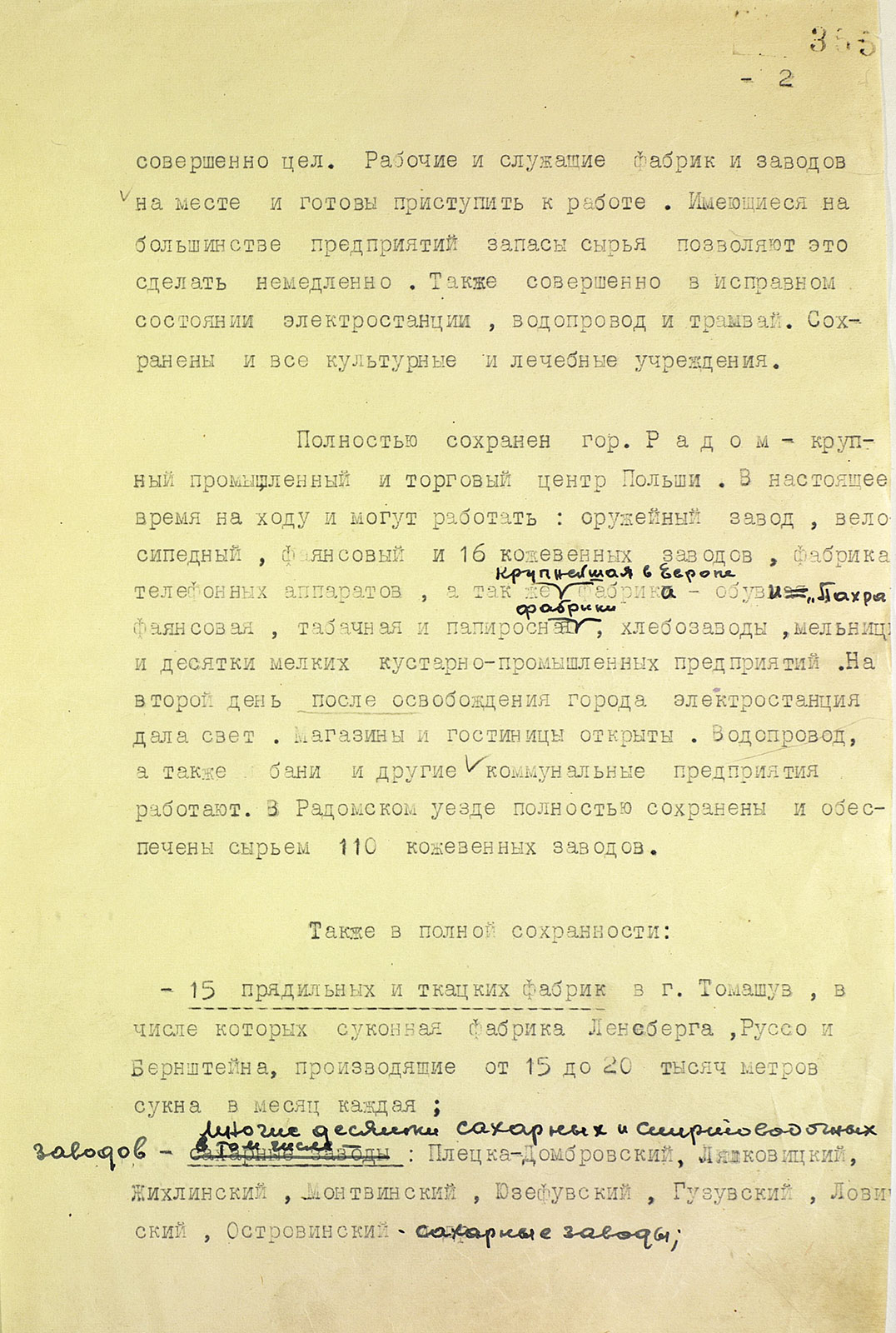
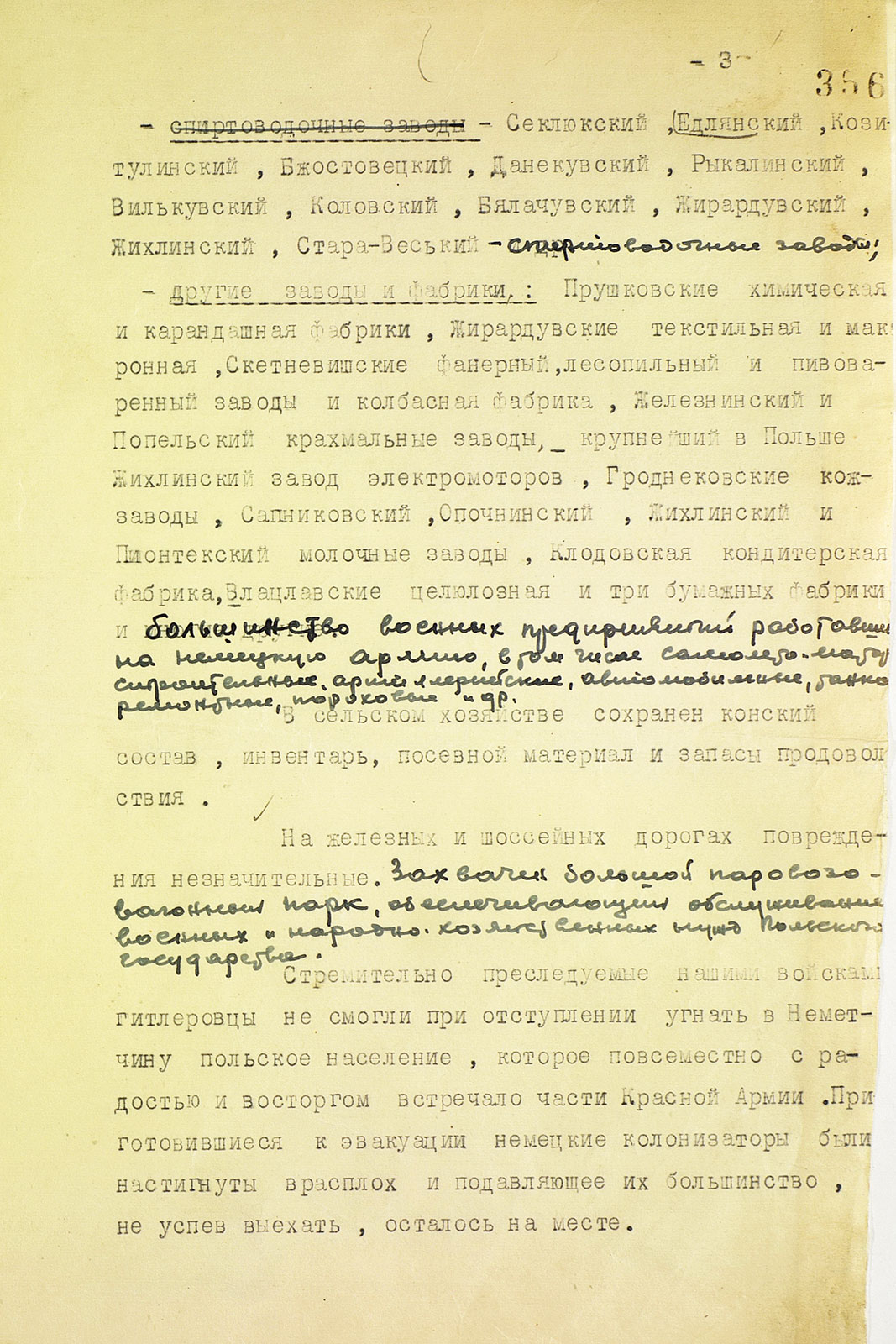
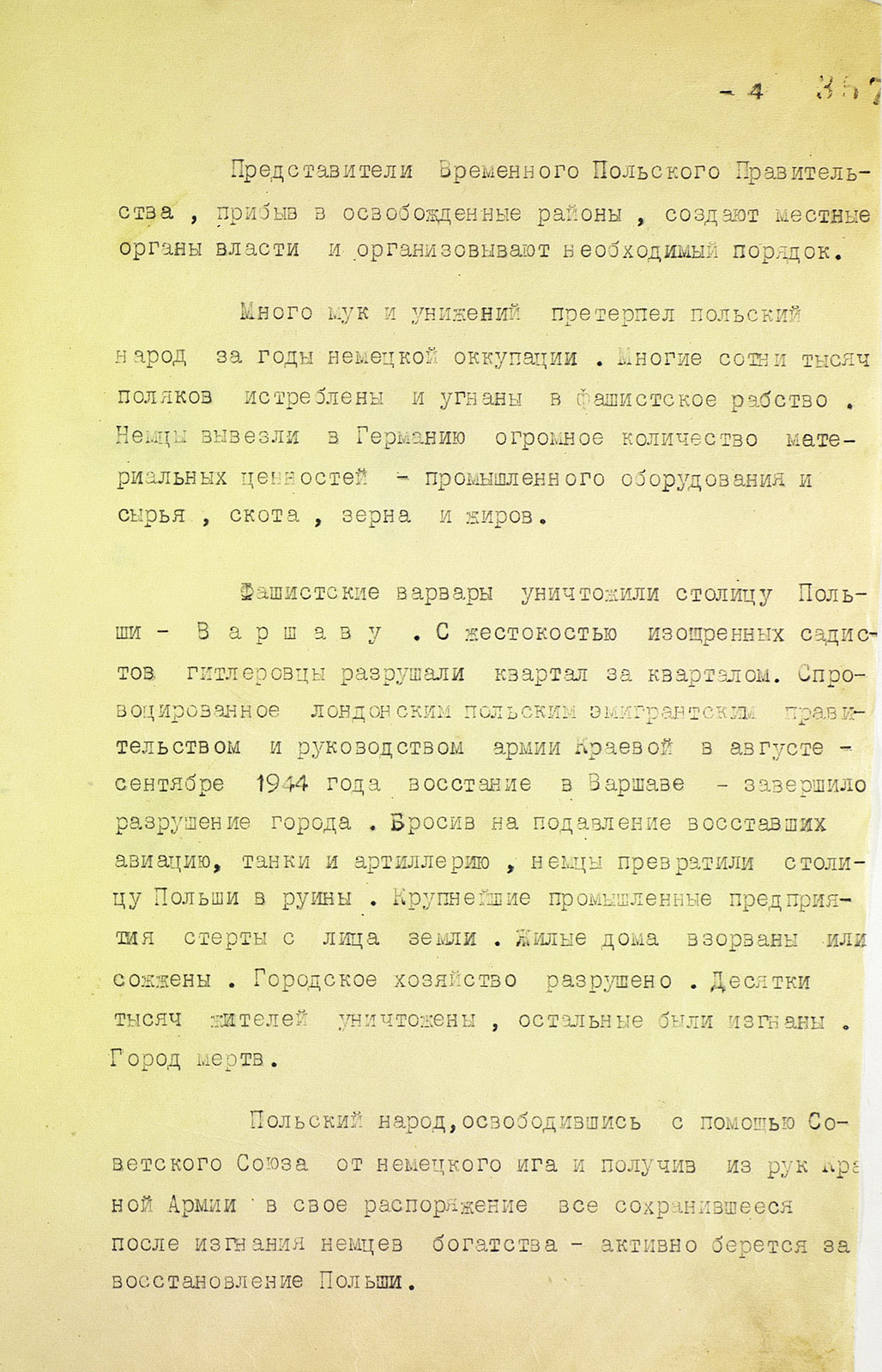
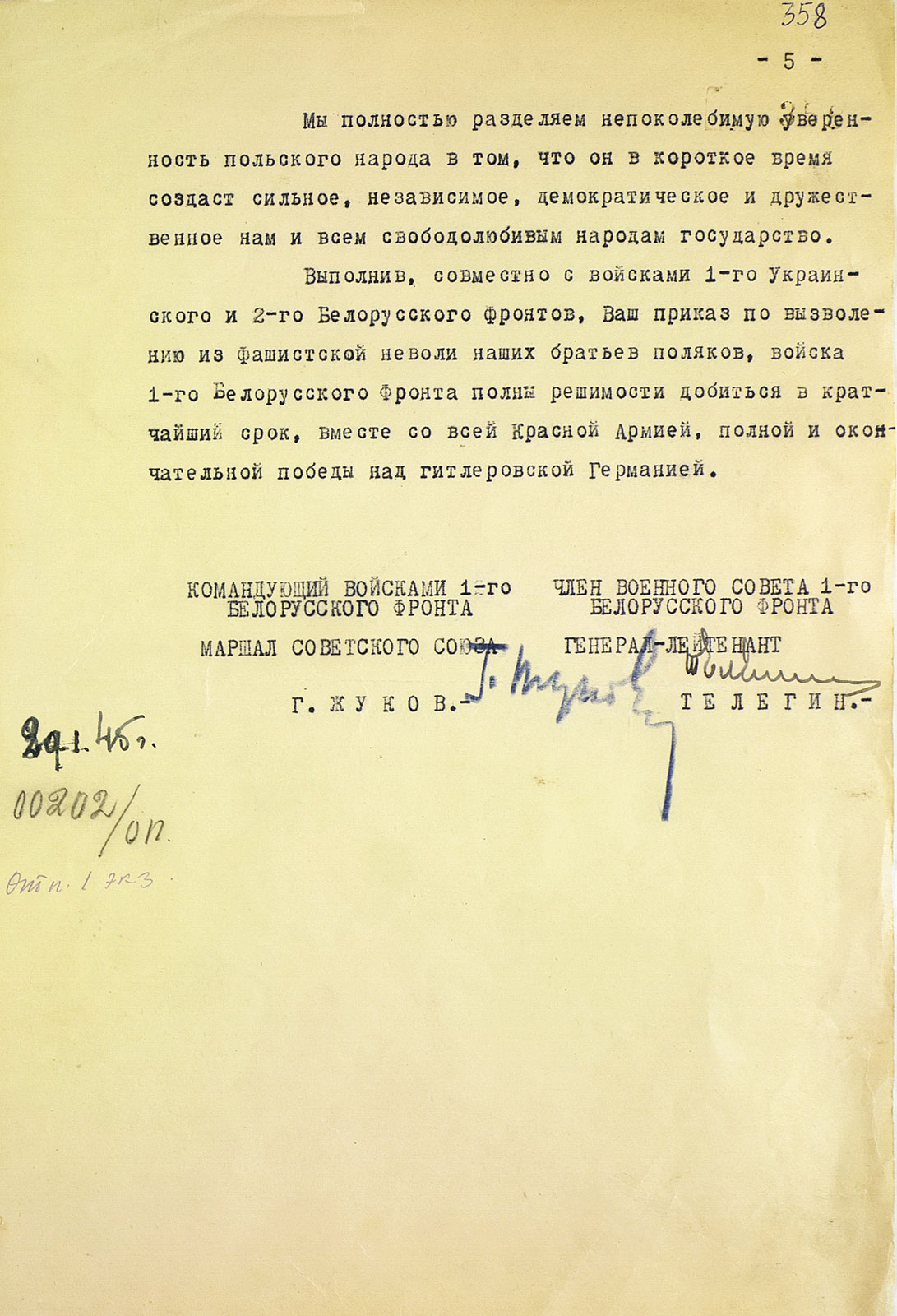
The help of Headquarters of the 1st Ukrainian front on the losses in January 1945, 31 January 1945
Certificate of loss of personnel in the units of the 1st Ukrainian front for the period 1 to 31 January 1945. 1st Ukrainian front lost in Poland for a specified period killed: 18 531 thousand people (equivalent to about 5%) and wounded 64 thousand 318 people (or more than 17%) of the total population of the entire front. For example, 1373 infantry regiment only five days of fighting (from the 1st to the 5th of January 1945) lost 472.
Certificate of payroll divisions of the 1st Ukrainian front as of January 31, 1945, the number of personnel the front. So part of the 1st Ukrainian front consisted of eight armies total strength as of 31 January 1945, 372 thousand 750 people.
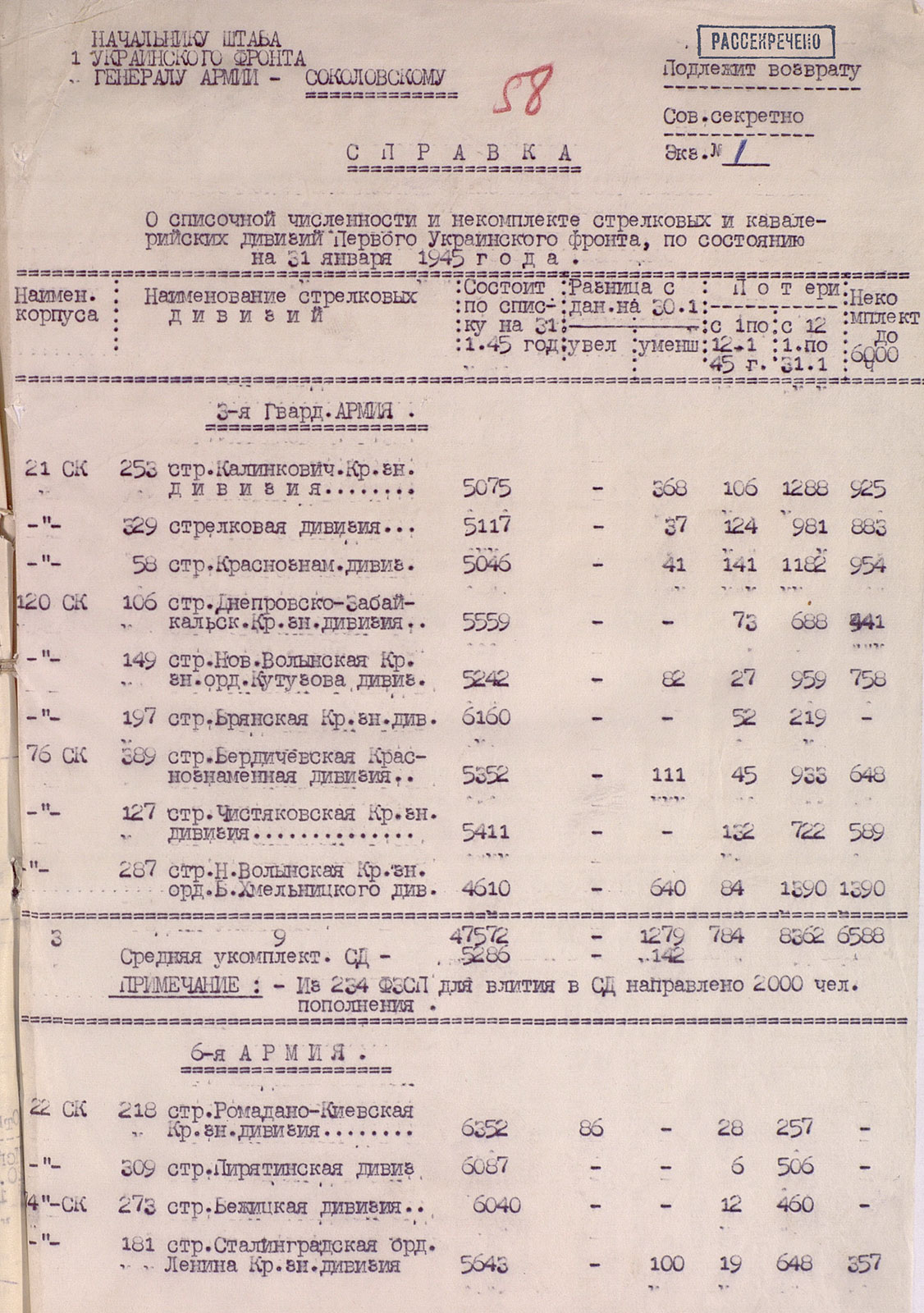
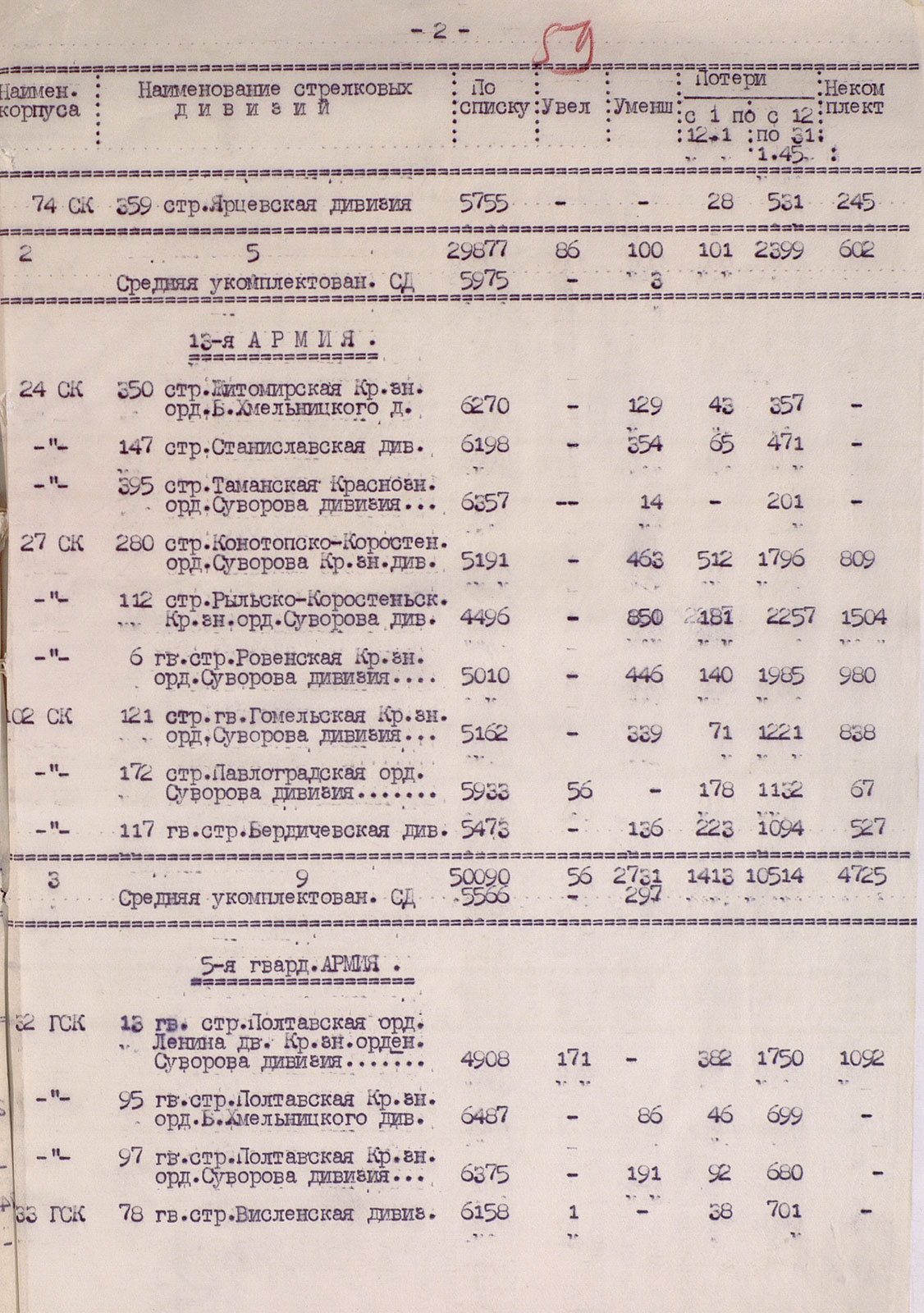
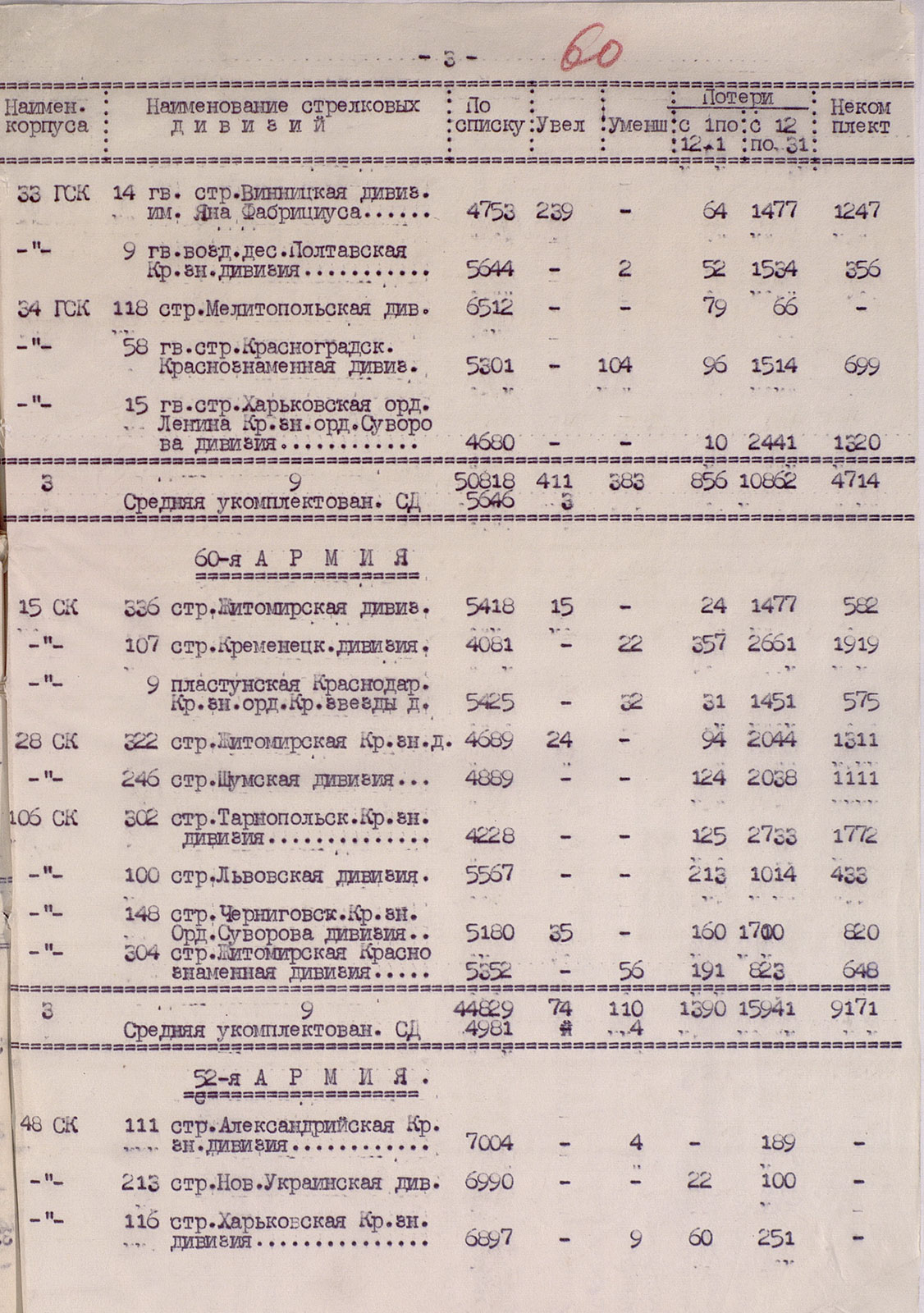
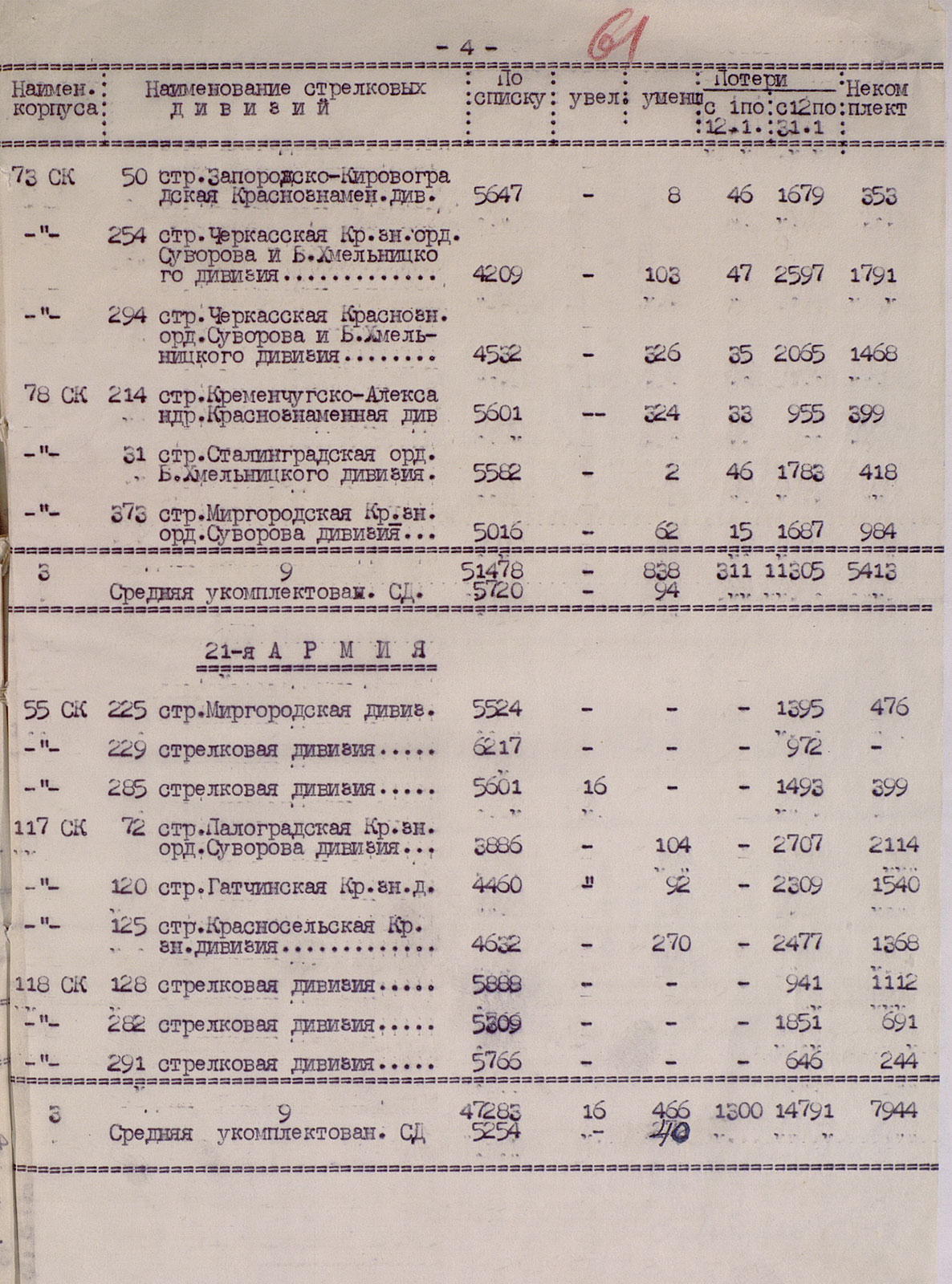
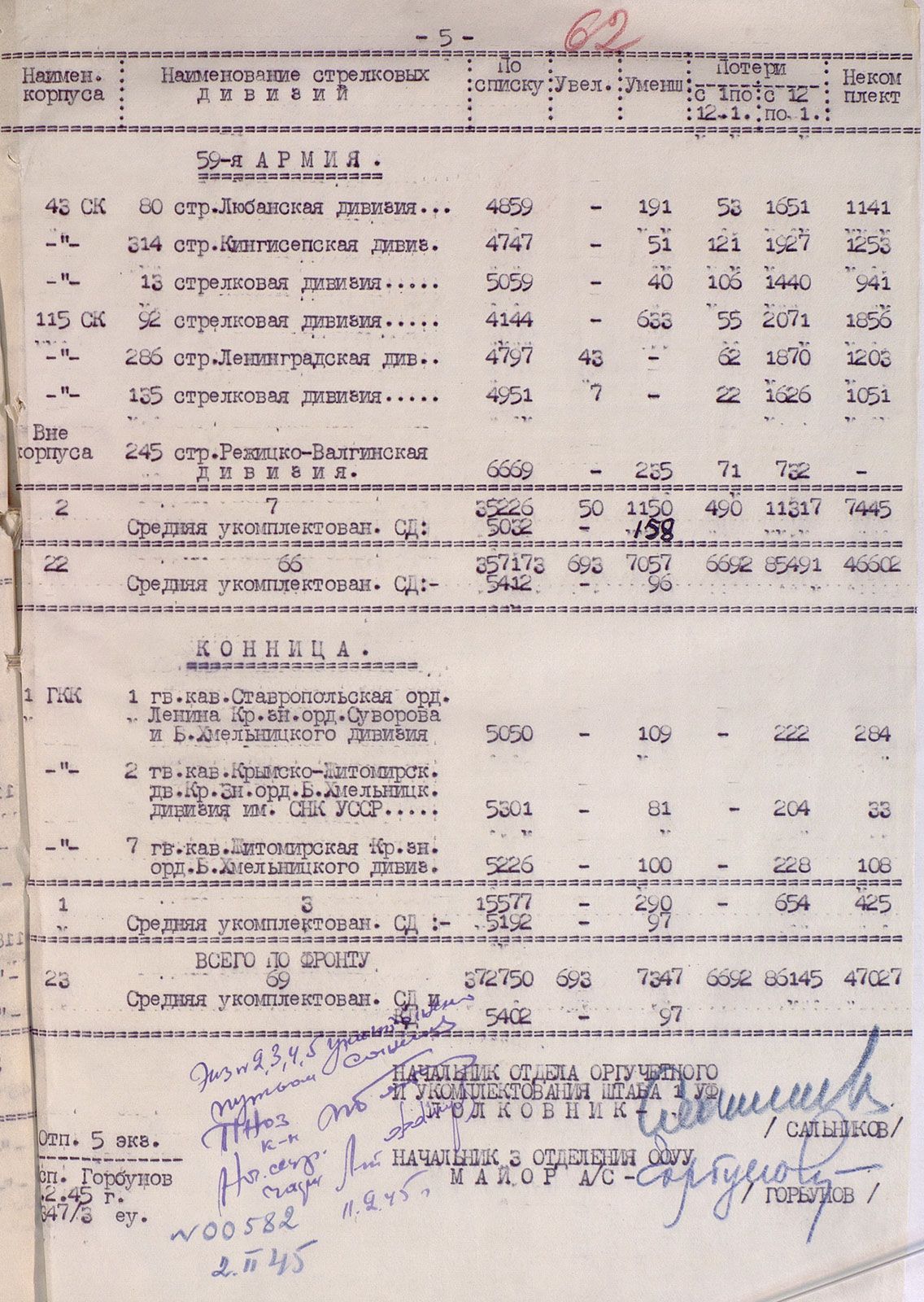
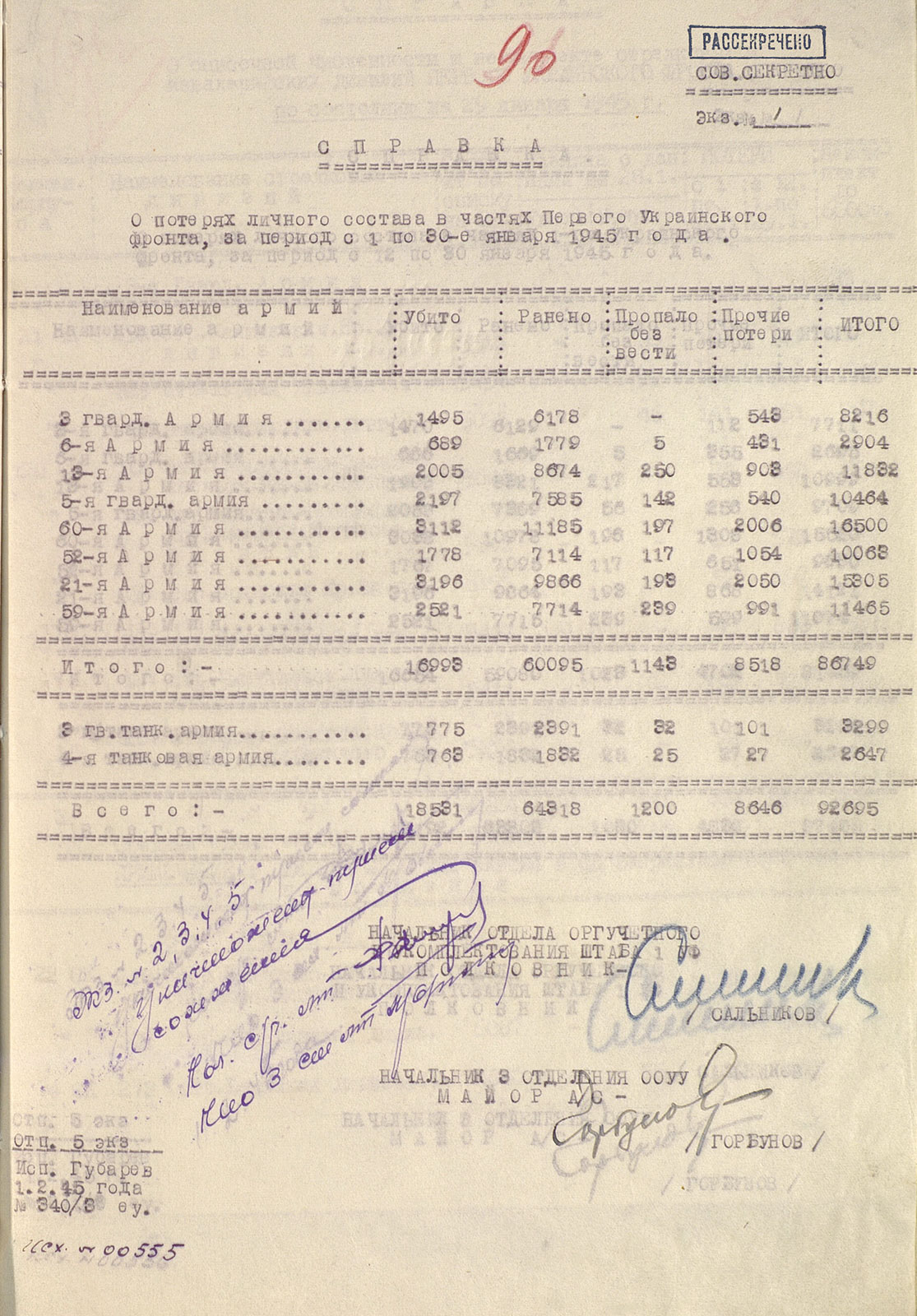
The help of the political Directorate of the 1st Ukrainian front on the situation released on January 12, 1945, parts of Poland. February 1945
Of the information political Department of the 1st Ukrainian front on the situation in the regions of Poland, freed the troops of the front during the onset. In documents it is told about how warmly welcomed the Red Army in the cities Tarnow, Selow, Brzezno, Miechów, Busko, Suchedniów.
«The vast majority of the Polish population generally welcomed the Red Army as a liberator. Representatives of all segments of the population appealed to the Red Army soldiers with words of gratitude for the liberation of the Polish people from German occupation, had invited officers and men to his apartment».
Interest is the description of the funeral of two victims of Soviet pilots that took place on February 6, 1945, and «turned into a powerful demonstration of love and gratitude to the Red Army».
«The coffin, the wreaths, the monument was made by the Polish population. Polish girls and children carried huge number of wreaths and flowers. Wreaths were inscriptions – «the Heroic Soviet pilots from a grateful Polish girls», «From the grateful children of their liberators». At the mass grave was a memorial service held».
